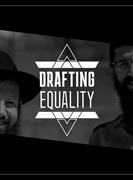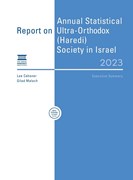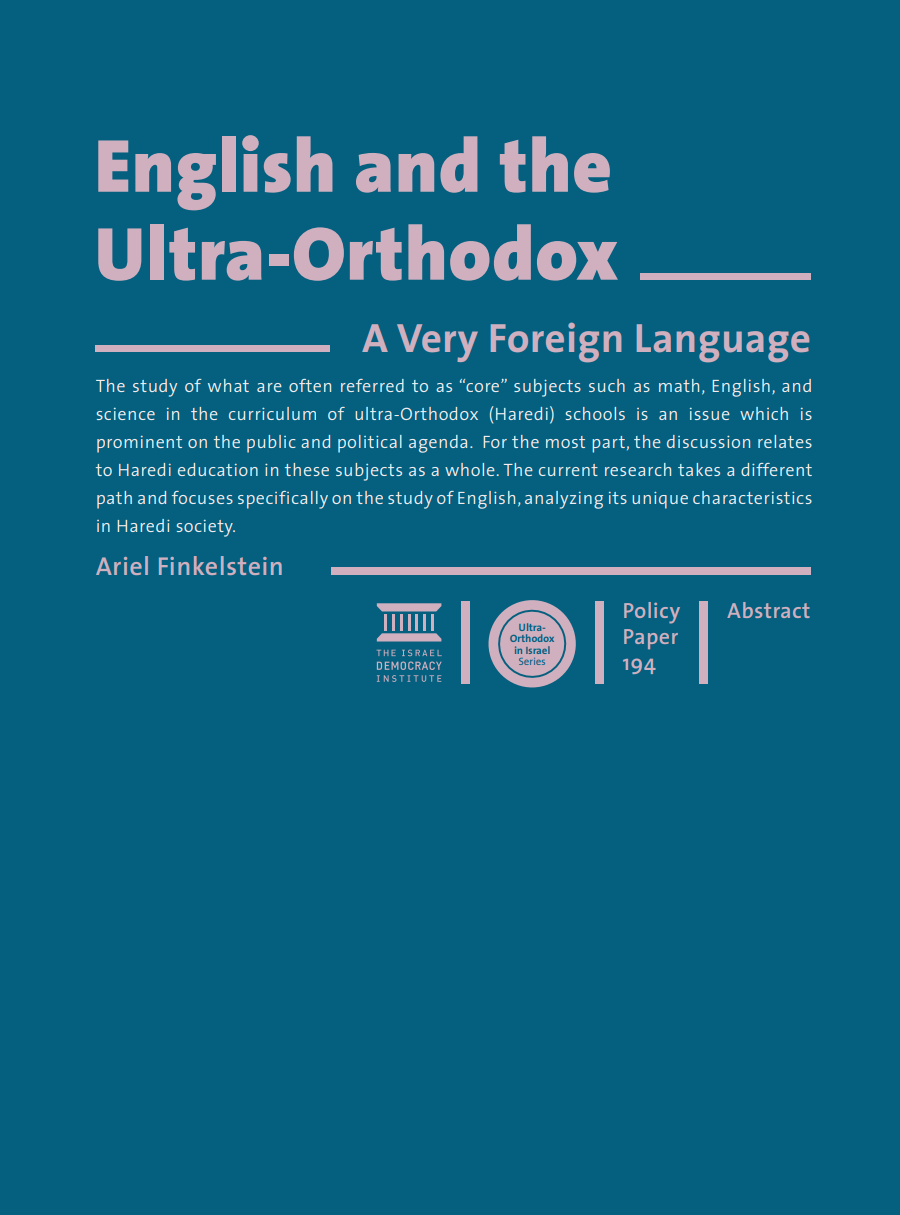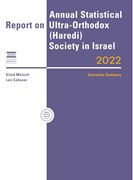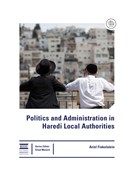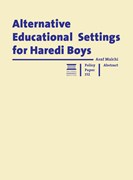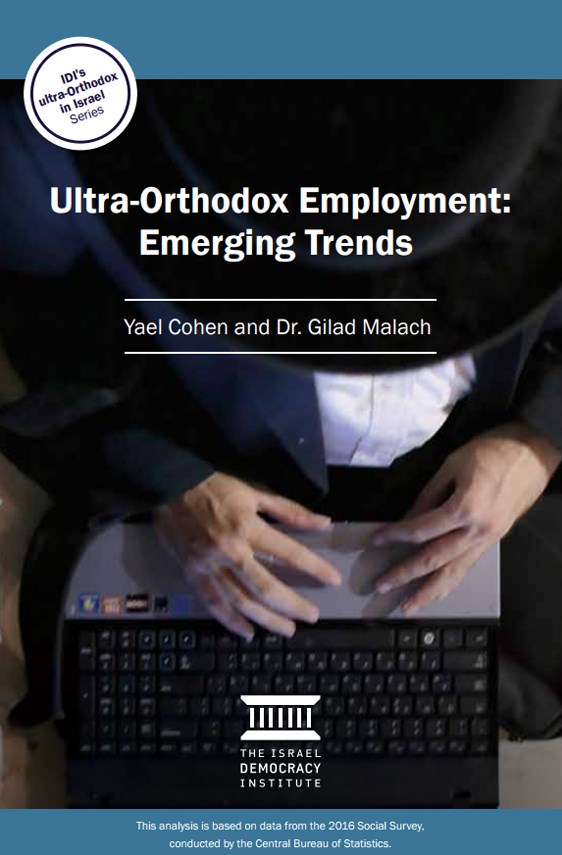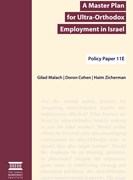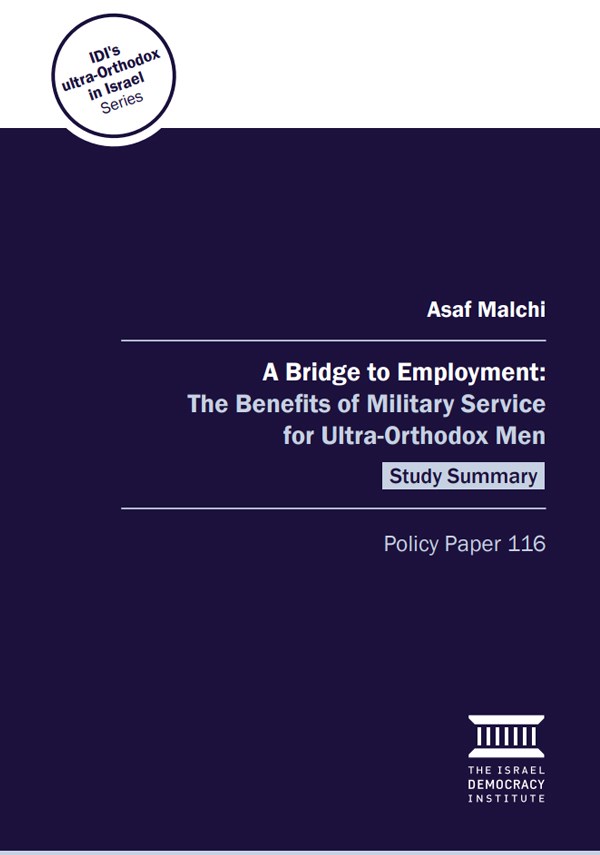

Publications Regarding Ultra-Orthodox
Articles
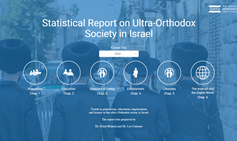
Population
Written By: Dr. Gilad Malach, Dr. Lee Cahaner
First chapter of six of the 'Statistical Report on Ultra-Orthodox Society in Israel'

Education
Written By: Dr. Gilad Malach, Dr. Lee Cahaner
Second chapter of six of the 'Statistical Report on Ultra-Orthodox Society in Israel'

Standard of Living
Written By: Dr. Gilad Malach, Dr. Lee Cahaner
Third chapter of six of the 'Statistical Report on Ultra-Orthodox Society in Israel'

Employment
Written By: Dr. Gilad Malach, Dr. Lee Cahaner, Yael Bachar
Fourth chapter of six of the 'Statistical Report on Ultra-Orthodox Society in Israel'

Lifestyles
Written By: Dr. Gilad Malach, Dr. Lee Cahaner
Fifth chapter of six of the 'Statistical Report on Ultra-Orthodox Society in Israel'

Financial Literacy
Written By: Dr. Gilad Malach, Dr. Lee Cahaner
Sixth chapter of six of the 'Statistical Report on Ultra-Orthodox Society in Israel'

Should the Court Manage the Draft of the Ultra-Orthodox?
Written By: Prof. Amichai Cohen
The government’s refusal to formulate an enforcement plan for drafting ultra-Orthodox men, in defiance of a ruling by the High Court of Justice, places Israel before an unprecedented crisis. The Court faces only bad options—but it may have no choice other than to step into the shoes of the executive branch and move toward active enforcement.

Eric Goldstein CEO of UJA-Federation of NY with IDI's Yohanan Plesner and Shlomit Ravitsky Tur-Paz
Written By: Yohanan Plesner , Adv. Shlomit Ravitsky Tur-Paz
Eric Goldstein, CEO of UJA-Federation of New York, joined Yohanan Plesner, President of the Israel Democracy Institute, and Shlomit Ravitsky Tur-Paz, Director of IDI’s Joan and Irwin Jacobs Center for Shared Society, for an online conversation on “The Fifth Tribe,” the challenges facing American Jewry, and the relationship between Israel and the Jewish diaspora during the war and beyond.

Hard Lessons, Tough Choices: Israel’s Path Forward in a New Year
Written By: Yohanan Plesner

Gilad Malach on Kan English - 10th Annual Statistical Report on Ultra-Orthodox Society
Written By: Dr. Gilad Malach
Dr. Gilad Malach, Research Fellow in IDI’s Ultra-Orthodox in Israel Program, spoke with KAN English Radio about the findings from IDI’s 10th Annual Statistical Report on Ultra-Orthodox Society.

Dr. Gilad Malach on TOI's "What Matters Now"
Written By: Dr. Gilad Malach, Amanda Borschel-Dan
IDI Research Fellow Dr. Gilad Malach joins host Amanda Borschel-Dan on the Times of Israel weekly podcast, What Matters Now. They discuss the contentious matter of ultra-Orthodox (Haredi) conscription, including the history of Haredi exemption from IDF service, modern cultural norms in Haredi society, and the current Haredi conscription proposal making its way through Knesset.

The Haredi Demonstration in Jerusalem: A Struggle for Identity, Not Just For the (Non-)Conscription Law
Written By: Eliyahu Berkovits
Behind the call to oppose the “persecution of Torah learners” lies a different struggle: an attempt by Haredi society to unite its ranks and strengthen a communal identity that has been eroded by the growing pressures to integrate into Israeli society, especially after two years of war.

The Bismuth Outline for the Draft Exemption Law
Written By: Adv. Shlomit Ravitsky Tur-Paz

Yom Kippur Reflections: The Forgiveness Haredi Leadership Ought to Seek
Written By: Dr. Asaf Malchi, Adv. Shlomit Ravitsky Tur-Paz
Drawing on the prayer of atonement on Yom Kippur, the authors call on Israel's ultra-Orthodox (Haredi) leadership to seek forgiveness for refusing to share in Israel’s burdens, denying opportunity to its youth, and clinging to privilege without meeting obligations.

Who Goes to Uman?
Written By: Dr. Ariel Finkelstein
Quantity and Demographic Profile of Visitors to the Tomb of Rabbi Nachman of Breslov in Uman Among the Jewish Public in Israel.

Leaving the Country Among Yeshiva Students of Draft Age
Written By: Gabriel Gordon, Eliyahu Berkovits
One of the key sanctions under debate for Haredim who evade mandatory military conscription is a prohibition on leaving the country. By reviewing the extent and characteristics of Haredim traveling abroad, this analysis paints a picture of how such a sanction would impact Haredi society.

The Political Theater of the Haredi Conscription Compromise
Written By: Prof. Amichai Cohen
At its core, this is a debate if there should be a blanket exemption for Haredi men and a target number of recruits from the community each year, or if there should be a requirement to serve with a limited number of annual. Counterintuitively, the compromise proposed by the coalition could lead to an outcome that would actually remove from the agenda a meaningful draft of Haredim.

Not Studying, Not Serving—And Now, Not Funded
Written By: Dr. Asaf Malchi
The Attorney General recently gave instructions to halt government funding for yeshivot for young Haredim who have dropped out. These instructions promote the value of equality and may also help advance the status of the young men who have dropped out.

A Small but Insufficient Victory for Female Torah Scholars
Written By: Ayala Goldberg
A recent Supreme Court decision rules that the Chief Rabbinate must allow women to take the Halakhic exams it administers for the purpose of ordaining rabbis. While this does not mean they will be ordained as rabbis, this is good news for women in their struggle for the value of their Torah study to be recognized.

(Non-)Enforcement of the Core Curriculum Requirement in ultra-Orthodox Boys’ Education
Written By: Dr. Ariel Finkelstein
Despite clear indications that a significant number of ultra-Orthodox boys’ schools do not teach core subjects as required by law, hardly any face penalties from the Ministry of Education. The few penalties that are imposed are minor.

The Iran War and Lessons for Israel's Education System
Written By: Dr. Shlomit Shahino Kesler
As the school system shuttered yet again in the war with Iran, Israeli society debates everything from safety to solidarity, but leaves out a critical virtue: the education of our children. Israel's ultra-Orthodox society, in spite of its refusal to be part of the Israeli collective experience, puts education at the core of its value system – what can the rest of the Israeli public learn from them?

A Year Since the Supreme Court’s Conscription Ruling – Was It Real, or Just a Dream?
Written By: Adv. Shlomit Ravitsky Tur-Paz
Exactly one year ago, Israel's Supreme Court ruled—in a measured manner—that the state must follow its own laws on drafting Haredim. But of the 19,000 summons issued by early June 2025, only about 5% (996) reported to induction centers, and just 1.2% (232) were actually conscripted.

Enlisting Marginalized Young Haredim
Written By: Eliyahu Berkovits, Dr. Asaf Malchi

In a World Turned Upside Down, Israeli Politics is Business as Usual
Written By: Prof. Ofer Kenig, Dr. Dana Blander
The events of October 7, the judicial overhaul, continuous war, murderous violence on the streets, a spiraling cost of living—none of these have been enough to destabilize the coalition. Will it be the conflict over drafting yeshiva students that ultimately brings down the Netanyahu government?

Haredi Integration and Tax Payments – The Burden and the Potential | Executive Summary
Written By: Gabriel Gordon
This research was released ahead of the Israel Democracy Institute's annual Eli Hurvitz Conference on Economy and Society, 2025.

The Latest Haredi Enlistment Targets: Insufficient and Ineffectual
Written By: Adv. Shlomit Ravitsky Tur-Paz, Yohanan Plesner

Budget Allocation to the Ultra-Orthodox Education System Under 2025 Coalition Agreements
Written By: Ronny Barboy, Dr. Neri Horowitz
A "nuts and bolts" review of the coalition agreement related to Haredi education in the 2025 State budget.

Haredi Politicians: One Hand Writes the Laws, the Other Undermines Them
Written By: Eliyahu Berkovits
Meir Porush, Minister of Jerusalem and Jewish Tradition, established a hotline advising yeshiva students to evade mandatory military conscription. Haredi leaders have been maintaining conflicting roles as state officials and acting community activists.

The Israel Democracy Institute Releases its 2024 Statistical Report on Ultra-Orthodox Society
Written By: The Israel Democracy Institute

Education
Written By: Dr. Lee Cahaner, Dr. Gilad Malach
Second chapter of six of the 'Statistical Report on Ultra-Orthodox Society in Israel'

Standard of Living
Written By: Dr. Lee Cahaner, Dr. Gilad Malach
Third chapter of six of the 'Statistical Report on Ultra-Orthodox Society in Israel'

Employment
Written By: Dr. Lee Cahaner, Dr. Gilad Malach, Yael Bachar
Fourth chapter of six of the 'Statistical Report on Ultra-Orthodox Society in Israel'

Lifestyles
Written By: Dr. Lee Cahaner, Dr. Gilad Malach
Fifth chapter of six of the 'Statistical Report on Ultra-Orthodox Society in Israel'

Health
Written By: Dr. Lee Cahaner, Dr. Gilad Malach
Sixth chapter of six of the 'Statistical Report on Ultra-Orthodox Society in Israel'

Population
Written By: Dr. Lee Cahaner, Dr. Gilad Malach
First chapter of six of the 'Statistical Report on Ultra-Orthodox Society in Israel'

Majority of Israelis Support a Deal to Release All Hostages and End the War
Written By: Prof. Tamar Hermann, Dr. Lior Yohanani, Yaron Kaplan, Inna Orly Sapozhnikova
A majority of Israelis (57.5%) support a comprehensive deal for the release of all the hostages in return for an end to the war in Gaza; Most Israelis think the current situation in Syria serves Israeli interest (52.5%); 68% of all Israelis, as well as 60% of Likud voters, are opposed to a law exempting Haredim from military service, even if this would mean a dissolution of the Knesset and new elections.

Reserve Duty During the Iron Swords War by Religious Self-Definition
Written By: Dr. Ariel Finkelstein, Nadav Porat Hirsh
This study presents a survey of the distribution of reserve duty among the various religious groupings within the Jewish population, along with more in-depth analysis regarding the age and gender of reservists.

"As You Stand Silent" – Has October 7th Changed the Haredi Community? - English Introduction
Written By: Adv. Shlomit Ravitsky Tur-Paz

Don’t Let Haredi Leadership Stand in the Way of Haredim Who Want to Enlist in the IDF
Written By: Dr. Asaf Malchi
While the Haredi leadership is fighting against military service for yeshiva students, real change is already visible on the margins of Haredi society, with a growing desire among young men to serve in the IDF like other Israelis. What’s needed now is for the politicians, the religious leadership, and the government to adapt to the changes on the ground.

Proposed Legislation Expands Permitted Gender Separation in Academia
Written By: Adv. Anat Thon Ashkenazy, Adv. Sapir Paz
While it’s important to facilitate the integration of Haredim into academia and the workforce, seperate graduate program for men and women can be harmful to the rights of women and often clashes with the law that prohibits gender-based discrimination in public places.

High Levels of Trust in IDF More than One Year Into the War, Except Among Ultra-Orthodox and Arab Israelis
Written By: Viterbi Family Center for Public Opinion and Policy Research, Center for Security and Democracy
A special survey assessing public opinion on matters of national security, presented at IDI's annual conference on Security and Democracy. The survey found support for a mandatory draft, and significant economic penalties for those who do not serve.

The Proposed "Softened Rabbis Bill" Complicates the Budgeting Process for Religious Councils
Written By: Dr. Ariel Finkelstein
The recently proposed bill runs counter to accepted budgeting principles and undermines the autonomy of local governance.

Early Childhood Daycare Subsidies in Israel in Different Sectors
Written By: Gabriel Gordon,
A survey of daycare subsidies in Israel and recommendations for improved criteria that would encourage participation in the labor market among the ultra-Orthodox.

The Two Coalitions Israel Needs Now
Written By: Yohanan Plesner
It is increasingly clear that Israel’s future depends on the forging of two coalitions. One is a multinational alliance determined to turn the Palestinian issue from a driver of conflict into an engine of peace. The other, is an internal Israeli coalition ready to pursue a series of bold social, economic, and political reforms.

Amid IDF draft effort, state to cut daycare subsidies for haredi families
Written By: Dr. Gilad Malach
IDI's Dr. Gilad Malach joined Kann English podcast to discuss the issue of ultra-Orthodox conscription and the ensuing termination of daycare subsidies for children of yeshiva students who refuse draft orders.

“For these things, I weep; my eyes stream with tears, for there is no one to comfort me, to restore my soul.” (Book of Eicha)
Written By: Adv. Shlomit Ravitsky Tur-Paz
Israel’s challenges on Tisha B’Av 5784 are severe and complex. The costs we pay for living here are heavy and bloody. Yet the people living in Zion cling to the tradition of their forefathers and foremothers and to generations of pioneers who lived and died hoping to establish a model society here.

Haredi Yeshiva Students Are Being Called to IDF Enlistment Centers. What’s Next?
Written By: Adv. Shlomit Ravitsky Tur-Paz, Dr. Eran Shamir-Borer, Adv. Mirit Lavi
On Monday August 5, 2024 and Tuesday August 6, 2024—900 ultra-Orthodox yeshiva students were required to present themselves at IDF enlistment centers. Shlomit Ravitsky Tur-Paz, Dr. Eran Shamir-Borer and Mirit Lavi explain the next steps the IDF will need to take in order to enforce the legal obligation of conscription.

Ultra-Orthodox Draft Challenges and Objectives
Written By: Adv. Shlomit Ravitsky Tur-Paz
As the IDF issues the first batches of draft orders for ultra-Orthodox men, the following outlines the challenges, opportunities and objectives of an amended conscription law.

A Joint Effort: Integrating Haredim in the IDF
Written By: Prof. Daniel Statman
The IDF should do what it can to ease the transition of Haredim from the social frameworks in which they have grown up and been educated into the military, but it is also important for new conscripts to understand that the rules cannot be changed according to the preferences of every single soldier or group.

Workforce Participation of Haredi Yeshiva Students Under the Exemption Age
Written By: Gabriel Gordon
This study describes the employment trends among men registered in ultra-Orthodox yeshivas between the ages of 18-25. The findings are based on a reported work, or "legal work," so it is very likely that this is an underestimation of reality.

IDF - Ultra-Orthodox Conscription - What Happens Next?
Written By: Dr. Eran Shamir-Borer

The Procedure for Electing Israel's Chief Rabbis
Written By: Dr. Ariel Finkelstein
Elections for the Chief Rabbinate Council and the two chief rabbis (“the Chief Rabbinate elections”) will likely be announced in the near term. The present document suggests a number of fundamental changes to its membership, with the goal of making it more representative.

So Haredi Men Must be Drafted. What Now?
Written By: Dr. Eran Shamir-Borer, Adv. Mirit Lavi
Nine Supreme Court Justices ruled unanimously that the state must act to enforce Israeli conscription legislation and apply it to Haredi men. For this to be realized the IDF and the defense establishment must also make significant changes. These are the issues the IDF should take into consideration.

Ultra-Orthodox Conscription | Supreme Court Ruling | Yohanan Plesner on CNN
Written By: Yohanan Plesner
"It's a matter of a change in the trajectory," says Yohanan Plesner, president of IDI following the Israeli Supreme Court ruling on the issue of ultra-Orthodox conscription.

A Sharp, Unequivocal, and Unanimous Supreme Court Decision to Draft Haredim
Written By: Prof. Suzie Navot
The Supreme Court ruling on June 25th addresses the question of whether the government is operating in accordance with the law. It determined that the state must act in accordance with the law and act to draft ultra-Orthodox. It also connects between the issue of exemptions and the criteria for eligibility for yeshiva budget funds.

Supreme Court Ruling on Haredi Draft | Yohanan Plesner on BBC News
Written By: Yohanan Plesner
"Basically we've entered into a new unknown terrain," says IDI President Yohanan Plesner.

Jewish Public Opinion Regarding the Chief Rabbinate and the Elections for the Chief Rabbis
Written By: Dr. Ariel Finkelstein, Ayala Goldberg
The aim of this review is to present the views of the Jewish public in Israel regarding the institution of the Chief Rabbinate, based on the findings of an opinion survey that was conducted in May 2024.

The New Rabbis Law Includes a Number of Inherent Flaws
Written By: Dr. Ariel Finkelstein
Dr. Ariel Finkelstein warns that the proposed new "Rabbis Law" would weaken the standing of local communities, could lead to cronyism, reduce women's representation and more.

Principles for a Fair Draft Law
Written By: Yohanan Plesner
Yohanan Plesner, President of IDI lays out the basic principles for a fair draft law.

The Economic Impact of Haredi (non) Enlistment
Written By: Adv. Shlomit Ravitsky Tur-Paz
What are the economic impacts of the Haredi blanket exemption and how would drafting the ultra-Orthodox benefit Israeli society and economy?

Tikun Leil Shavuot: Source Materials on Ultra-Orthodox IDF Service and Military Exemptions
Written By: Adv. Shlomit Ravitsky Tur-Paz, Prof. Benjamin Porat, Sources compiled by Yair Orvieto
Ahead of the Shavuot holiday, the Israel Democracy Institute is releasing a series of source materials for study during the "tikkun leil Shavuot" (the traditional Shavuot eve study session).

Haredi Enlistment According to the Supreme Court Justices: "We intend to decide"
Written By: Prof. Suzie Navot
The discussion in the Supreme Court yesterday was not about whether a law exempting yeshiva students harms the principle of equality. It was about a much more basic question: is the State of Israel acting in accordance with the principle of the rule of law—that is, can yeshiva students be exempted from enlisting in the IDF, when there is no law allowing for this.

A Historic Supreme Court Hearing on Haredi Conscription and Yeshiva Funding
Written By: Adv. Shlomit Ravitsky Tur-Paz
Israel's Supreme Court convened to hear arguments on the issue of drafting ultra-Orthodox yeshiva students who no longer are exempt from military service, and the legality of providing funding for yeshivas that enroll them as long as no new law has been legislated on this issue.

Haredi Conscription | Decision Time
Written By: The Israel Democracy Institute in Collaboration with Makor Rishon
A special collaboration with Makor Rishon includes updated data on conscription, information on shifting trends in Haredi public opinion, articles and columns by researchers at IDI.

Timeline: The Ultra-Orthodox and the IDF Draft
Written By: The Israel Democracy Institute
When did the ultra-Orthodox first receive an exemption from military service? How have Haredi demographics influenced this issue?
This is a timeline of the central milestones affecting the issue of Haredi conscription.

The latest military exemption law - a return to the 2022 (non-) conscription law
Written By: Yohanan Plesner , Adv. Shlomit Ravitsky Tur-Paz, Dr. Gilad Malach
The proposed law ignores the dramatic change in Israel's security situation since October 7 and does not address the need for more combat soldiers, nor does it respect the burden on the populations that already serve.
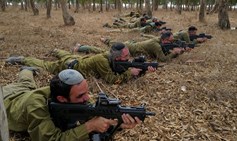
Quantity and Cost of Reserve Service in the Event that Haredim Enter Regular and Reserve Service in the IDF
Written By: Adv. Shlomit Ravitsky Tur-Paz, Gabriel Gordon
We examine the increased burden of reserve service that the defense establishment is seeking to impose on the population groups that already perform regular and reserve service, and the economic-budgetary implications of this step for the period through to 2050.
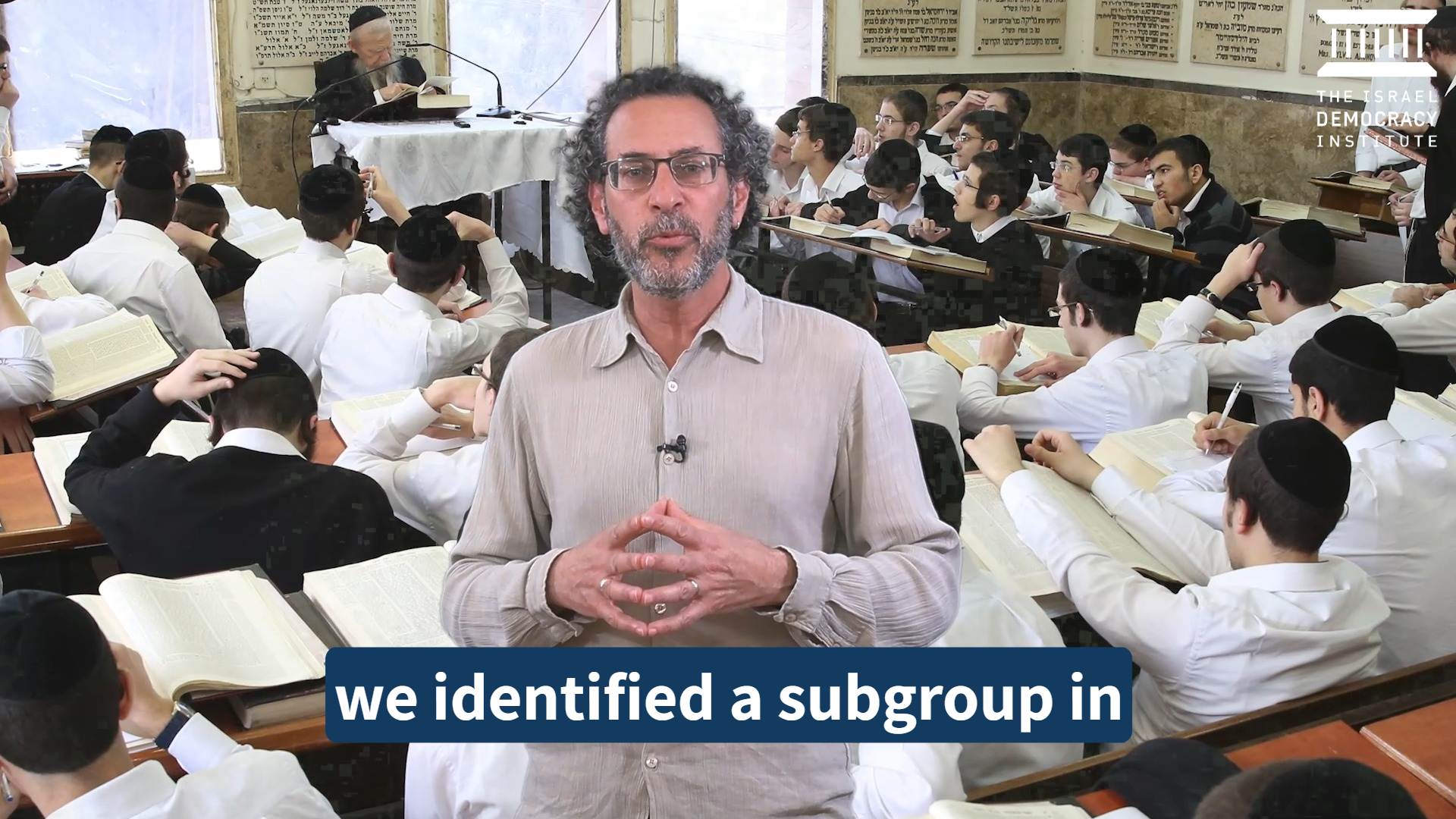
Alternative Yeshivas and Changing Perspectives Among Haredi Youth
Written By: Dr. Asaf Malchi
Dr. Asaf Malchi's research explores the perspective of yeshiva students, their personal and social challenges and highlights a subgroup of 'alterative yeshivas' and their shifting perspectives on vocational training and employment.

A Fair Draft Law, What Would That Look Like?
Written By: Dr. Gilad Malach
IDI's Dr. Gilad Malach explains what a fair draft law for the ultra-Orthodox would look like. One that would distribute the burden over Israel's security more equally while enabling young Haredi men to integrate into the job market.
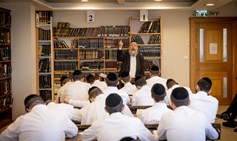
From the World of Torah Study to the World of Work: Social Challenges and Employment Potential Among Haredi Yeshiva Students
Written By: Dr. Asaf Malchi
This study was designed to assess the level of satisfaction among students in higher yeshivot (ages 17 and above), their personal and social challenges, and their attitudes toward possible alternatives to yeshiva studies, such as vocational training and employment.
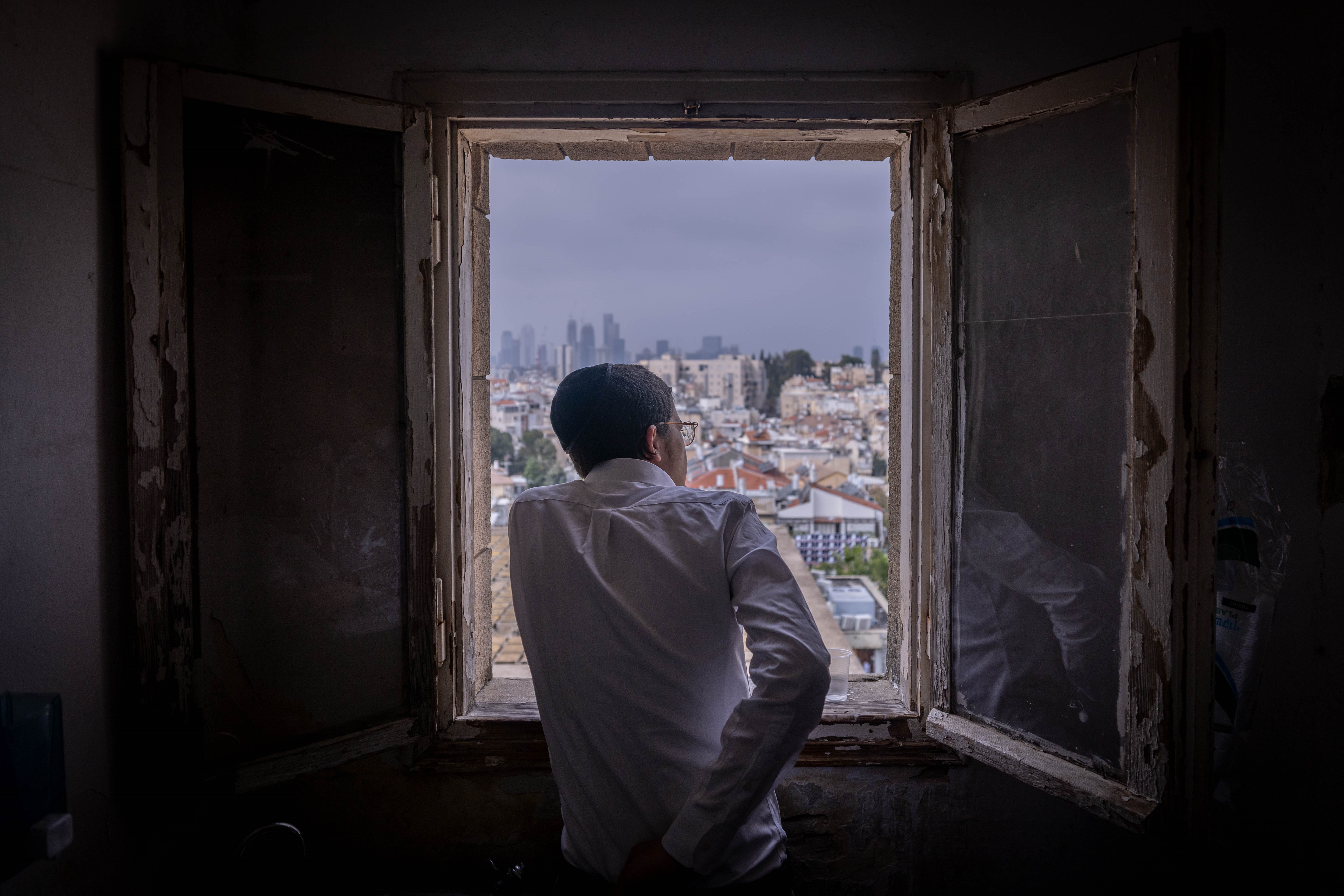
I, Too, Have Come to my Senses: It is Time to Rethink the Haredi Role in Israeli Society
Written By: Dr. Rivka Neriya Ben-Shahar
Dr. Rivka Neriya-Ben Shahar proposes a model that resembles the secular educational system of colleges and universities to identify the most gifted torah scholars, who would receive a generous stipend. Others must rethink their role as part of Israeli society.
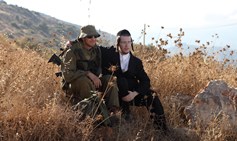
Development of the Haredi Exemption Law
Written By: Prof. Yuval Shany, Adv. Mirit Lavi
The history of the ultra-Orthodox exemption from service in the Israeli Defense Force (IDF), from the 1948 until today.
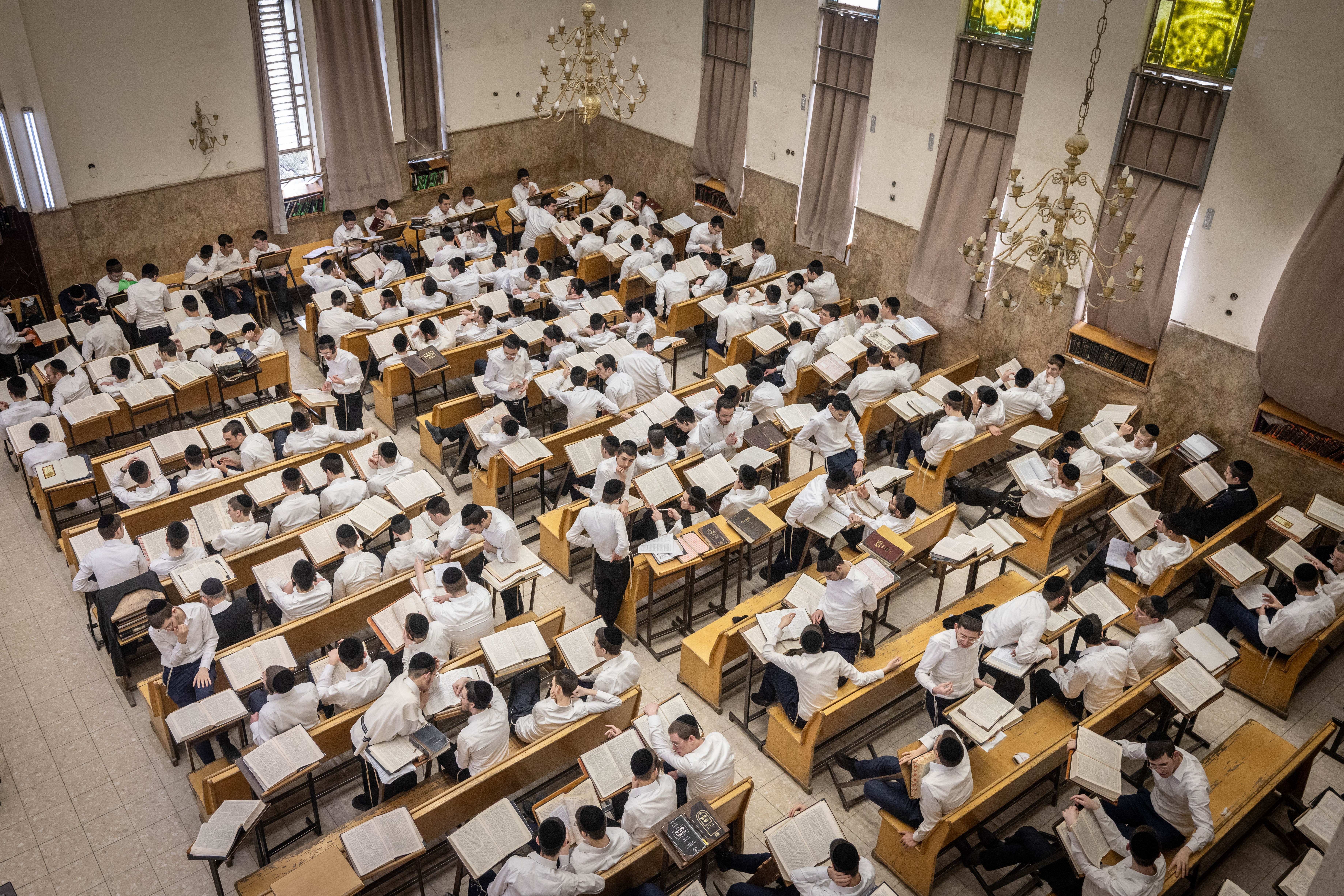
IDI Analysis: 7.3% Surge in Yeshiva and Kollel Students
Written By: Yohanan Plesner , Dr. Gilad Malach
Yohanan Plesner, president of IDI and head of the 2012 Plesner committee which sought to implement a model of "service for all," and Dr. Gilad Malach, head of the ultra-Orthodox program at IDI, share their analysis of the rapid increase in the number of yeshiva and kollel students over the past year.
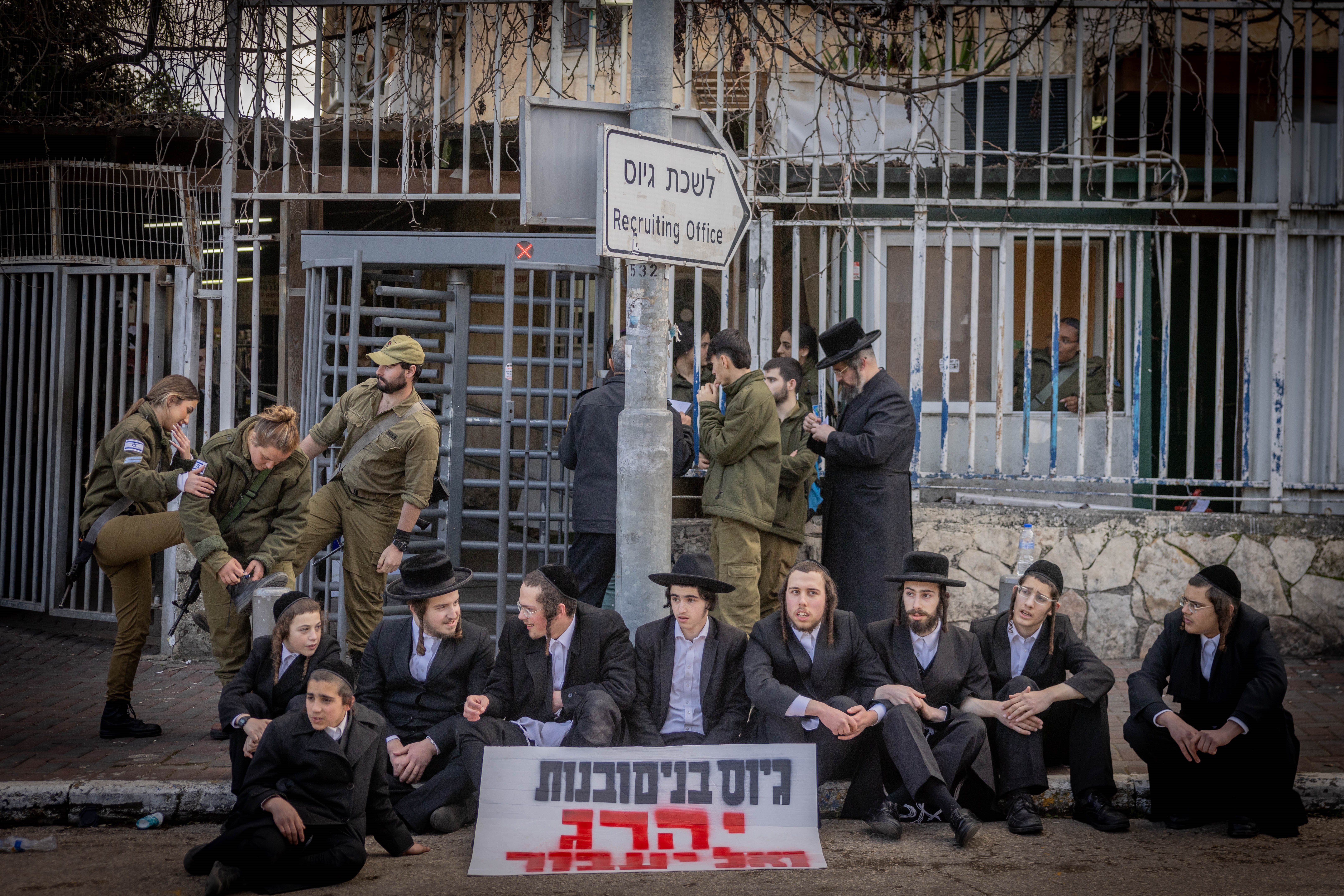
Explainer: The Supreme Court hearing on (non) recruitment of ultra-Orthodox men and budgeting of yeshivas
Written By: Adv. Shlomit Ravitsky Tur-Paz
What is the connection between the expiration of the conscription law and the budgets for yeshivas? What exactly was discussed in the Supreme Court and is the state in violation of the law? Bottom line, will the ultra-Orthodox be recruited, or not?
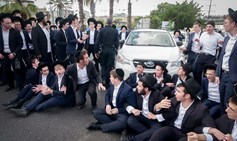
Follow the Money: On the War, Drafting the Yeshiva Students, and the State Budget
Written By: Prof. Benjamin Porat
The legal basis for deferring military service for Yeshiva students no longer exists, removing legal justification for the transference of funds to religious institutions with students under 26. Funding for Torah study institutions is the most substantial question that needs to be addressed at the current time, when Israeli society is rethinking its relations with the Haredi public.
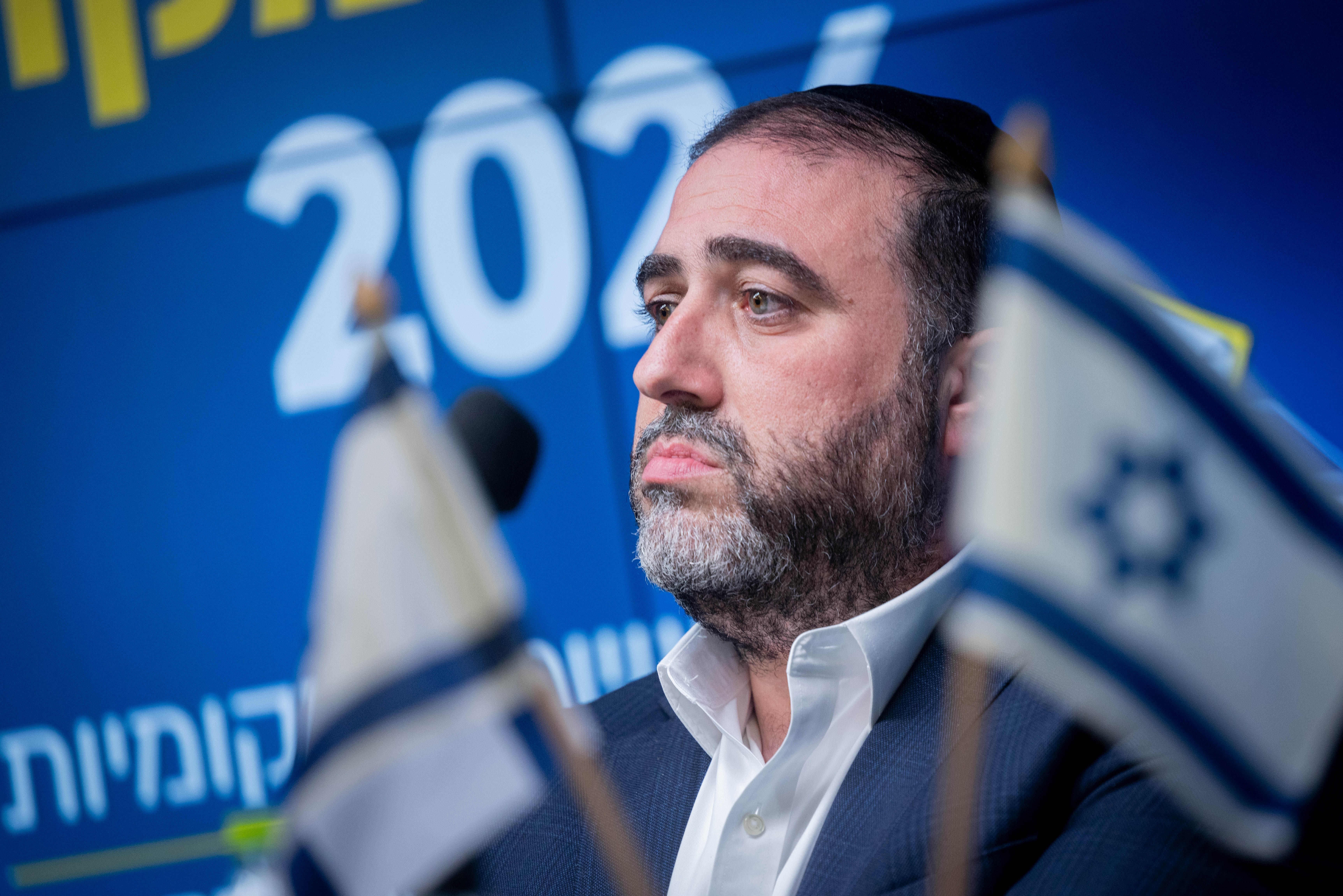
Rabbinical Elites Versus Traditionalists: IDF Conscription Law Reveals Rifts in Shas Party
Written By: Eliyahu Berkovits
Internal struggles between factions within the Sepharadic ultra-religious movement Shas are only beginning. The absence of the unifying figure of Rabbi Ovadia Yosef is still sorely felt, and only time will tell whether the rabbinical elite or the Knesset members representing a moderate electorate will gain the upper hand.
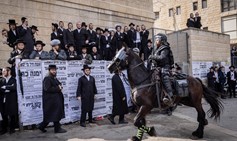
Bordering Beliefs: Israel’s Sociopolitical Divide Between Liberal and Ultra-Orthodox Values
Written By: Adv. Edna Harel Fisher
In Israel, social borders, political demands and the status of women continue to underscore tensions between liberal democratic values and the conservative, ultra-Orthodox Jewish communities.
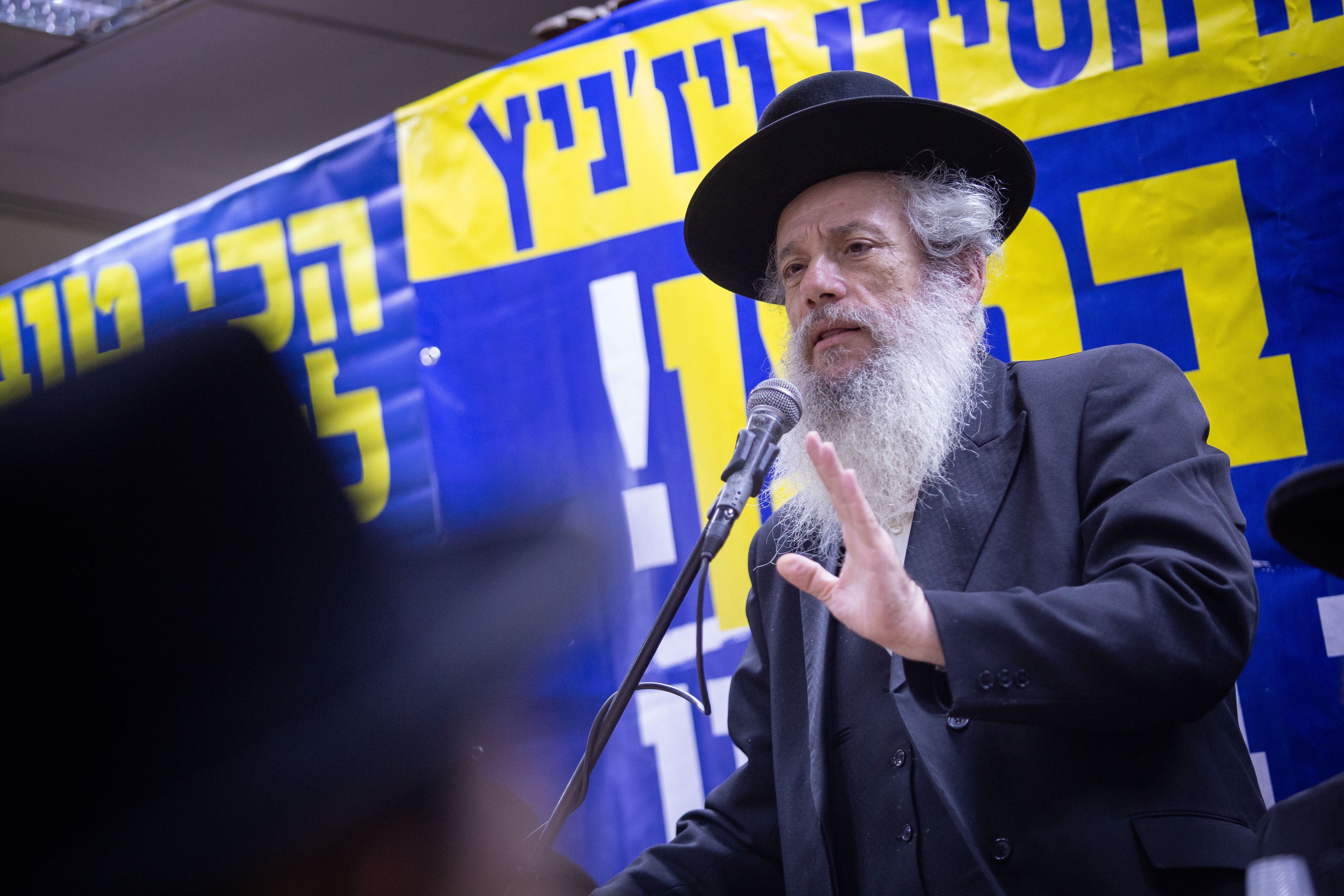
The Political Structure of Haredi Local Authorities and Its Influence on How They Operate
Written By: Dr. Ariel Finkelstein
How are elections in ultra-Orthodox municipalities different from those in non-orthodox local authorities? Are they comparable to the Arab community? A survey an analysis of the political structure of Haredi local authorities.
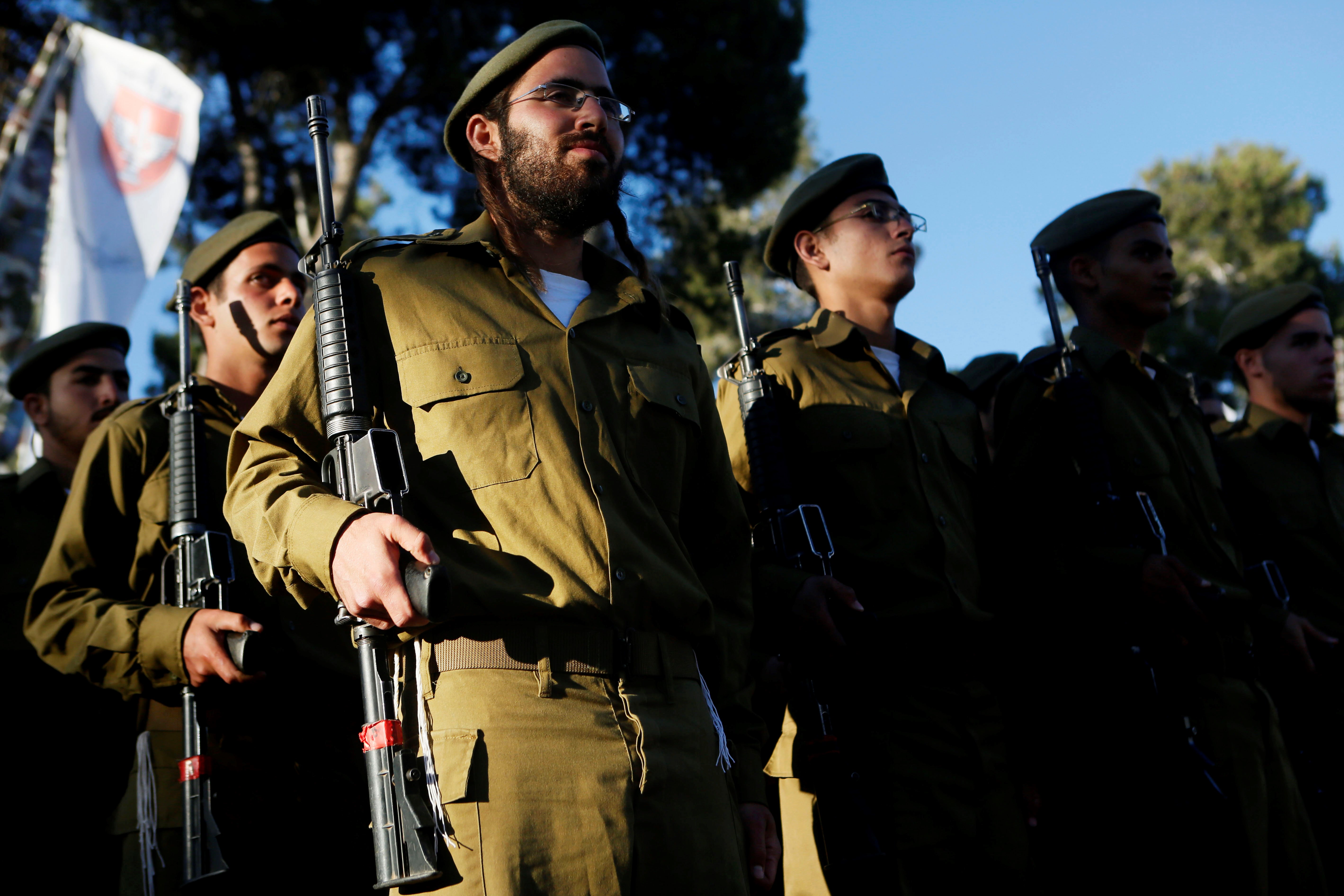
The Modern Haredi, As Envisioned by Rabbi David Leibel
Written By: Eliyahu Berkovits
Recently, a new answer to the dilemma of the 'modern Haredi' has been advanced enthusiastically by Rabbi David Leibel, one that maintains religiosity while increasing civic participation in the economy and in defense of Israel.

Population
Written By: Dr. Lee Cahaner, Dr. Gilad Malach
First chapter of six of the 'Statistical Report on Ultra-Orthodox Society in Israel'

Education
Written By: Dr. Lee Cahaner, Dr. Gilad Malach
Second chapter of six of the 'Statistical Report on Ultra-Orthodox Society in Israel'

Standard of Living
Written By: Dr. Lee Cahaner, Dr. Gilad Malach
Third chapter of six of the 'Statistical Report on Ultra-Orthodox Society in Israel'

Employment
Written By: Dr. Lee Cahaner, Dr. Gilad Malach, Yael Bachar
Fourth chapter of six of the 'Statistical Report on Ultra-Orthodox Society in Israel'

Lifestyles
Written By: Dr. Lee Cahaner, Dr. Gilad Malach
Fifth chapter of six of the 'Statistical Report on Ultra-Orthodox Society in Israel'

Effects of COVID-19, Views on Democracy and the Media, and Religion in Israel
Written By: Dr. Lee Cahaner, Dr. Gilad Malach
Sixth chapter of six of the 'Statistical Report on Ultra-Orthodox Society in Israel'
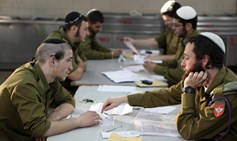
A New Social Contract with the IDF? On the Benefits of Waiting to Decide
Written By: Prof. Amichai Cohen, Dr. Gilad Malach
The need for expanded IDF service is clear—but the options for achieving this are rife with political contention and economic consequences. The time to rethink long-term security arrangements is after the fog of war lifts, under newly elected leaders with broad public legitimacy.
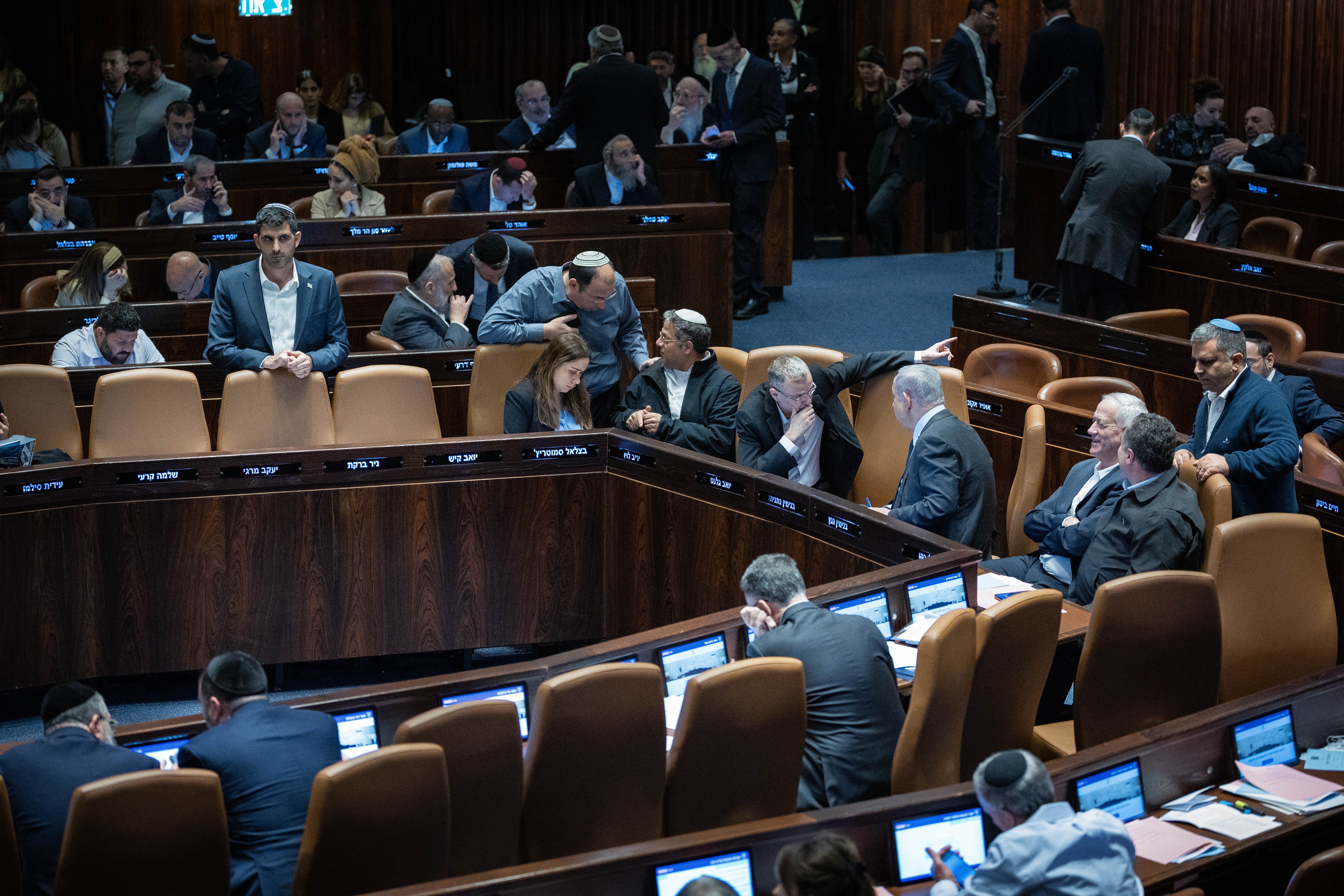
Coalition and Political Funds: Main Conclusions
Written By: Prof. Karnit Flug, Tzachi David
Coalition funds have been part of the budget-making progress for years. This study examines the trends in the use of these funds under the last three governments. One can see that the volume of coalition funds has grown up to fourfold within two Governments and that their breakdown has been less professional and more directed to interest groups.
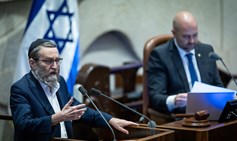
The Gap Between the Haredi Public and Politicians
Written By: Dr. Gilad Malach
The divide between Israel's Haredi (ultra-Orthodox) public and the Haredi establishment and political leadership has never been more striking. Many parts of Haredi society have joined the national war efforts while the Haredi political leadership have acted as if nothing has happened.
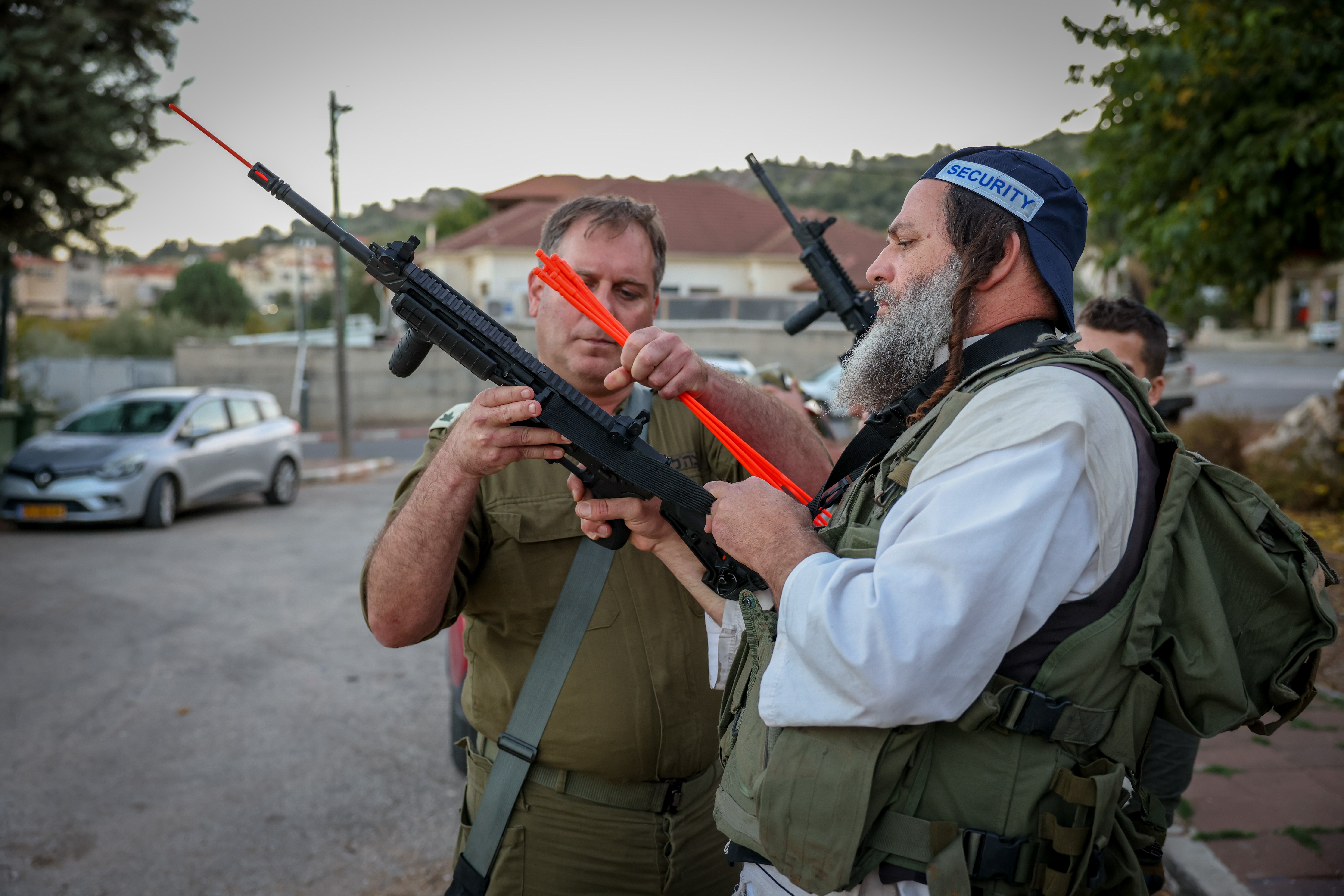
Haredi Enlistment for the Current War with Hamas is a Sign of a New Model of Rabbinic Leadership
Written By: Tehila Gado
The heads of the established traditional Haredi yeshivot have instructed their institutions to continue studies as normal during the current state of emergency, in accordance with the belief in the power of Torah study to protect the people of Israel. By contrast, the messages heard from various other rabbis reflect an understanding of changing needs and offer a blueprint for a new leadership vision.
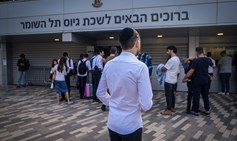
Haredi Enlistment In the IDF – A New Normal?
Written By: Eliyahu Berkovits
A growing number of Haredi men are volunteering for the IDF following the outbreak of the war against Hamas. This trend may signify that the “modern Haredi” phenomenon may be developing into a real movement.
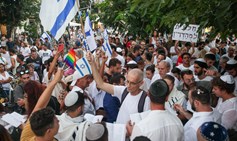
When solidarity was lost on the most important day of the Jewish year
Written By: Prof. Amichai Cohen
The hurt felt by the broad section of the Israeli public that is moderately traditional may have serious consequences for the struggle against the government’s judicial overhaul.
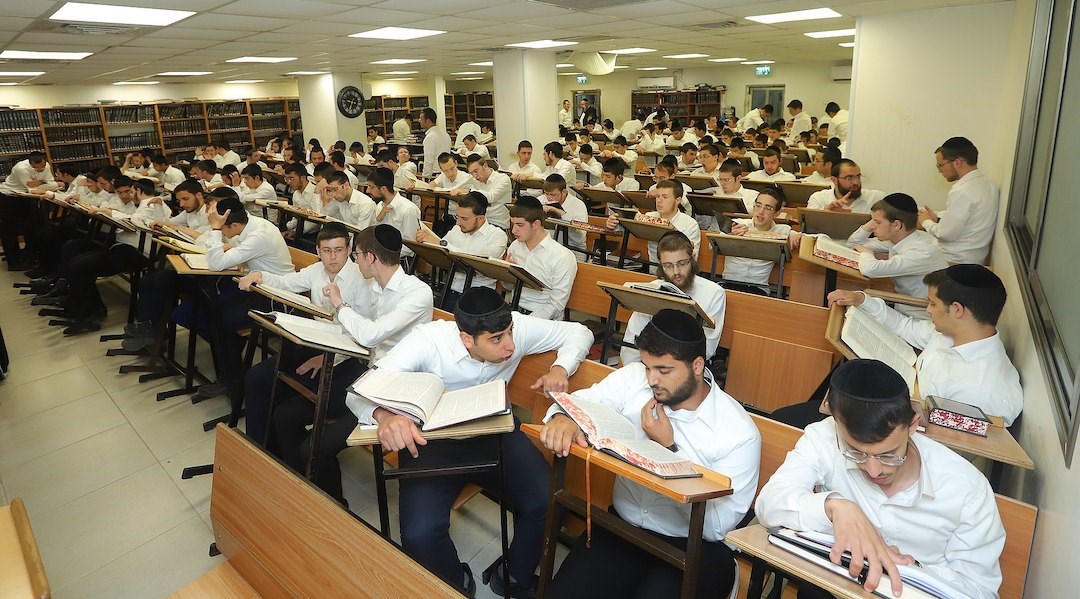
What’s happening right now around secular studies in Israeli yeshivas is remarkable
Written By: Eliyahu Berkovits, Dr. Gilad Malach
In recent weeks it seems that something notable is happening in the Israeli haredi, or ultra-Orthodox, community when it comes to teaching math, English and science in schools almost exclusively devoted to religious instruction.
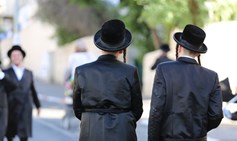
Extending the Definition of Incitement Exclusively to Haredim: Unequal and Unjust
Written By: Dr. Amir Fuchs
Should the foundations of the crime of incitement to racism be reconsidered? Absolutely-yes. But it should not be selective and favor a particular sector in society.
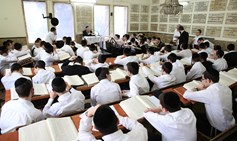
On the Haredi Educational System
Written By: Adv. Shlomit Ravitsky Tur-Paz, Dr. Gilad Malach
This explainer will cover the current structure of the Haredi education system, its pedagogical requirements and the budgets it receives from the Government.
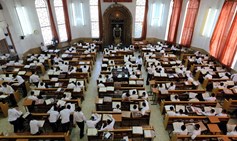
Mass Tracking of Boys to Yeshivas Comes at the Price of Excellence
Written By: Prof. Benjamin Porat, Eliyahu Berkovits
The current model of the yeshiva and kollel world, in which all men are channelled for long years of study serves the goal of keeping young ultra-Orthodox men off the secular street. Paradoxically, the main victim is the Torah world itself.
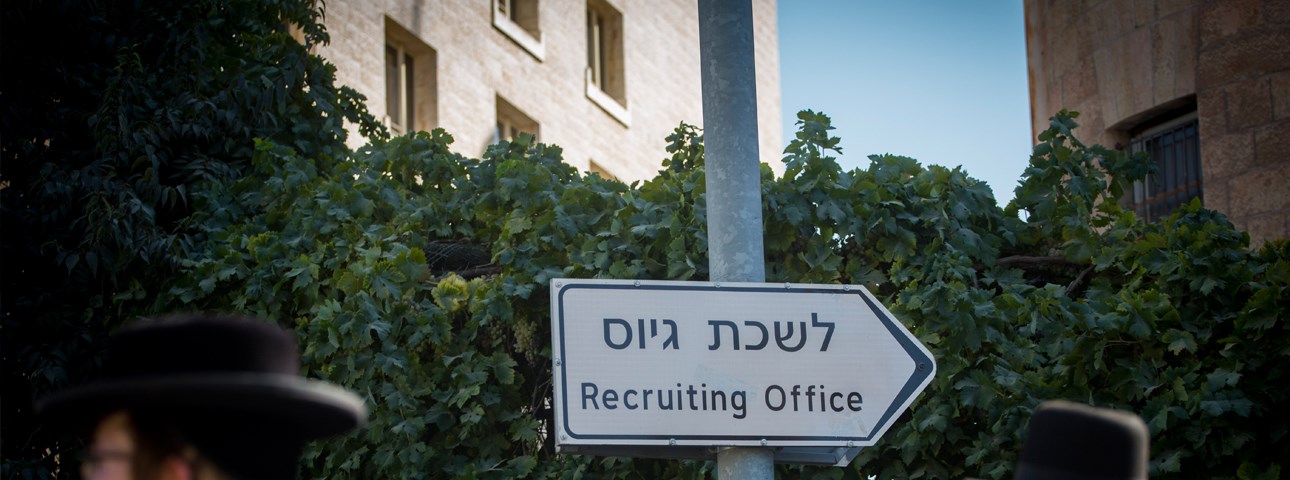
The IDF ‘Israel Service’ Plan is Complicated and Costly
Written By: Dr. Asaf Malchi
How would different tracks of enlistment change the longstanding Israeli ethos of service and sacrifice for the state and society?
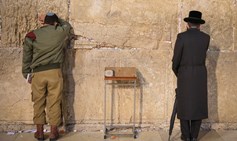
The Government Bill for the Exemption of Ultra-Orthodox (Haredi) Men from IDF Service: A Brief Guide
Written By: Adv. Shlomit Ravitsky Tur-Paz, Dr. Gilad Malach
The ultra-Orthodox (Haredi) Conscription bill, if passed into law, would in effect, allow Haredi men to totally avoid military service.
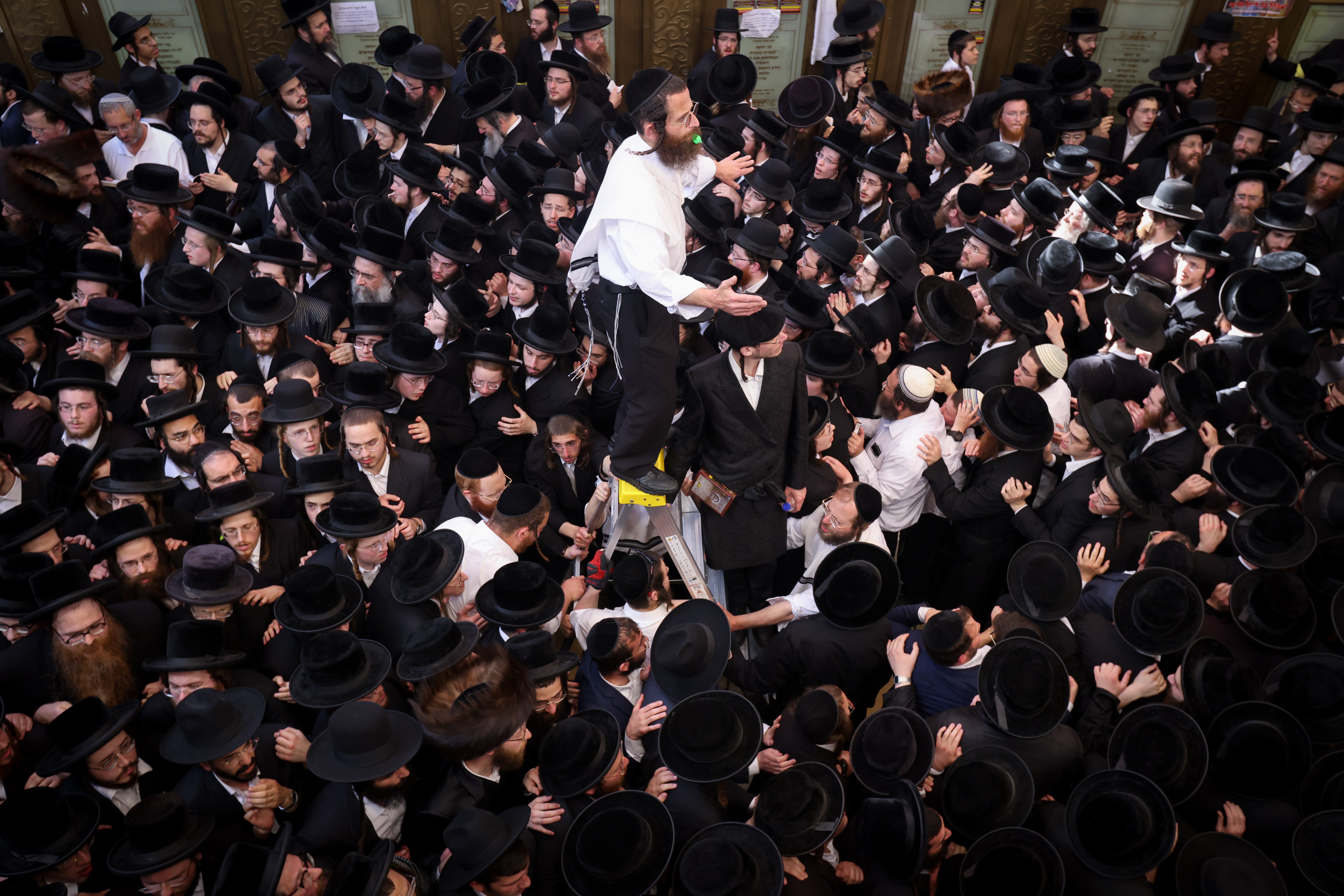
The Meron Disaster as Reflected in Ultraorthodox (Haredi) Society Media
Written By: Dr. Rivka Neriya Ben-Shahar
For years, ultra-Orthodox leadership has been protesting that the internet will bring rack and ruin on the entire community and on individual users, however, the internet and especially the social networks, play a major role in the internal reforms that the ultra-Orthodox must introduce.
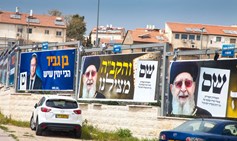
Are Israel's Haredim Leaning Left or Right?
Written By: Eliyahu Berkovits
The deep fear expressed by the leadership of Israelis haredim is not of external criticism, but of an internal blurring of identity and straying from the path.

Faust is Dressed like an Ultra-Orthodox Jew
Written By: Eliyahu Berkovits
The law for “adequate and appropriate representation” that is progressing along the Knesset legislative path is neither just, nor fair; it is neither wise nor ethical. And above all, it is not ultra-Orthodox.

Knowledge of Languages, Wellbeing, Transportation and Road Safety
Written By: Dr. Lee Cahaner, Dr. Gilad Malach
Sixth chapter of six of the 'Statistical Report on Ultra-Orthodox Society in Israel'

Population
Written By: Dr. Lee Cahaner, Dr. Gilad Malach
First chapter of six of the 'Statistical Report on Ultra-Orthodox Society in Israel'

Education
Written By: Dr. Lee Cahaner, Dr. Gilad Malach
Second chapter of six of the 'Statistical Report on Ultra-Orthodox Society in Israel'

Standard of Living
Written By: Dr. Lee Cahaner, Dr. Gilad Malach
Third chapter of six of the 'Statistical Report on Ultra-Orthodox Society in Israel'

Employment
Written By: Dr. Lee Cahaner, Dr. Gilad Malach
Fourth chapter of six of the 'Statistical Report on Ultra-Orthodox Society in Israel'

Lifestyles
Written By: Dr. Lee Cahaner, Dr. Gilad Malach
Fifth chapter of six of the 'Statistical Report on Ultra-Orthodox Society in Israel'
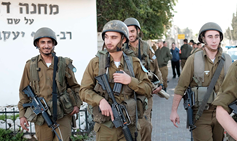
The IDF’s Greatest Challenge
Written By: Yohanan Plesner
The model underlying the IDF’s success is in grave danger - we must have the courage to change its outdated model of service
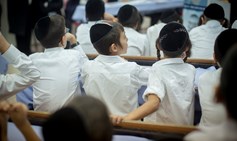
English Studies for Ultra-Orthodox Boys - Study
Written By: Dr. Ariel Finkelstein
A new IDI study finds that 26% of ultra-Orthodox men say they don’t know English at all and an additional 28% say their English is "poor."
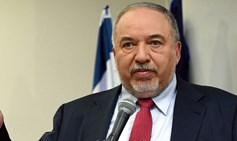
Employment Incentives for the Haredi Community are a Mix of ‘Carrots’ and ‘Sticks’
Written By: Dr. Gilad Malach
Finance Minister Liberman’s employment incentives for members of the ultra-Orthodox (Haredi) community are a "mix of ‘carrots’ and ‘sticks’ and could encourage members of the Haredi community to join the labor market - however elements of the plan could also expand the existing trend of part-time employment.
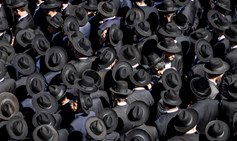
An Increase Among Ultra-Orthodox Men Enrollment in Higher Education and Yeshivas
Written By: Dr. Gilad Malach, Dr. Lee Cahaner
Ultra-Orthodox Jews now make up 13% of Israelis, and are continuing to grow rapidly. In 2020, the pandemic led to an increase in the number of applicants for professional and academic training, especially among ultra-Orthodox men
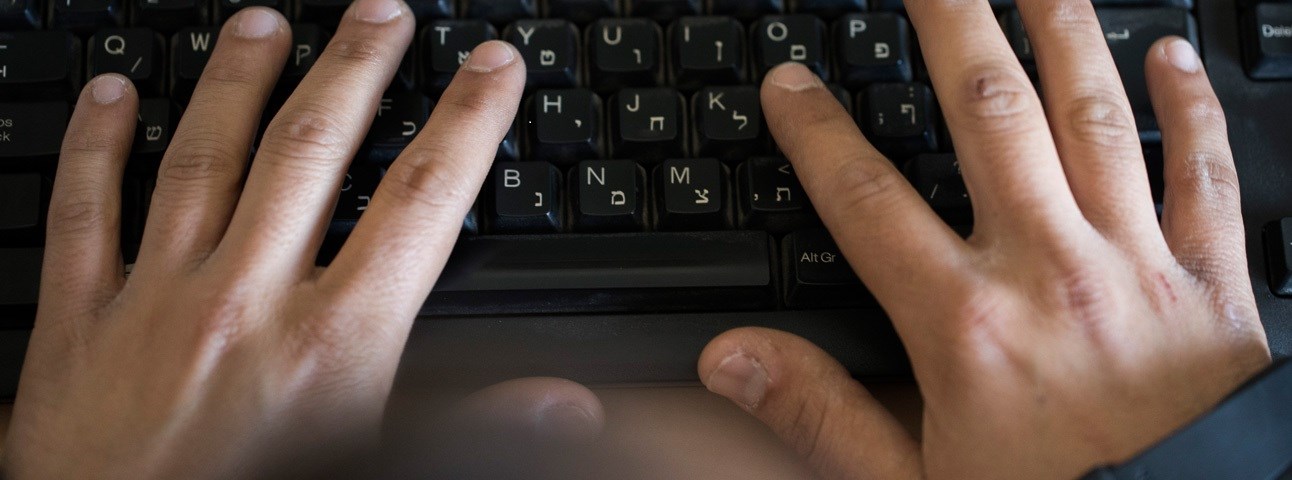
Two Thirds of Ultra-Orthodox Are Online
Written By: Dr. Gilad Malach, Dr. Lee Cahaner
Despite public criticism, two thirds of ultra-Orthodox Israelis are now online
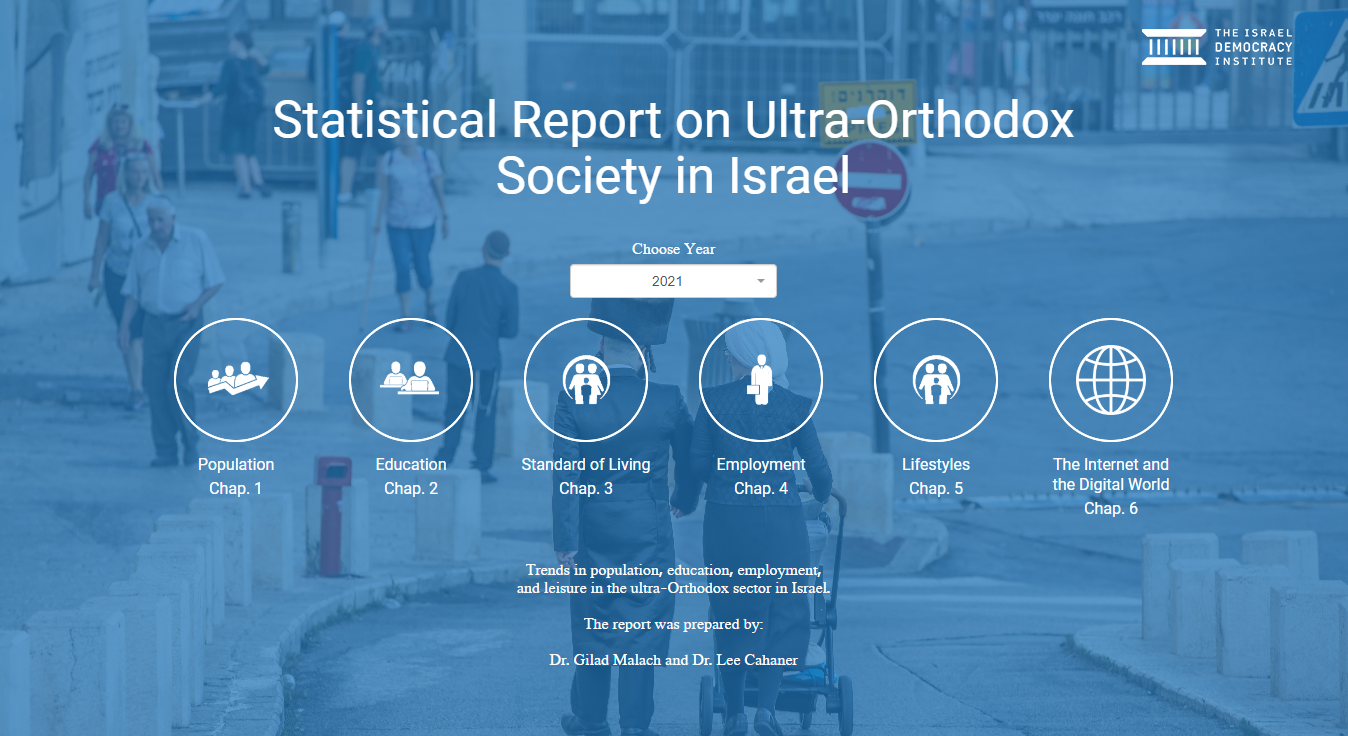
The Internet and the Digital World
Written By: Dr. Lee Cahaner, Dr. Gilad Malach
Sixth chapter of six of the 'Statistical Report on Ultra-Orthodox Society in Israel'

Standard of Living
Written By: Dr. Lee Cahaner, Dr. Gilad Malach
Third chapter of six of the 'Statistical Report on Ultra-Orthodox Society in Israel'

Employment
Written By: Dr. Lee Cahaner, Dr. Gilad Malach
Fourth chapter of six of the 'Statistical Report on Ultra-Orthodox Society in Israel'

Lifestyles
Written By: Dr. Lee Cahaner, Dr. Gilad Malach
Fifth chapter of six of the 'Statistical Report on Ultra-Orthodox Society in Israel'

Population
Written By: Dr. Lee Cahaner, Dr. Gilad Malach
First chapter of six of the 'Statistical Report on Ultra-Orthodox Society in Israel'
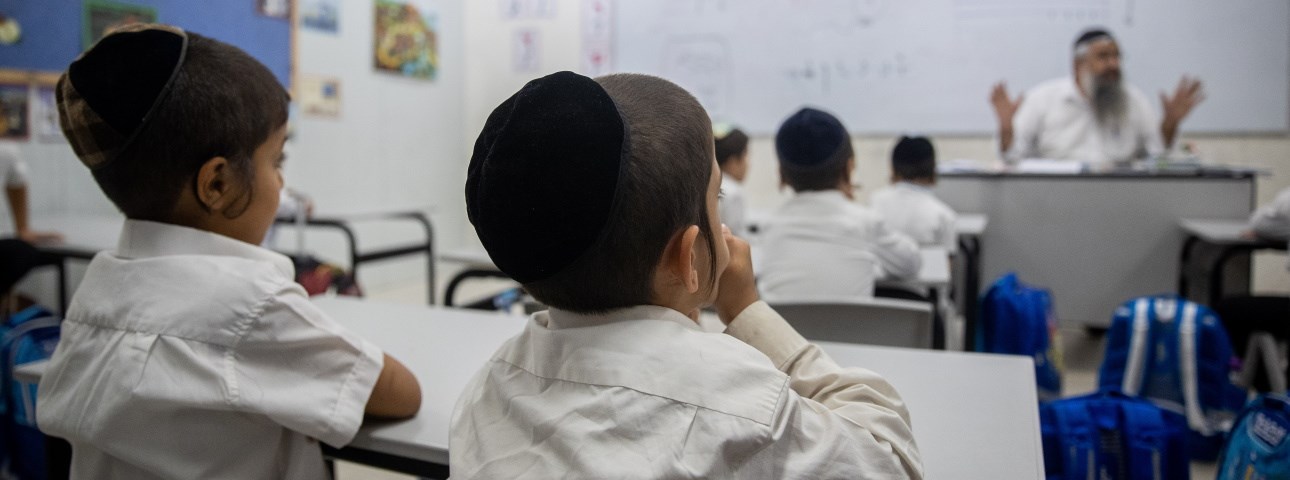
Dramatic Rise in the Number of Sexual Abuse Cases Treated by Social Service Departments in Ultra-Orthodox Local Authorities
Written By: Dr. Ariel Finkelstein
Growing willingness to report sexual abuse in ultra-Orthodox society: The last two decades have seen a dramatic rise in the number of cases of sexual abuse or violence against children treated by social service agencies in ultra-Orthodox local authorities, where today- the rate of abuse is higher than in other local authorities

Lowering the Age of Exemption will Lead Thousands of Haredim into the Labor Force
Written By: Yohanan Plesner , Dr. Gilad Malach
Congratulations to the Bennett government on approving the outline for lowering the age of the students exempted from service in the IDF to 21. This is a vital and necessary step that the Israel Democracy Institute has recommended in recent years. A kind of necessary evil that will lead in the short term to the entry of about 5,000 ultra-Orthodox into the labor market and thousands more in the coming years.
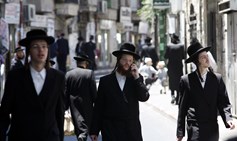
Lowering the Exemption Age for Military Service
Written By: Dr. Gilad Malach
Survey finds lowering the exemption age is not likely to reduce the number of ultra-Orthodox conscripts to the IDF, however it will encourage thousands of ultra-Orthodox men to enter the workforce.
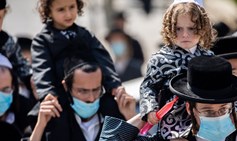
Decision on Daycare Subsidies = Increased Motivation to Work
Written By: Dr. Gilad Malach
Dr. Gilad Malach on the Finance Minister's Decision Regarding Daycare Subsidies: "This is a welcome decision that will end the preferential treatment that ultra-Orthodox households have enjoyed"
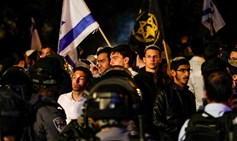
As the Margins Grow Wider, the Flames get Hotter
Written By: Dr. Asaf Malchi
Though this handful of demonstrators is not representative of ultra-Orthodox society as a whole, it reflects a growing trend among young ultra-Orthodox men who find an outlet in right-wing protests.
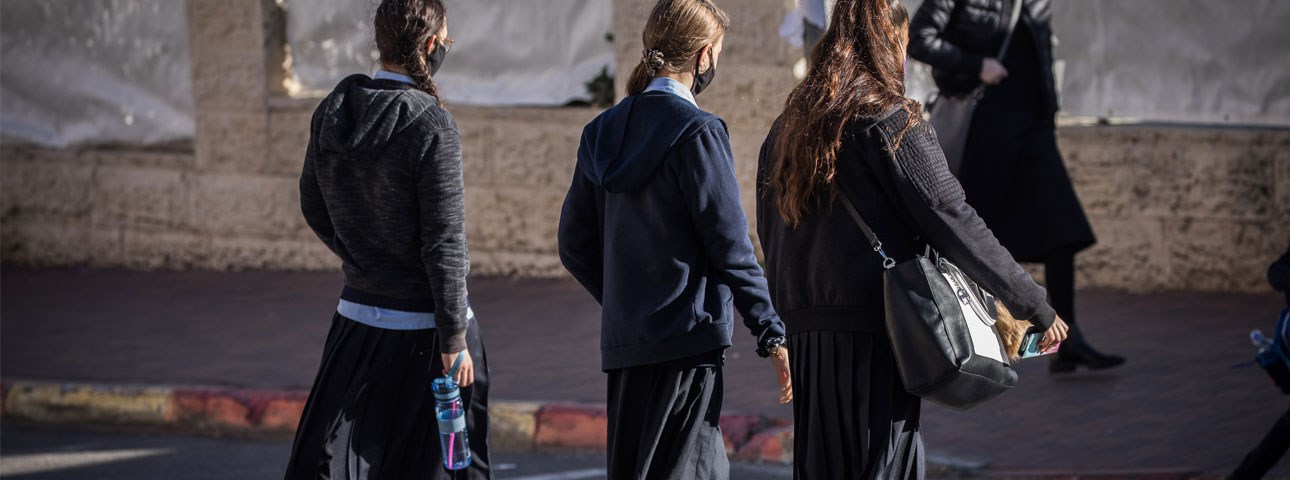
The Better to Support their Families: The Education of Ultra-Orthodox Women
Written By: Dr. Gilad Malach
Ultra-Orthodox women’s employment in Israel has undergone a revolution in recent years—that is, the diversification of the occupations in which they are employed
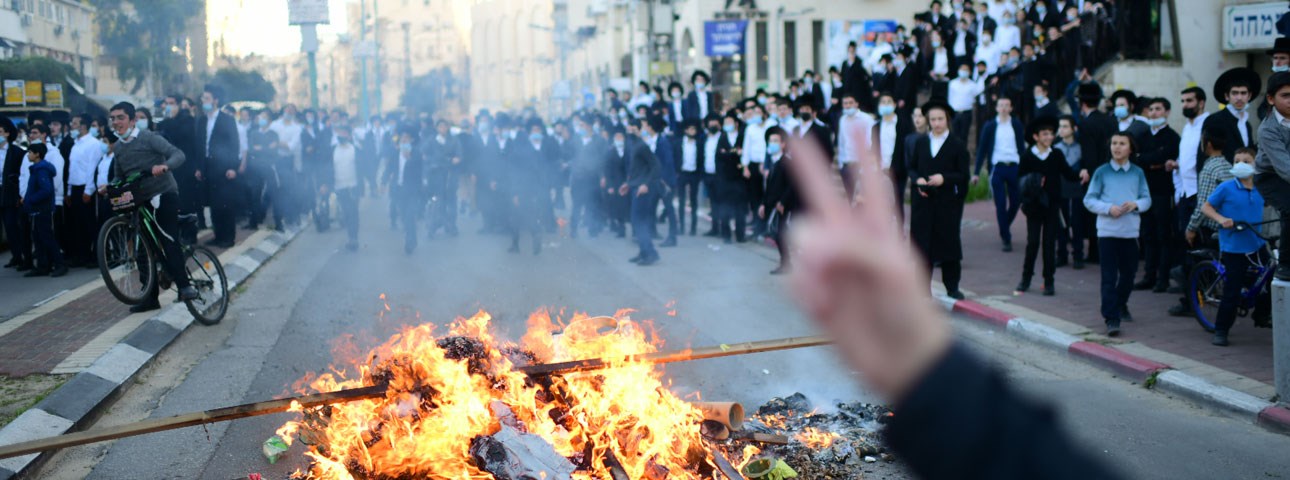
On the Fringes of Ultra-Orthodox Society
Written By: Dr. Asaf Malchi
Government agencies have not geared up to effectively address the phenomenon of marginalized ultra-Orthodox youth

Education
Written By: Dr. Lee Cahaner, Dr. Gilad Malach
Second chapter of six of the 'Statistical Report on Ultra-Orthodox Society in Israel'
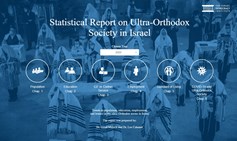
COVID-19 and Ultra-Orthodox Society
Written By: Dr. Gilad Malach, Dr. Lee Cahaner
Sixth chapter of six of the 'Statistical Report on Ultra-Orthodox Society in Israel'

Population
Written By: Dr. Gilad Malach, Dr. Lee Cahaner
First chapter of six of the 'Statistical Report on Ultra-Orthodox Society in Israel'

Education
Written By: Dr. Gilad Malach, Dr. Lee Cahaner
Second chapter of six of the 'Statistical Report on Ultra-Orthodox Society in Israel'

IDF or Civilian Service
Written By: Dr. Gilad Malach, Dr. Lee Cahaner
Third chapter of six of the 'Statistical Report on Ultra-Orthodox Society in Israel'

Employment
Written By: Dr. Gilad Malach, Dr. Lee Cahaner
Fourth chapter of six of the 'Statistical Report on Ultra-Orthodox Society in Israel'

Standard of Living
Written By: Dr. Gilad Malach, Dr. Lee Cahaner
Fifth chapter of six of the 'Statistical Report on Ultra-Orthodox Society in Israel'
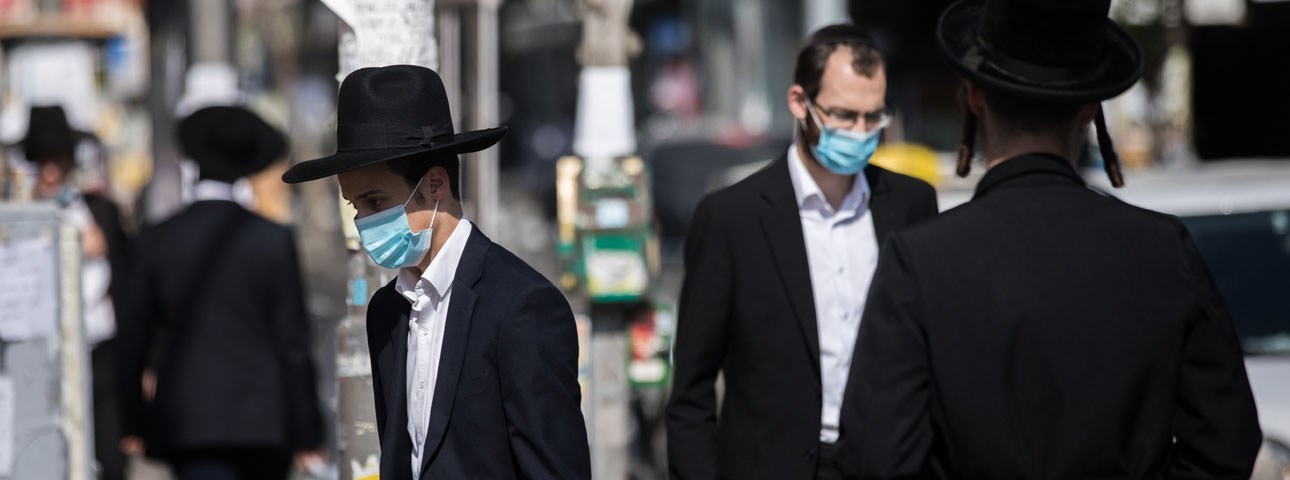
Haredim Trust Rabbis More Than the Health Ministry on COVID-19
Written By: Prof. Tamar Hermann, Dr. Or Anabi
62% of Haredim have very little or no confidence in Prime Minister Netanyahu's Handling of COVID-19; 60% think decision makers are guided mostly or only by political concerns
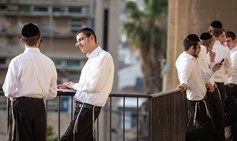
Transitions Between Religious Groups among Israeli Jews: Abstract
Written By: Gabriel Gordon
This study provides first-ever reliable estimate of the rate and scope of transitions into and out of the ultra-Orthodox community; an analysis made possible thanks to innovative methodology and a rich dataset.
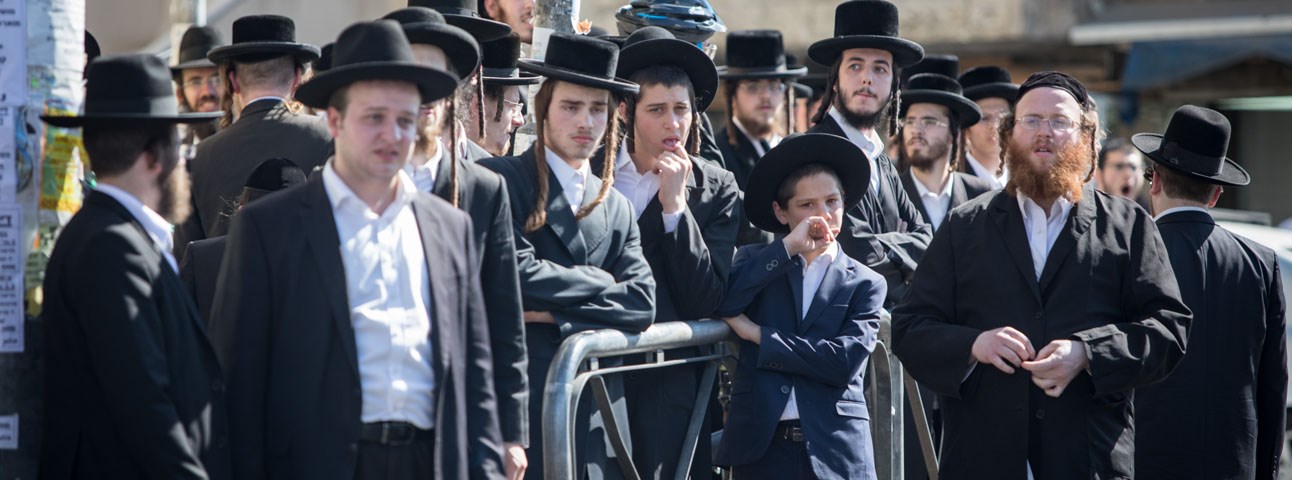
Ultra-Orthodox Non-Compliance Rests on Fear
Written By: Dr. Shuki Friedman
In the second wave of the pandemic it seems that many ultra-Orthodox rabbis are assigning higher priority to 'customer retention' than to the clear halakhic imperative to preserve health and life
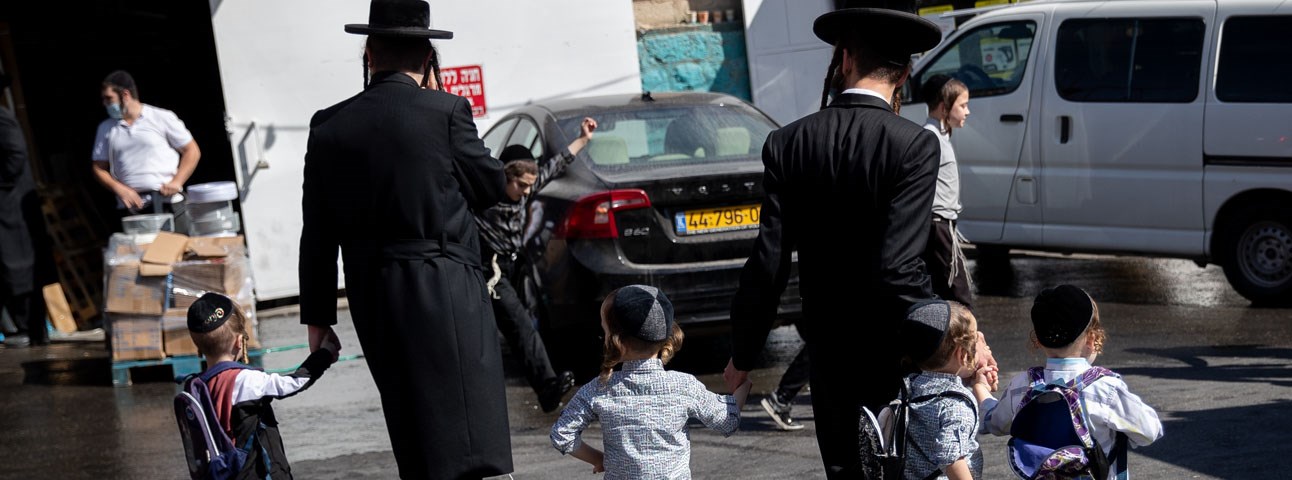
An Organized Civil Disobedience Campaign
Written By: Prof. Yedidia Z. Stern
Rabbi Kanievsky’s decision to disregard the law and open ultra-Orthodox schools is the first time in Israeli history that we are seeing something that approaches a call for mass civil disobedience orchestrated by a key public figure.
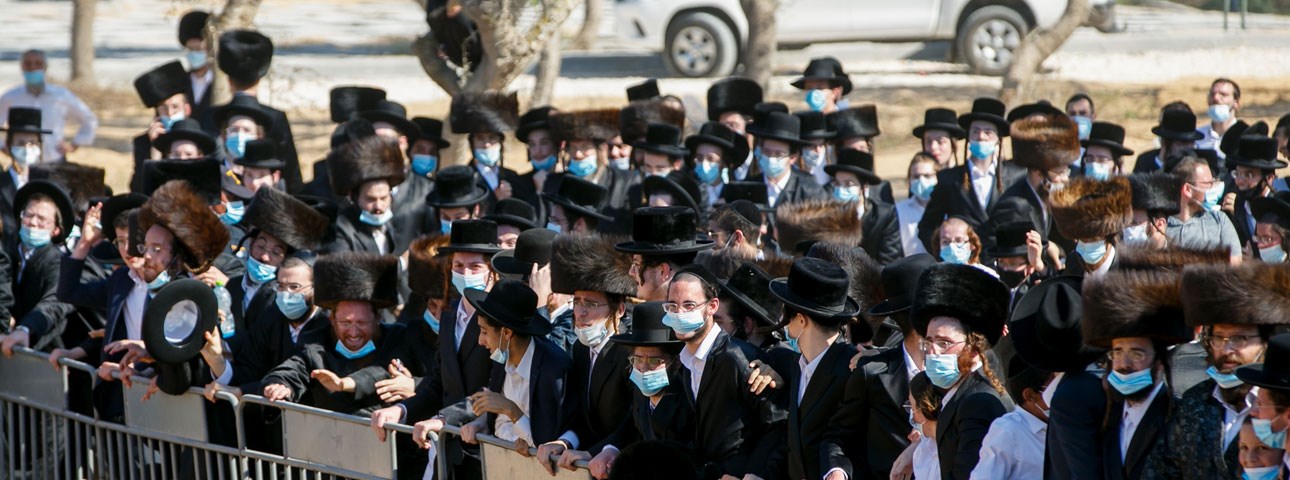
Haredim and Coronavirus: Policy Recommendations for Exit from Second Lockdown
Written By: Dr. Asaf Malchi, Dr. Gilad Malach, Dr. Shuki Friedman
IDI experts present analysis of recent behavior of the ultra-Orthodox sector and present recommendations for an exit strategy from the lockdown, to be applied in the coming weeks and months.

The Ultra-Orthodox and the Corona Crisis: Briefing
Written By: Yohanan Plesner , Dr. Shuki Friedman, Dr. Gilad Malach
IDI experts analyze recent behavior of the ultra-Orthodox sector and present recommendations for a staggered exit strategy from the lockdown.
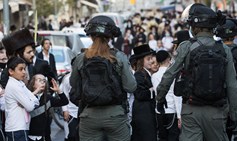
What Do You Do When there’s a Hole in the Boat?
Written By: Colonel (Res.) Dr. Liron A. Libman
The handwriting was on the wall. Since the founding of the State, rabbis have served as middlemen between the government and the ultra-Orthodox. We must acknowledge that this approach has failed miserably.

At the Crossroads: The Ultra-Orthodox Community and Israeli Society
Written By: Dr. Shuki Friedman
The coronavirus crisis proves once again that the lives of all Israelis are intertwined with those of the ultra-Orthodox and the country cannot be sustained with an autonomy living behind closed walls. Without shared responsibility for public health - 'normal life' will not be possible the post-COVID-19 era
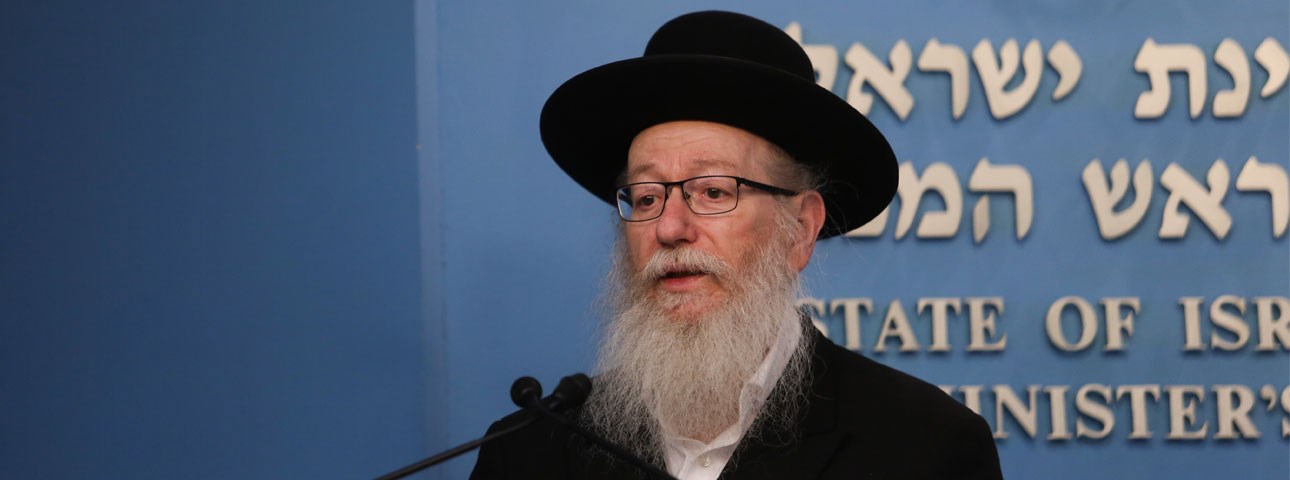
Haredim - High Level of Distrust of Government Policies
Dr. Gilad Malach, Director of IDI's Ultra-Orthodox in Israel program on MK Ya'acov Litzman's resignation from the Cabinet: "Indicative of a very strong sentiment among the ultra-Orthodox community where there is currently a high level of distrust of government policies."
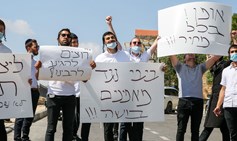
Haredim Lose Faith in their Political Parties
Written By: Dr. Gilad Malach
Ultra-Orthodox communities have been very critical of their political leaders for not advocating vigorously enough on their behalf at the beginning of the COVID crisis. Now, the ultra-Orthodox parties are at the forefront of the contentious demand to permit mass travel to Uman.
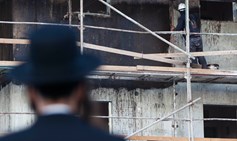
The New Housing Plan: A Grand Plan with Fine Print
Written By:
Subsidizing cheap old apartments in poor towns won't solve the housing shortage for the ultra-Orthodox, but it will destroy those towns' social fabric
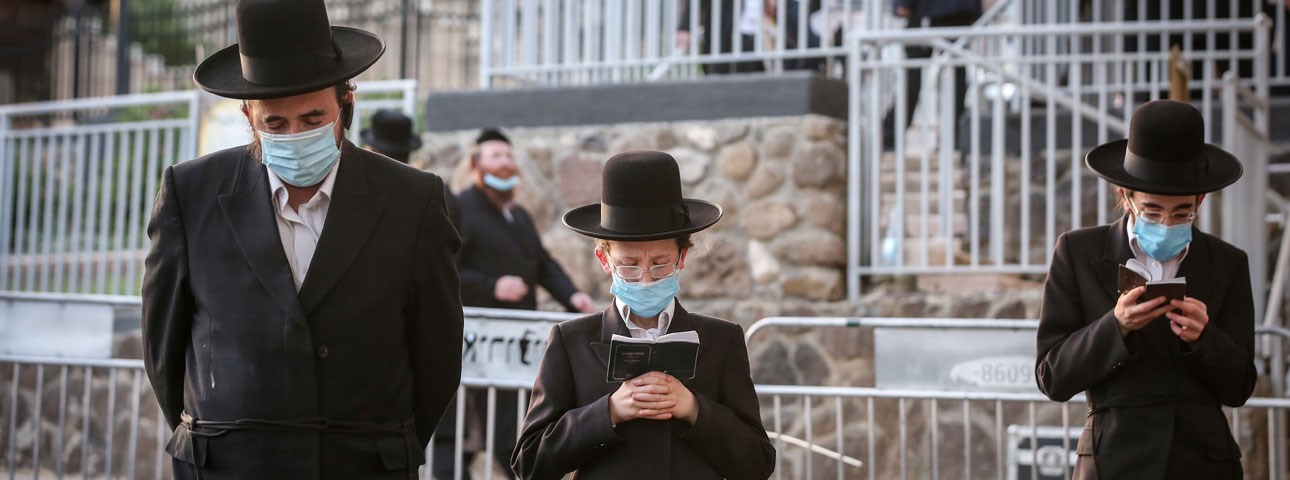
Integration of the Ultra-Orthodox the Wake of the Coronavirus
Written By: Dr. Gilad Malach, Ruben Gorbat
In wake of the coronavirus pandemic, IDI experts present a status report on the current state of Israel's ultra-Orthodox community as well as policy recommendations for how to better integrate them into Israeli society
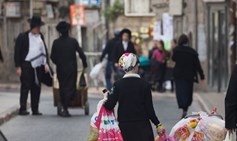
The Impact of the Corona Crisis on the Ultra-Orthodox Community
Written By: Prof. Tamar Hermann, Dr. Or Anabi
The corona crisis has had serious economic repercussions for many households, including for members of Israel's ultra-Orthodox community. Survey findings indicate that while most of the ultra-Orthodox plan to cut back on their current expenditures, there are also quite a few households in which one of the spouses plans on increasing the scope of his or her employment, and in about one-fifth of the households- one of the spouses who has not previously worked, intends to now join the workforce.
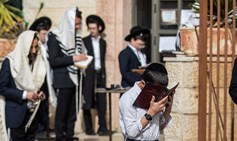
Public Health and the Ultra-Orthodox Community in Israel
Written By: Dr. Ariel Finkelstein
The lack of exposure to mainstream media outlets and the internet limits this community's access to Health Ministry instructions on the coronavirus.
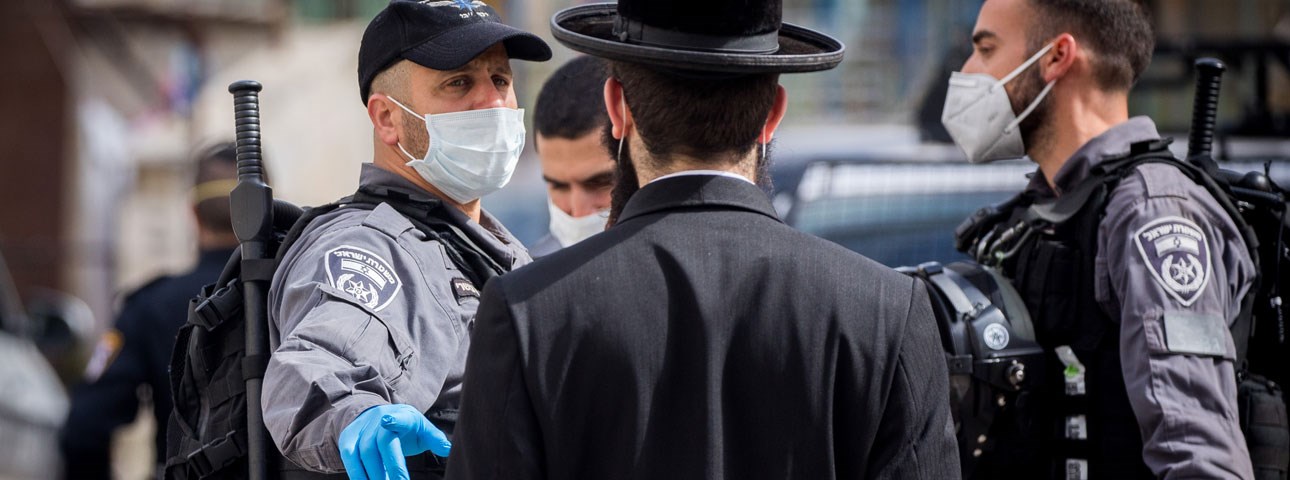
The Yom Kippur of the Ultra-Orthodox
Written By: Prof. Yedidia Z. Stern
The tragic results of initial faulty advice from leading rabbis is a wake-up call to Haredi Jews to start making their own decisions.
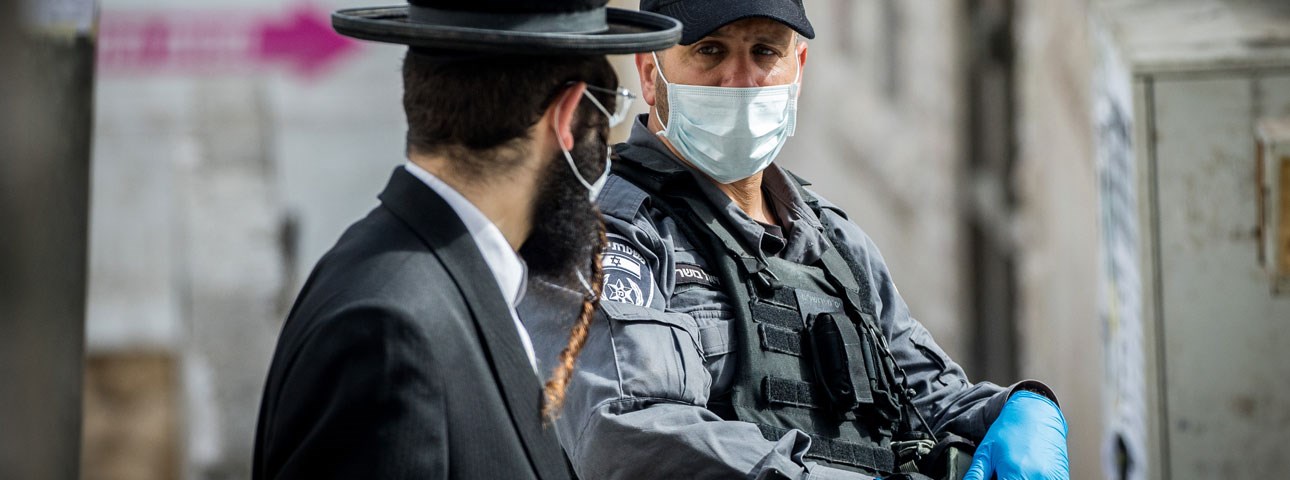
Ultra-Orthodox Society in Israel and the Coronavirus Pandemic
Written By: Dr. Gilad Malach
Dr. Gilad Malach held a press briefing focused on the coronavirus’ effect on the ultra-Orthodox in Israel and what might be the long term implications for employment, use of technology and the attitude towards official state authorities in this often isolated community.

Curbing the Coronavirus Among the Ultra-Orthodox: Explainer
Written By: Dr. Gilad Malach, Leehe Friedman
How can we curb the spread of the coronavirus in the ultra-Orthodox community in Israel? IDI experts explain

A Blow to the IDF as the ‘People’s Army’
Written By: Prof. Yedidia Z. Stern
A proposal by the panel appointed to investigate ultra-Orthodox enlistment to lower the exemption age defies multiple High Court rulings
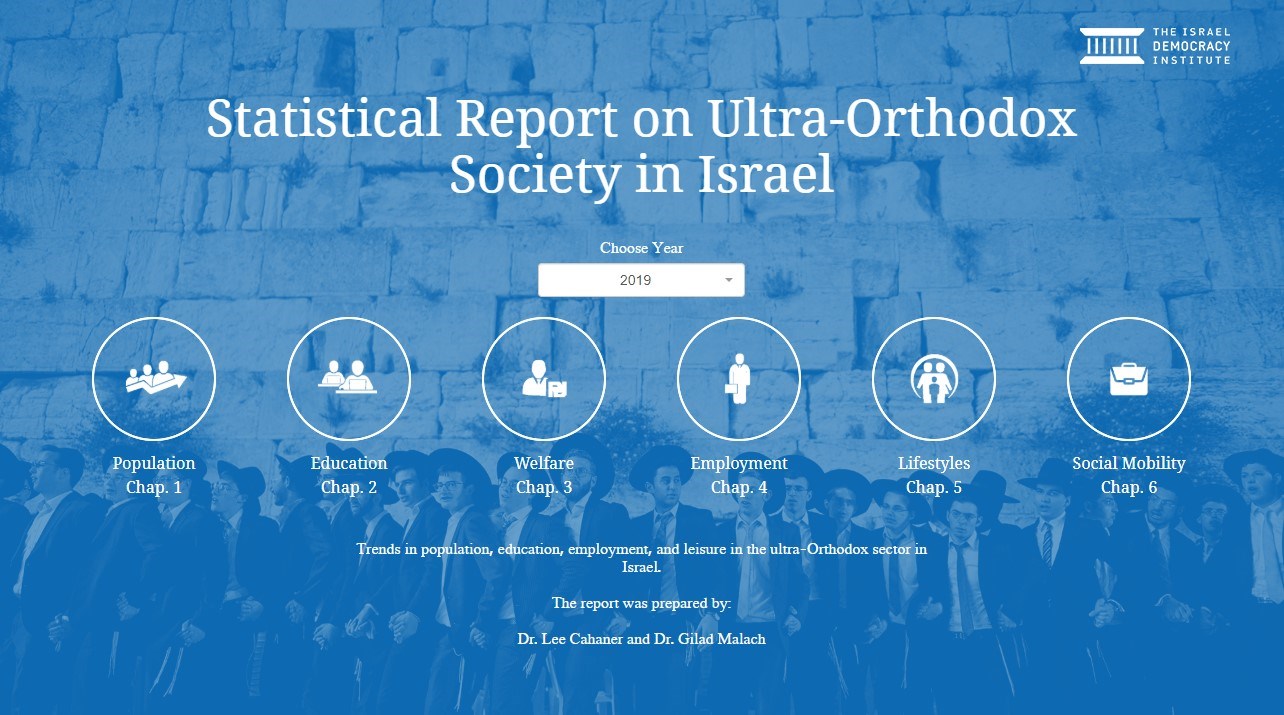
IDF or Civilian Service
Written By: Dr. Lee Cahaner, Dr. Gilad Malach
Third chapter of six of the 'Statistical Report on Ultra-Orthodox Society in Israel'

Employment
Written By: Dr. Lee Cahaner, Dr. Gilad Malach
Fourth chapter of six of the 'Statistical Report on Ultra-Orthodox Society in Israel'

Standard of Living
Written By: Dr. Lee Cahaner, Dr. Gilad Malach
Fifth chapter of six of the 'Statistical Report on Ultra-Orthodox Society in Israel'

Social Mobility
Written By: Dr. Lee Cahaner, Dr. Gilad Malach
Sixth chapter of six of the 'Statistical Report on Ultra-Orthodox Society in Israel'

Population
Written By: Dr. Lee Cahaner, Dr. Gilad Malach
First chapter of six of the 'Statistical Report on Ultra-Orthodox Society in Israel'

Education
Written By: Dr. Lee Cahaner, Dr. Gilad Malach
Second chapter of six of the 'Statistical Report on Ultra-Orthodox Society in Israel'
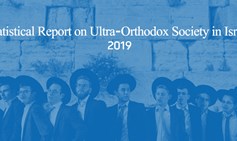
IDI Releases 2019 Statistical Report on Haredi Society in Israel
"More Yeshiva students" and "Haredi women are driving growth" - are just some of the highlights of the new report.

2019 Statistical Report on Ultra-Orthodox Society in Israel: Highlights
Written By: Dr. Gilad Malach, Dr. Lee Cahaner
The 2019 Statistical Report on Ultra-Orthodox Society in Israel provides both a snapshot of the ultra-Orthodox in Israel today and an analysis of trends characterizing this community in recent decades, in key areas such as demography, education, employment, and use of leisure time.
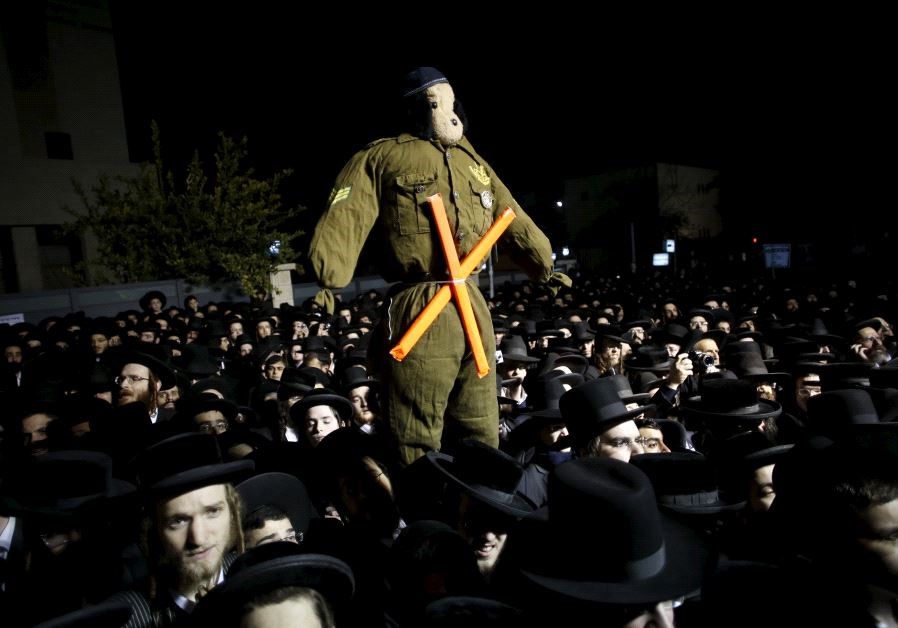
Ultra-Orthodox Service in the IDF: An Ongoing Struggle
Written By: Dr. Gilad Malach
The tension between the "military service for all" and "exemption for all" represents the tradeoff between the quest for equality and the existing political-social reality.
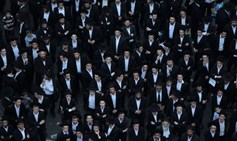
Misery Loves Company
Written By: Dr. Asaf Malchi
In light of their demographic growth, the ultra-Orthodox community in Israel have to attempt to become part of in the broader Israeli society.
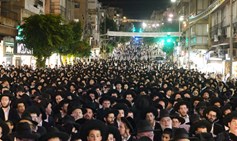
Perceptions on Citizenship among Ultra-Orthodox Israelis
Written By: Dr. Asaf Malchi
Despite the fact that the State of Israel and its central institutions are essentially secular and reflect a Zionist self-image, according to data from the 2016 Democracy Index only two-thirds (64%) of ultra-Orthodox Israelis report having a strong sense of belonging to the state.
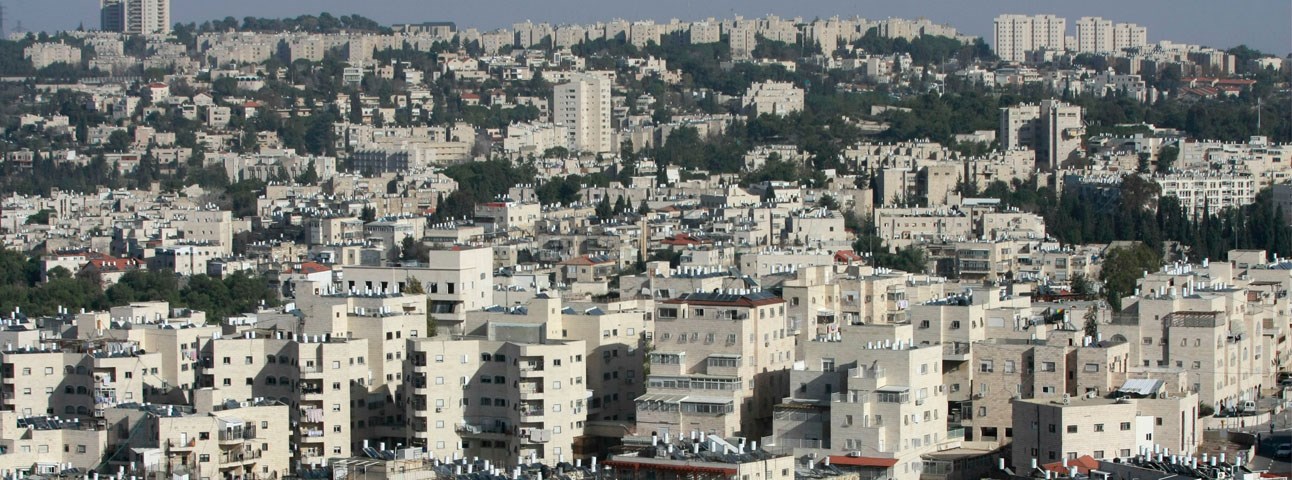
The Next Destination of Young Ultra-Orthodox Couples
Written By:
How do young ultra-Orthodox couples cope with the housing crisis? The most recent figures on home-buying point to a change of the trend in the ultra-Orthodox internal migration. This change poses a challenge, but also an opportunity. How should the state respond?

The Ultra-Orthodox Community on the Conservatism-Modernism Spectrum
Written By: Dr. Lee Cahaner
Israel’s ultra-Orthodox sector is less homogeneous than most assume.
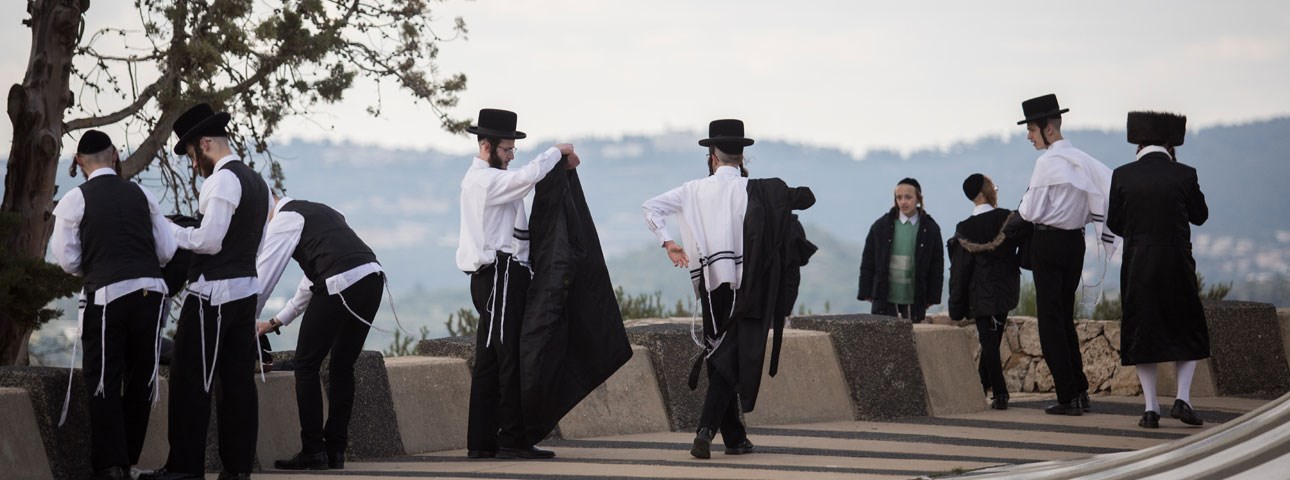
Ultra-Orthodox National Civic Service
Written By: Dr. Asaf Malchi
What is Wrong with the National Civic Service program for the Ultra-Orthodox and How to Reform It?
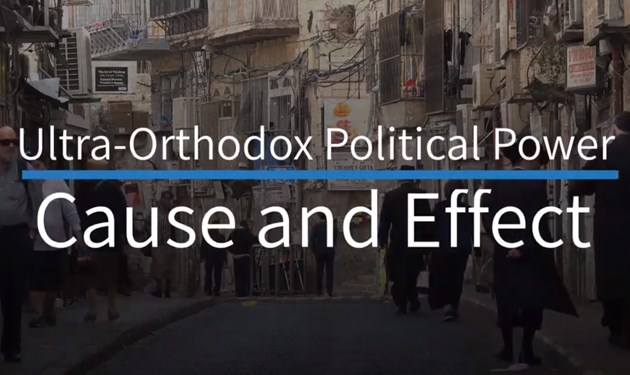
Are Ultra-Orthodox Parties Risking Losing the Allegiance of their Voters?
Written By: Dr. Gilad Malach
For many years the ultra-Orthodox were perceived as “captive voters” who would always comply with their rabbis’ instructions to cast their ballot for ultra-Orthodox parties. In today’s new reality such directives are no longer enough
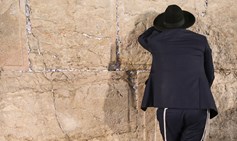
Integrating the Ultra-Orthodox
Written By: Dr. Gilad Malach
The current Knesset undermined policies that promote the integration that is key to ultra-Orthodox well-being; the next Knesset has the capacity to reverse the trend
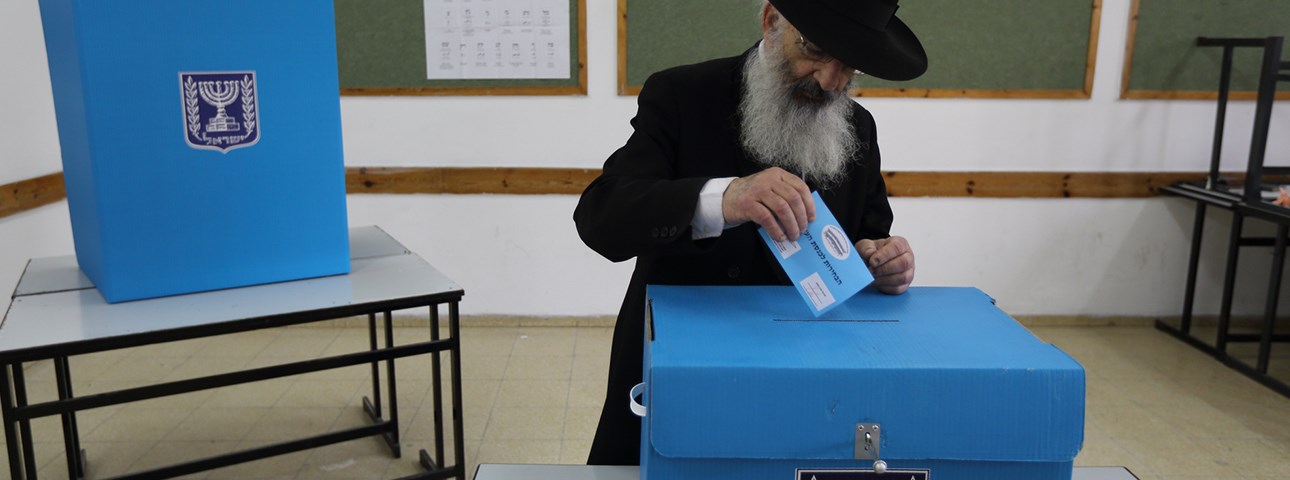
The Growing Power of the Independent Ultra-Orthodox Voter
Written By: Dr. Gilad Malach
In a conversation with Fathom Deputy Editor Calev Ben-Dor, Malach discusses the recent changes that have taken place in ultra-Orthodox society, voting trends within the ‘sector’, and how the onset of technology is affecting voting patterns
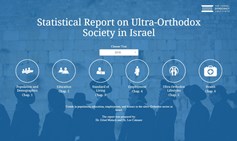
Population and Demographics
Written By: Dr. Gilad Malach, Dr. Lee Cahaner

Education
Written By: Dr. Gilad Malach, Dr. Lee Cahaner

Standard of Living
Written By: Dr. Gilad Malach, Dr. Lee Cahaner
The third out of six chapters of the Statistical Report on Ultra-Orthodox Society in Israel

Employment
Written By: Dr. Gilad Malach, Dr. Lee Cahaner
The fourth out of six chapters of the Statistical Report on Ultra-Orthodox Society in Israel

Ultra-Orthodox Lifestyles
Written By: Dr. Gilad Malach, Dr. Lee Cahaner
The fifth out of six chapters of the Statistical Report on Ultra-Orthodox Society in Israel

Health
Written By: Dr. Gilad Malach, Dr. Lee Cahaner

Ultra-Orthodox Political Parties in Israel—Past, Present, Future
Written By: Dr. Gilad Malach
What is the secret behind the power of the ultra-Orthodox political parties in Israel and how has it changed over the years? The article presents an overview of the development of the ultra-Orthodox political parties in Israel from the establishment of the State as well as insights as to future developments.
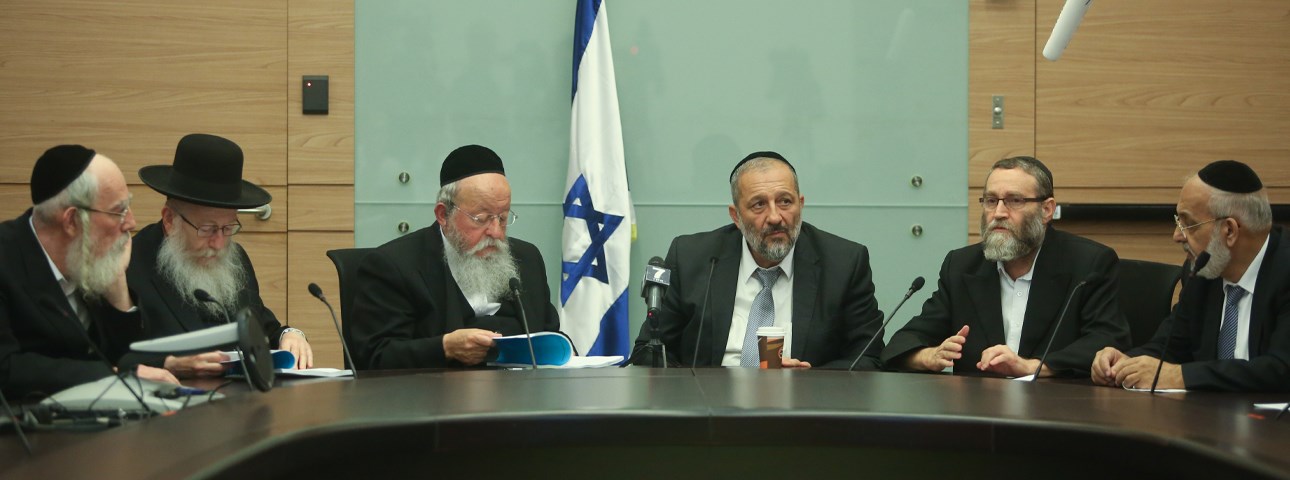
The Haredi Spring
Written By: Dr. Gilad Malach
As election season heats up, Tipping Point host Dr. Gilad Malach of the Israel Democracy Institute and Rabbi Yehoshua Pfeffer to understand how Haredi parties became kingmakers in Israeli politics, why recent polls show a decline in their power and whether there is a chance that Shas and United Torah Judaism will join forces in the current campaign.
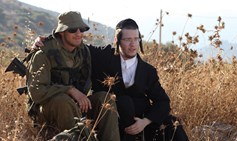
Climbing up the Socioeconomic Ladder: Military Service among the Ultra-Orthodox
Written By: Dr. Asaf Malchi
Even though military service seems to be one of the most blatant threats to the ultra-Orthodox lifestyle, it has become a rather attractive channel for broad segments of the community.

Citizenship and Military Service in Ultra-Orthodox Society
Written By: Dr. Asaf Malchi
More and more ultra-Orthodox (Haredi) Israelis are enlisting in the IDF, driven by personal, financial, and professional motives, with military service seen as an “entrance ticket” to Israeli society and to the labor market. But military service also introduces them to the shared components of identity and citizenship linking them to the state and its values, and enabling them to identify with others, from outside their community.

Modern-Ultra-Orthodox: Israel’s Haredi Community at a Crossroads
Written By: Dr. Gilad Malach
Dr. Gilad Malach, head of the ultra-Orthodox research program at the Israel Democracy Institute, discusses the findings of the 2018 statistical report on the ultra-Orthodox society in Israel
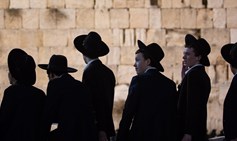
2018 Statistical Report on Ultra-Orthodox Society in Israel
Written By: Dr. Gilad Malach, Dr. Lee Cahaner
IDI’s 2018 report on ultra-Orthodox society is out - shedding light on changing trends in population, education, employment, and leisure in the ultra-Orthodox community in Israel.
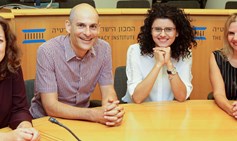
Meet the Next Generation of IDI Leaders
Written By: Rachel Cohen, Adv. Alona Vinograd, Dr. Nasreen Haddad Haj-Yahya, Daphna Aviram-Nitzan, Dr. Gilad Malach
Guaranteeing an independent Supreme Court. Integrating the Ultra-Orthodox into the IDF. Boosting participation of Arab women in the workforce. Improving the ease of doing business in Israel. These are some of the challenges facing IDI’s new cadre of program and center directors.
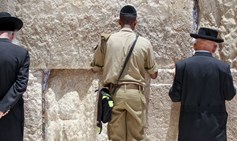
Debating the Draft – Public Opinion Survey
Written By: Dr. William Cubbison
Majority support for drafting young ultra-Orthodox into the army goes as far back as 1991. There have been small fluctuations, but consistently --at least 2/3 (65%) of the Israeli public has supported drafting yeshiva students or young ultra-Orthodox into the IDF.

Israel needs a draft law that will uphold the principle of civic equality
Written By: Yohanan Plesner
Now is the time to rise above petty politics and pass a draft law that will uphold the principle of civic equality in Israel.

Israel's wealthiest are abandoning IDF combat units
Written By: Dr. Asaf Malchi
Israel's secular elite has lost its enthusiasm for combat service and now targets intelligence units, such as Unit 8200.
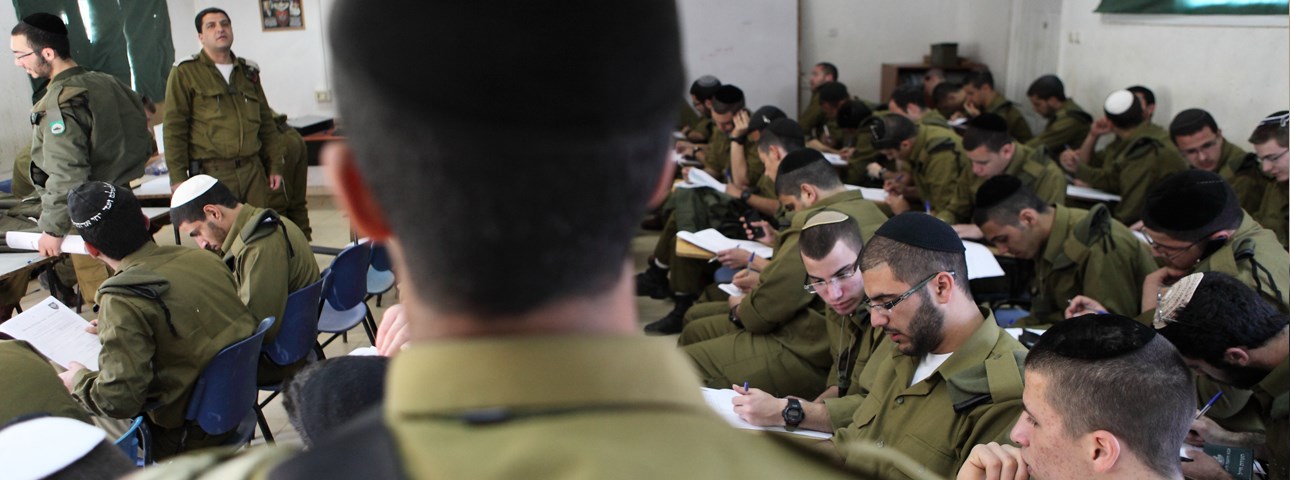
Proposal for Amending Ultra-Orthodox Conscription Plan
Written By: Yohanan Plesner , Prof. Amichai Cohen, Dr. Gilad Malach
IDI puts forth analysis of why the proposed conscription plan for the ultra-Orthodox is problematic and offers an alternative approach
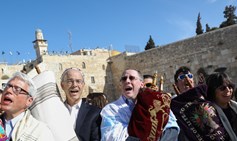
Calling on Our Leaders to Lead
Written By: Prof. Yedidia Z. Stern, Dr. Shuki Friedman
Leading public figures avoid dealing with issues that are of national importance when it entails confronting the ultra-Orthodox community.
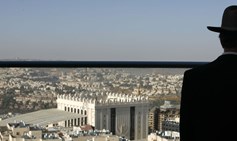
Israel’s Looming Ultra-Orthodox Housing Crisis
Written By: Dr. Lee Cahaner
The Minister of Finance has invested tremendous resources in meeting the needs of the Israeli middle class. However, even with these efforts, the minister has failed to address the ultra-Orthodox’s needs — a mistake that has contributed to an acute housing crisis for this sector of Israeli society.
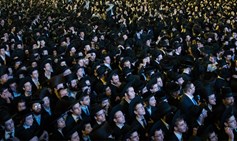
Proposed Draft Bill Puts the “People's Army” at Risk
Written By: Yohanan Plesner
Yohanan Plesner, President of the Israel Democracy Institute cautions that the Ministry of Defense’s proposed draft bill “endangers IDF’s model of service as a “People's Army” based on the principle of mandatory service for all
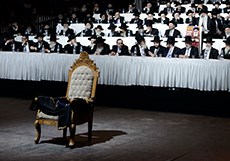
The End of the "Great Rabbis" (Gdolim) Era
Featuring two book launches: “Haredim A Guide to their Beliefs and Sectors” and “A Flock with No Shepherd: Shas Leadership the Day after Rabbi Ovadia Yosef”

Time To Counter Charedi Parties On Jewish Character Of Israel
Written By: Dr. Shuki Friedman
No matter when they take place, the upcoming elections will have a decisive impact on the identity of the state if decision-makers and the general public continue to follow the ultra-Orthodox lead
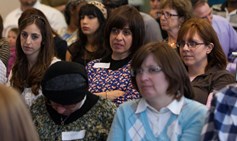
Integrating Women into Politics: Another Solution
Written By: Prof. Ofer Kenig, Dr. Chen Friedberg
The absolute exclusion of women from ultra-Orthodox parties keeps their specific interests from being addressed effectively in the public sphere.
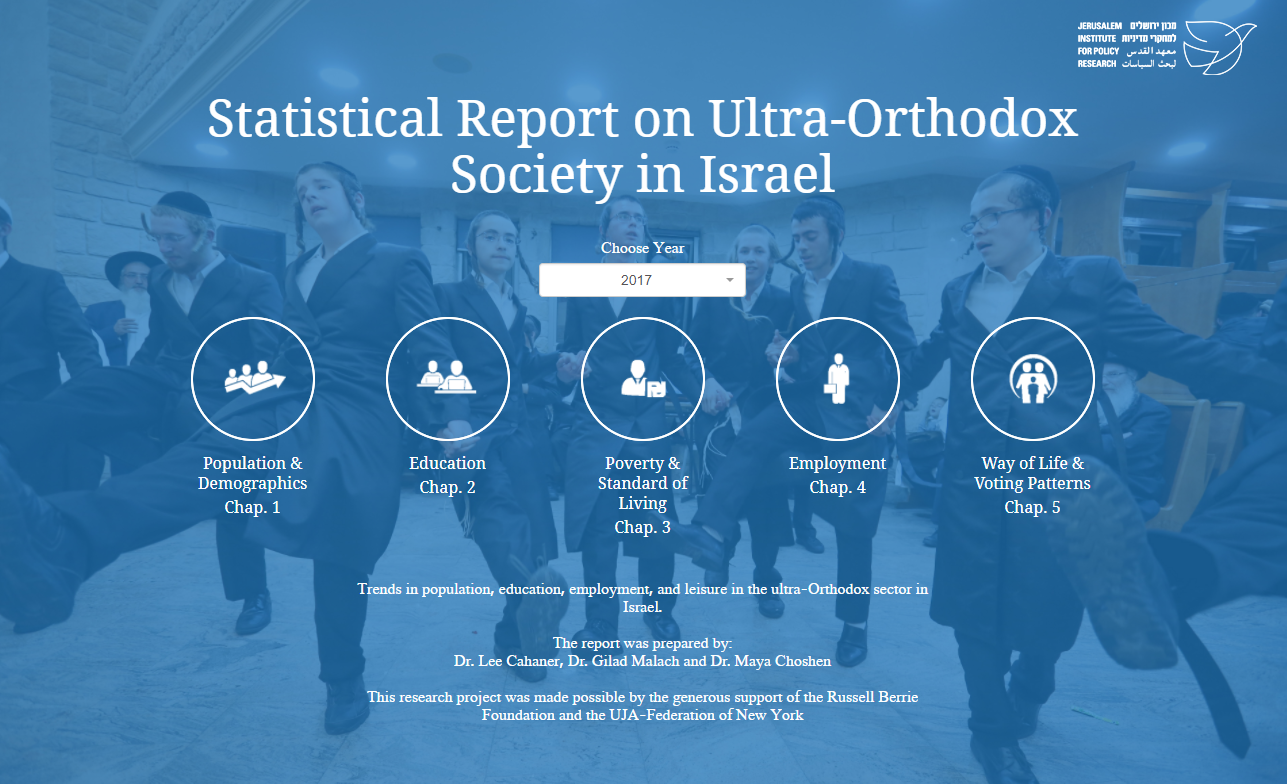
Population & Demographics
Written By: Dr. Lee Cahaner, Dr. Gilad Malach, Dr. Maya Choshen
The first out of five chapters of the Statistical Report on Ultra-Orthodox Society in Israel

Education
Written By: Dr. Lee Cahaner, Dr. Gilad Malach, Dr. Maya Choshen
The second out of five chapters of the Statistical Report on Ultra-Orthodox Society in Israel

Poverty & Standard of Living
Written By: Dr. Lee Cahaner, Dr. Gilad Malach, Dr. Maya Choshen
The third out of five chapters of the Statistical Report on Ultra-Orthodox Society in Israel
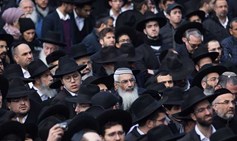
Who’s Afraid of Ultra-Orthodox Israelis?
Written By: Dr. Gilad Malach
Ultra-Orthodox society is moving toward a more Israeli, more modern future, while also maintaining its unique characteristics.
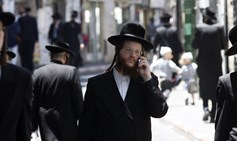
A Decline in the Number of Ultra-Orthodox Men in the Workforce
Written By: Dr. Gilad Malach
For the first time since 2013- a decline in the number of ultra-Orthodox men in the workforce

Ultra-Orthodox and Affirmative Action: Justice and not Charity
Written By: Dr. Asaf Malchi
For the ultra-Orthodox sector and for us as a society, justice is not charity.
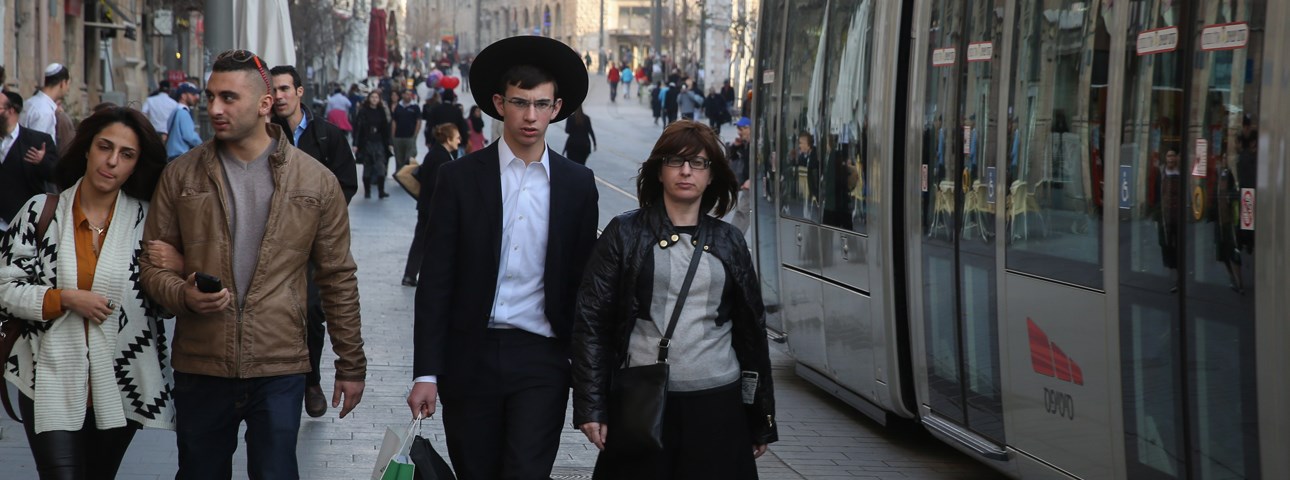
Who are the ultra-Orthodox?
Written By: Prof. Yedidia Z. Stern
Stereotypes—both positive and negative—are an obstacle to the development of a genuine partnership between the ultra-Orthodox and the rest of Israeli society. The Haredim are Israel's biggest sociological mystery. We must learn the facts rather than engaging in speculation.
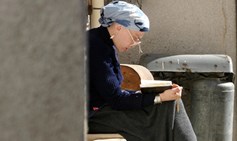
Haredi women lead change
Written By: Dr. Lee Cahaner
Are women leading the change in ultra-Orthodox society or are they preserving their unique way of life? Learn more about the tension between the possibilities that the modern world offers ultra-Orthodox women and the many complex challenges facing them.
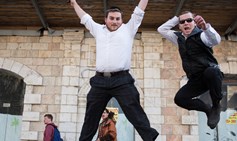
5 Things You Must Know About the ultra-Orthodox Community in Israel
How many ultra-Orthodox live in Israel today? How many will watch this clip on the internet? How are ultra-Orthodox women transforming their community? How many are employed? What age to they get married?
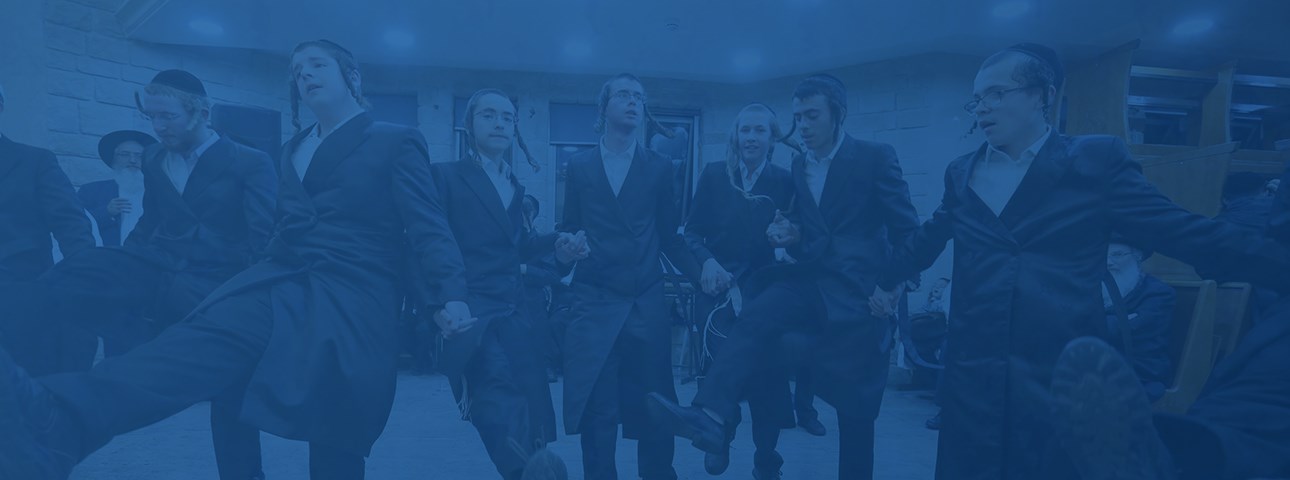
Statistical Report on Ultra-Orthodox Society in Israel
Written By: Dr. Lee Cahaner, Dr. Gilad Malach, Dr. Maya Choshen
Israel Democracy Institute and the Jerusalem Institute for Policy Research published today the 2017 Statistical Report on Ultra-Orthodox Society in Israel. The report presents trends in population, education, employment, and leisure in the ultra-Orthodox sector in Israel.
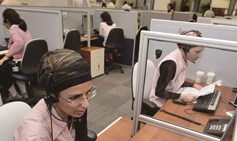
Charedi Women Increasingly Having It All
Written By: Michele Chabin | The New York Jewish Week
Growing numbers of ultra-Orthodox women postponing marriage to pursue a career path, new study finds.

The Ultra-Orthodox Community's New Trend: From Isolationism to Involvement
Written By: Dr. Lee Cahaner
In 2017, we have to ask: Who is ultra-Orthodox? What are the boundaries of ultra-Orthodox society? What are the boundaries of ultra-Orthodox identity within the Israeli sphere?
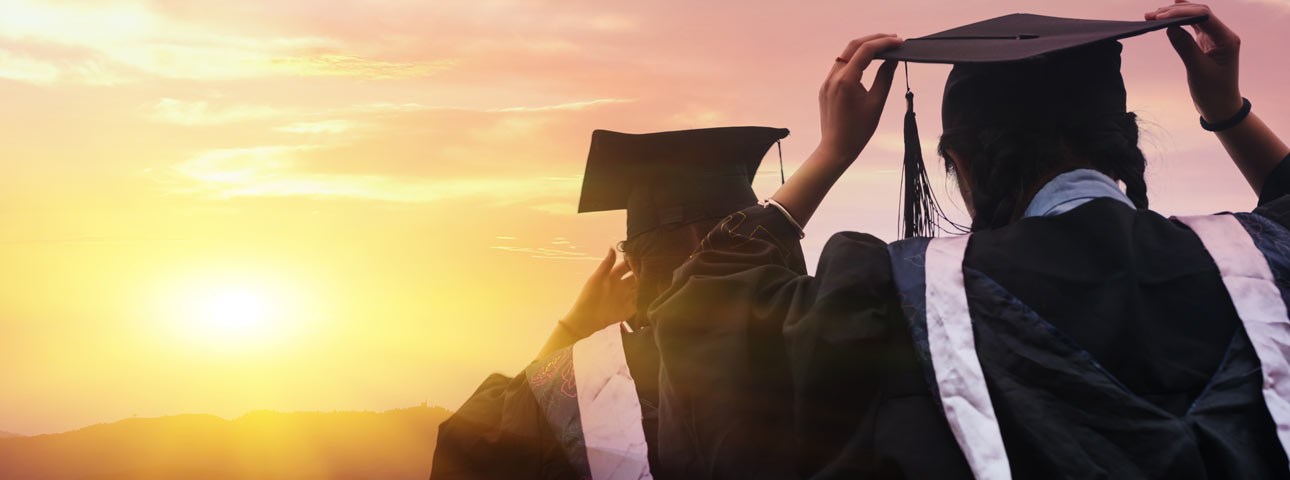
IDI Scholars: 'Gender-Separate Classrooms Could Enable More Ultra-Orthodox Students to Attain Higher Education Degrees'
In the coming weeks, members of the Council of Higher Education will vote on expanding gender-separated classrooms for ultra-Orthodox on academic campuses.
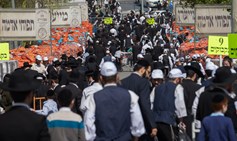
IDI's Malach: 'Kahlon Net Family Plan Could Give a Boost to Haredi Middle Class, Too'
Finance Minister Moshe Kahlon’s Net Family Plan could give a boost to the haredi middle class, which has been developing over the last several years, by increasing the incentive for haredim to seek a higher education and for both parents to work.
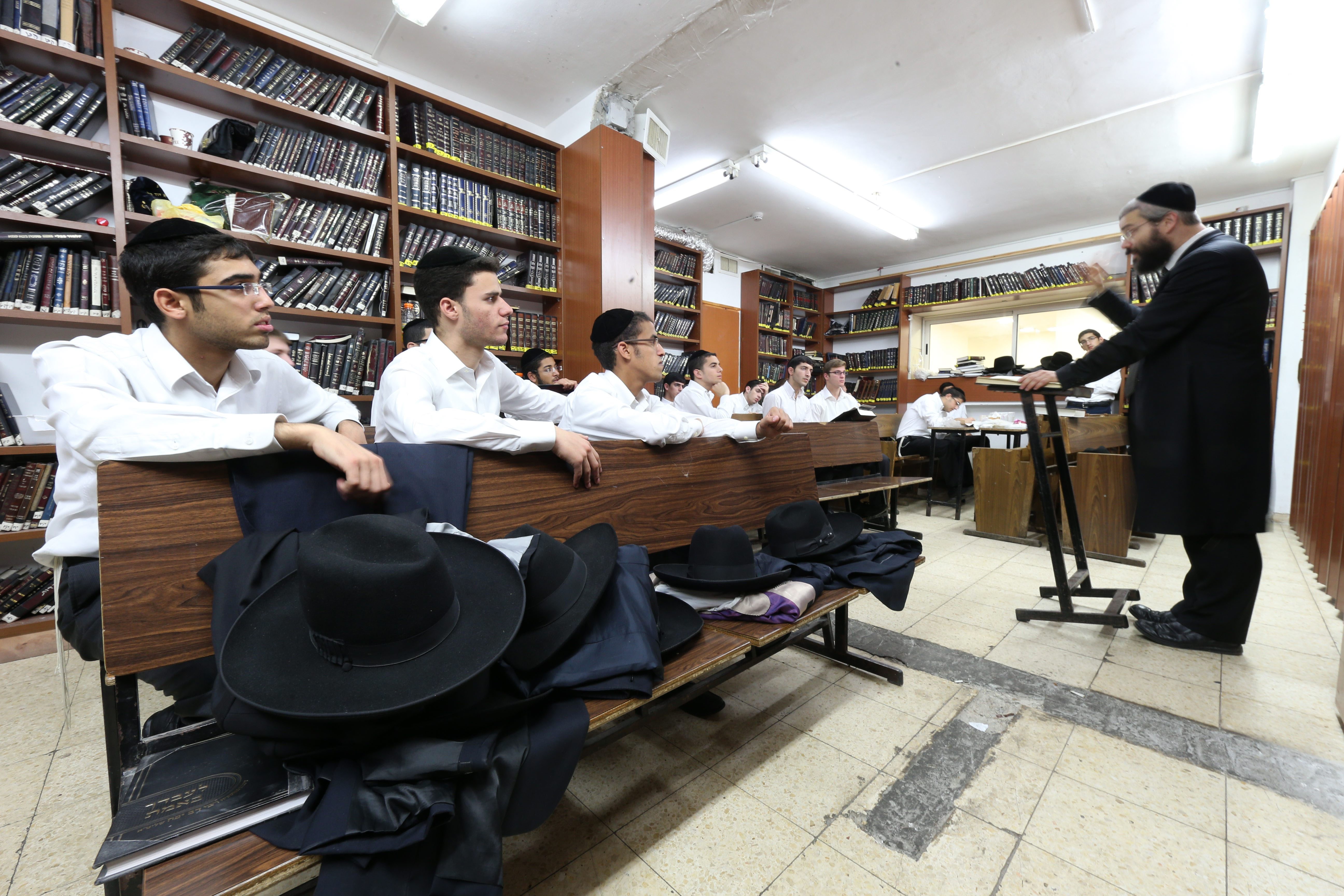
Israel's Next Economic Miracle?
Written By: Dr. Gilad Malach, Dr. Nasreen Haddad Haj-Yahya
Haredim and Arabs must be integrated into society and economy to take the start-up nation to the next level.
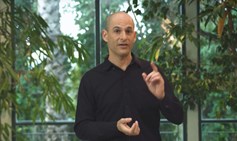
Who are Israel's Haredim?
Written By: Dr. Gilad Malach
New statistics shed light on a population that was once hidden behind "walls of holiness." Today, those walls are beginning to break.
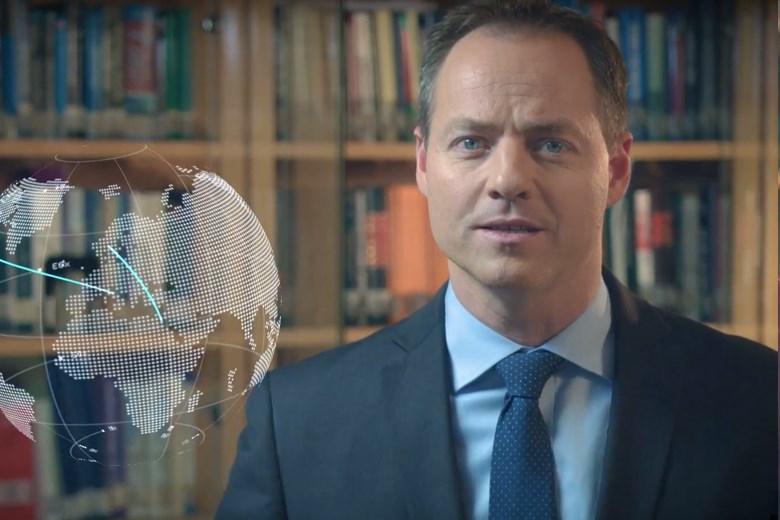
Ensuring a Vibrant Democracy
Written By: Yohanan Plesner

IDI Scholars Call on Government to Implement Kotel Compromise
“The Kotel compromise presents a proper balance between the will and desire of Orthodox individuals - who are the majority of those praying at the Western Wall -- to continue praying in the main plaza as they always have, and the will and desire of other Jewish groups that want to pray in the vicinity of the Kotel according to their faith."

Employment
Written By: Dr. Lee Cahaner, Dr. Gilad Malach, Dr. Maya Choshen
The fourth out of five chapters of the Statistical Report on Ultra-Orthodox Society in Israel

A New Approach To Dealing With Israel’s Ultra-Orthodox
Written By: Prof. Yedidia Z. Stern
Israel needs to abandon the vindictive approach of trying to reform ultra-Orthodox society through force and budget cuts, and rather start investing heavily in education and job creation in the ultra-Orthodox sector. This op-ed was first published in the New York Jewish Week.
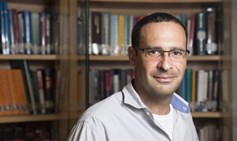
A Holy War Over Israel's Character
Written By: Dr. Shuki Friedman
The inflammatory statements made about Reform Judaism at the recent First Zion and Jerusalem Conference are not merely old rhetoric, but rather a national ultra-Orthodox (Hardal) declaration of a holy war against the spread of pluralistic Judaism in Israel.
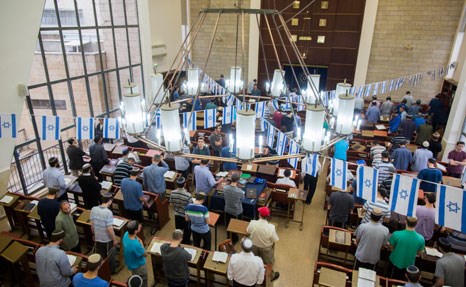
Israel's Battle for Peace Between Religion and State
Written By: Yair Sheleg
The relationship between religion and state in Israel is stormy. Lately, it seems the ultra-Orthodox have launched a new offensive on several fronts. This op-ed was originally published by JNS.org.
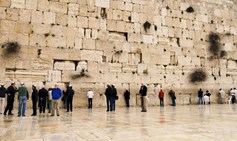
Time to Allow Everyone to Worship at the Foot of the Temple Mount as they Wish
Written By: Prof. Yedidia Z. Stern
No aspect of the current Western Wall plaza arrangement, in which the Orthodox maintain a monopoly, will change if other denominations are allowed to pray at the foot of the Temple Mount in a new plaza. This article was first published by The Jerusalem Post.
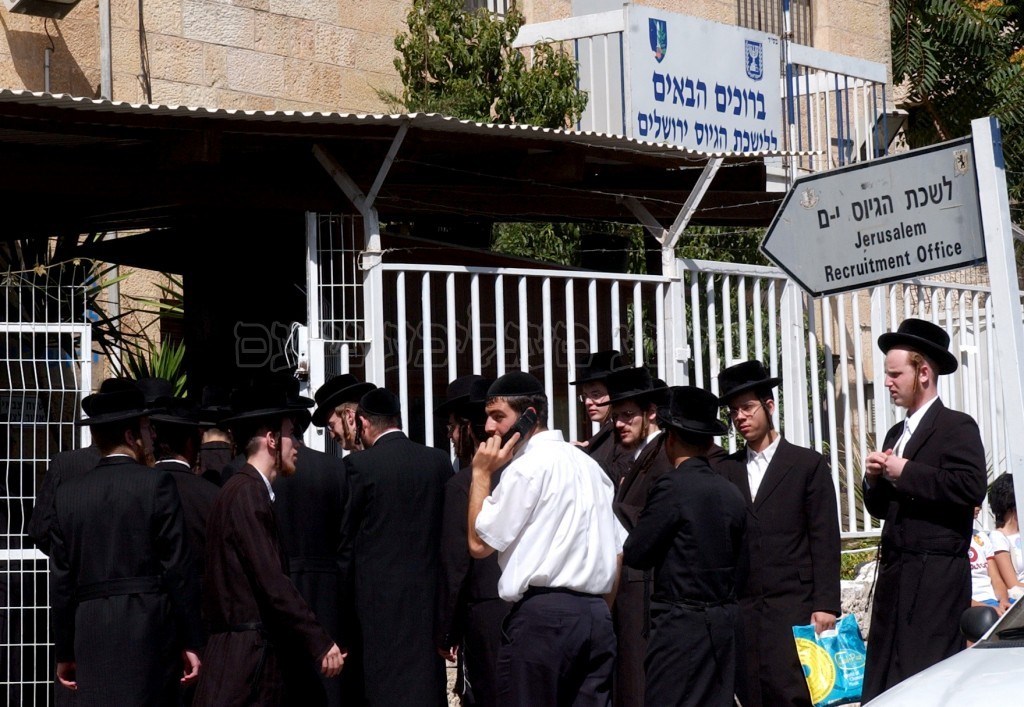
The Charedi Draft: Here We Go Again
Written By: Prof. Yedidia Z. Stern
The desired result could have been achieved quietly and efficiently had the Knesset adopted a rational arrangement that would encourage military service through positive and negative economic incentives. (This article was originally published in the Jewish Journal of LA.)
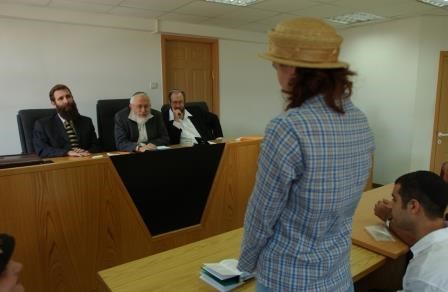
The End of the Chief Rabbinate?
Written By: Dr. Shuki Friedman
According to Dr. Shuki Friedman, the rabbinate's failure to provide adequate religious services caused the current trend towards privatization of religious services, which is creating a de-facto separation between religion and the state.
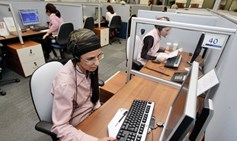
The Challenges of Promoting Employment in the Ultra-Orthodox Community
Written By: Dr. Gilad Malach
Dr. Gilad Malach, who heads IDI's research program on the ultra-Orthodox community in Israel, discusses the barriers that weigh down attempts to increase the employment rate in the Haredi community and suggests possible solutions.
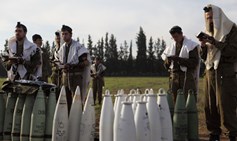
The Haredi Draft: Snakes and Ladders
Written By: Prof. Yedidia Z. Stern
Prof. Yedidia Stern analyzes the problems with past proposals to integrate the ultra-Orthodox sector into the IDF, and proposes a new solution.

The Elephant in the Room: Relations between Religion and State in Israel
Written By: Prof. Yedidia Z. Stern
Prof. Yedidia Stern urges Israel's leaders to stop tiptoeing around the core issues of religion and state in the Knesset election campaign, and to take a clear position on the matter.
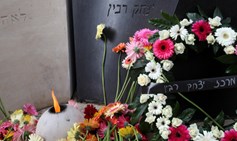
Confronting the Rabin Assassination
Written By: Prof. Mordechai Kremnitzer
Nineteen years after the murder of Prime Minister Yitzhak Rabin, IDI Vice President Prof. Mordechai Kremnitzer explores the background, meaning, and ramifications of this event, taking a hard look at some of the dangers he sees in Israeli society today.
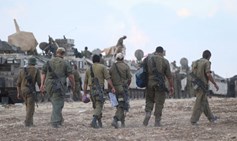
Is There a Place for God in the Israeli Army?
Written By: Prof. Yedidia Z. Stern
In an article in the <em>Jewish Week</em>, IDI Vice President Yedidia Stern discusses the question of whether it is appropriate for commanders to use religious rhetoric in motivating their soldiers, and stresses the need for the Israeli army to represent all.
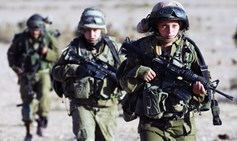
The IDF’s Fighting Ethos in the Wake of Operation Protective Edge
Written By: Yohanan Plesner
IDI President Yohanan Plesner stresses the need to ensure that the Israel Defense Forces remains at the heart of the Zionist consensus so as to enable it to continue to be the army of all citizens of Israel.

Shmita: Rest, Share, Release
Written By: Prof. Yedidia Z. Stern
An exploration of the existential, social, and economic dimensions of the Shmita year, that calls for bringing together social, moral, cultural, religious and national forces to implement the idea of Shmita in non-agricultural and national contexts in Israel.
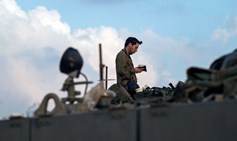
The IDF: Army of the People or Army of God?
Written By: Prof. Mordechai Kremnitzer
IDI Vice President Prof. Mordechai Kremnitzer addresses the question of the appropriateness of the letter that Givati Brigade commander Col.Ofer Winter sent to his subordinate officers as Israel prepared for the ground incursion in Gaza in the summer of 2014.
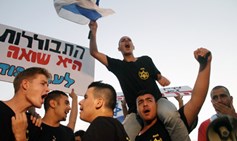
On Intermarriage, Judaism, and Democracy in Israel
Written By: Benjamin (Benny) Lau
Rabbi Dr. Benjamin Lau shares thoughts on the tension between Judaism and democracy, in response to the public protests against the marriage of a Jewish woman who converted to Islam and an Israeli Arab.
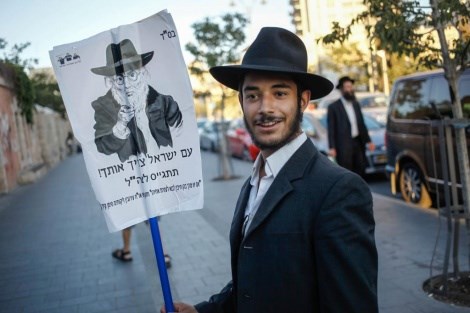
Ultra-Orthodox Integration: It Takes Two to Tango
Written By: Haim Zicherman
In an op-ed in Ynet News, IDI researcher Dr. Haim Zicherman discusses the steps that Israeli society must take in order to enable ultra-Orthodox men to integrate into the Israeli army and workforce.

Israeli Views of Diaspora Jewry 2014
Written By: Mr. Chanan Cohen, Ella Heller, Prof. Tamar Hermann
How do Jews in Israel see their connection with Jews in the Diaspora? In preparation for the first <a href="http://jms.org.il" target="_blank">Jewish Media Summit</a> (JMS), IDI's Guttman Center for Surveys conducted a survey of the attitudes of Israeli Jews toward Diaspora Jewry.
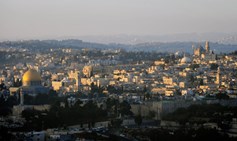
A Royal Sanctuary: Three Scenes for Jerusalem Day
Rabbi Dr. Benjamin (Benny) Lau presents three snapshots from different times and places, reflecting on a city that combines ancient and modern, sacred and secular, eternal truths and ordinary life.

Public Opinion: Is Israel Independence Day a Holiday?
Written By: Mr. Chanan Cohen
Do Jewish and Arab citizens of Israel see Yom Ha'atzmaut as a holiday? Do perceptions among Jews vary depending upon level of religiosity or position on the right-left political spectrum? Find out in this Mini-Survey from IDI's Guttman Center.
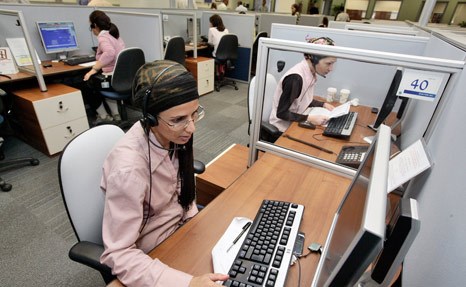
Integrating the Ultra-Orthodox
Written By: Andrew Friedman
To facilitate the entry of haredim into academia and the workforce, the state and private industry have invested hundreds of millions of shekels in recent years to create ultra-Orthodox frameworks to support individuals who are looking for academic education and employment while also remaining loyal to their cultural mores. As a result, nearly 80 percent of ultra-Orthodox women are now employed, on par with secular Jewish Israeli women.
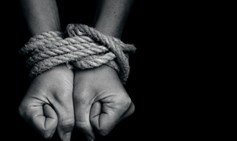
Who is Responsible for Finding a Solution to the Plight of Mesoravot Get?
Written By: Prof. Shahar Lifshitz
Prof. Shahar Lifshitz outlines what halakhic authorities and the Knesset can do in order to resolve the issue of get refusal, as discussed at the Second Agunah Summit.
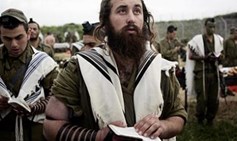
The IDF and the Ultra-Orthodox
Written By: Haim Zicherman
As the Knesset prepares to vote on the "Draft Law" designed to regulate the service of ultra-Orthodox men in the Israel Defense Forces, Dr. Haim Zicherman surveys the current situation within Israel's Haredi community.
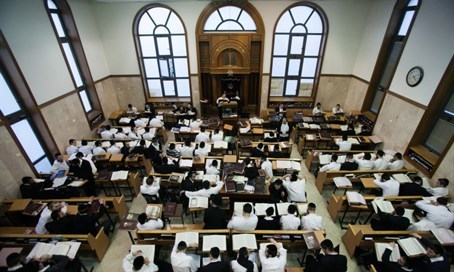
An Unequal Share of the Burden? The Truth about the Hesder Yeshivot
Written By: Prof. Benjamin Porat
Do students in the religious Zionist hesder yeshivot really contribute less to the IDF than other men who serve? IDI Researcher Dr. Benny Porat does the math and comes to an interesting conclusion.
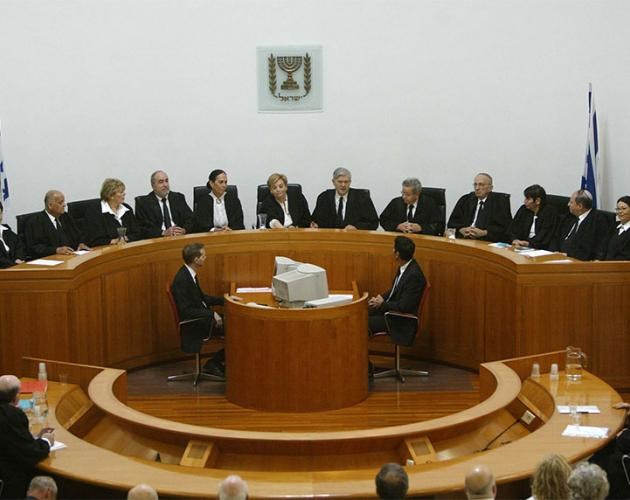
The Haredi Draft: Is the Shaked Committee's Bill Destined to be Overturned?
Written By: Prof. Yedidia Z. Stern
As the Shaked Committee begins to vote on its proposal for the Haredi draft, Prof. Yedidia Z. Stern warns that the proposal's recommendation to exempt Haredi men of draft age during a three-year "adjustment period" is both inequitable and ineffective.
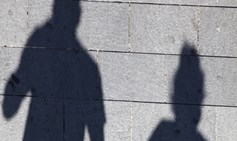
The Fate of a Mamzer
Written By: Gitit Paz
In an article in The Jewish Week, Gitit Paz, a young scholar in IDI's Human Rights and Judaism project, discusses the status of mamzer in Jewish law and in contemporary Israel.
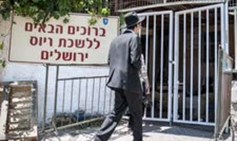
The Haredi Draft: Equality Now?!
Written By: Prof. Yedidia Z. Stern
On November 21 2013, Prof. Yedidia Z. Stern appeared before the Shaked Committee and argued that criminal sanctions are not recommended for reaching conscription goals. In an op-ed in Makor Rishon, he explains why.

On the Need for Civil Unions in Israel
Written By: Benjamin (Benny) Lau
Rabbi Dr. Benjamin (Benny) Lau expresses support for the proposed civil union bill, which would allow couples who do not want to marry in a religious service to form a legally recognized union and be eligible for the benefits and responsibilities associated with marriage.

Sir Isaac Newton and the New Haredim
Written By: Prof. Yedidia Z. Stern
Prof. Yedidia Stern shares thoughts on the connection between failure of the ultra-Orthodox "Tov" party in the local elections, the Haredi draft bill being debated by the Shaked Committee, and Newton's laws of motion.
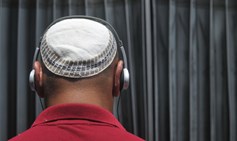
No to the Separation of Religion and State in Israel
Written By: Yair Sheleg
Should the American model of separation of church and state be applied to Israel? In an article in <em>The Jewish Week</em>, IDI's Yair Sheleg argues that Israel needs a unique model.
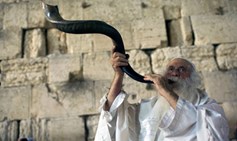
Standing before God: Reflections on Yom Kippur
Written By: Yair Sheleg
Why is Yom Kippur the most significant day on the Jewish calendar? What explains its appeal even to people who define themselves as "secular"? IDI research fellow Yair Sheleg shares his thoughts on this matter.
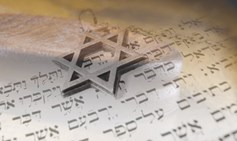
Life Under Two Suns: When Human Rights and Jewish Values Collide
Written By: Prof. Yedidia Z. Stern, Jay Ruderman
The first in a series of articles by researchers from IDI's Judaism and democracy projects and Human Rights and Judaism project on the complementary but tense relations between Judaism and democratic values.
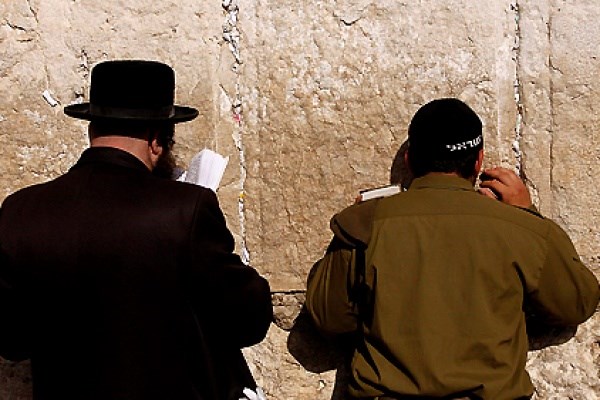
How Can We Draft the Ultra-Orthodox with Consent?
Written By: Prof. Yedidia Z. Stern
Is it possible to draft the ultra-Orthodox and integrate them into Israel's society and economy in a mutually-agreeable manner that encourages solidarity between the different sectors of the Jewish people? Prof. Yedidia Z. Stern shares thoughts on wars between brothers and brothers-in-arms.
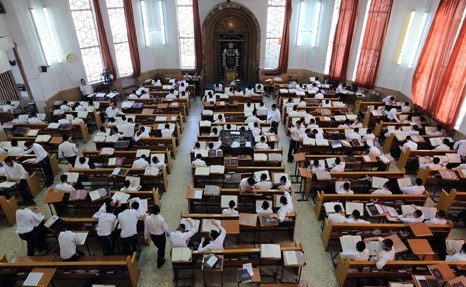
The Ultra-Orthodox Draft: Crossing the Third Rubicon
Written By: Prof. Yedidia Z. Stern, Haim Zicherman
Prof. Yedidia Z. Stern and Attorney Haim Zicherman stress the need to break down barriers that are preventing Haredi service in the army and integration in the labor force, and warn against passing a popular but ill-advised reform.

Haredi Integration: Not by Re-Education
Written By: Haim Zicherman
IDI researcher Attorney Haim Zicherman warns against attempts to integrate ultra-Orthodox Jews into the army by encouraging them to abandon their lifestyle, and calls for developing mechanisms that will accept and respect their values.
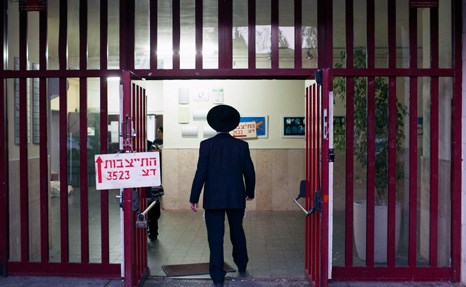
The Proposals for Drafting the Ultra-Orthodox in Israel: The Issues at Hand
Written By: Prof. Mordechai Kremnitzer
IDI's Prof. Mordechai Kremnitzer critiques various aspects of the proposals for integrating the ultra-Orthodox into the army and calls on the Israeli public to stand firm on its demand for an arrangement that is fair and equitable.

The Haredi Draft: The Need for an Alliance of the Moderates
Written By: Prof. Yedidia Z. Stern
Prof. Yedidia Stern calls for a historic alliance between religious and secular moderates that will yield a solution that will that will yield a solution that addresses the need for ultra-Orthodox army service while taking into account the most important values of the Haredi community.

The Need for Equal Sharing of the Burden and Strengthening of Torah Study
Written By: Prof. Benjamin Porat
The need for the ultra-Orthodox community in Israel to share the burden of military service and participate equally in the Israeli economy was a central issue in the 2013 elections. IDI researcher Dr. Benny Porat shares his thoughts on how to bring about this change in the Haredi community.
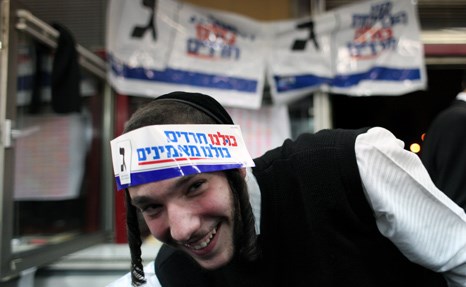
The Comeback of Polarization
Written By: Prof. Benjamin Brown
IDI researcher Dr. Benjamin Brown discusses the sense of attack experienced by the Haredi community in the 2013 election campaign and calls for a process of gradual change in integrating the ultra-Orthodox in the Israeli army and workforce.
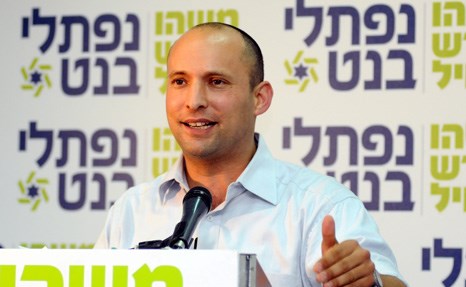
Habayit Hayehudi and Refusal of Orders: The Real Question
Written By: Prof. Yedidia Z. Stern
Naftali Bennett's statement that he would refuse orders if commanded to evacuate settlements raises questions about the type of insubordination that he and his party condone. In an op-ed in Yedioth Ahronoth, Prof. Yedidia Stern calls on Habayit Hayehudi to clarify its position on the matter.

Israeli Public Opinion on Drafting Haredi Yeshiva Students
Written By: Dror Walter, Chanan Cohen
An analysis of Israeli public opinion on the issue of drafting ultra-Orthodox yeshiva students, as revealed in polls conducted by IDI's Guttman Center for Surveys from 1986 through 2009.

The Haredim and the State of Israel
Written By: Prof. Yedidia Z. Stern, Jay Ruderman
In an op-ed in The Jerusalem Post, IDI's Prof. Yedidia Stern, who served on the Plesner Committee for Equality in National Service, and Mr. Jay Ruderman analyze the Haredi community's reluctance to serve in the Israeli army and present an approach that will facilitate Haredi integration into Israel's army and society.
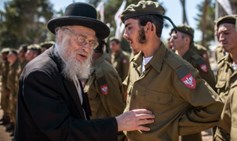
Do Not Put an End to Ultra-Orthodox Army Service
Written By: Haim Zicherman
Following the dissolution of the Committee to Advance Equality in Sharing the Burden, committee head MK Yohanan Plesner submitted proposals for alternatives to the Tal Law. In this article, IDI Researcher Attorney Haim Zicherman, who served as the content coordinator of the Plesner Committee, warns that some of those measures were personal recommendations rather than recommendations of the Committee, and may reverse trends of increasing army service by ultra-Orthodox Jews.

If They Give, They Will Receive
Written By: Yair Sheleg
In this response to the Supreme Court ruling on the Tal Law, IDI Senior Researcher Yair Sheleg asserts that the exemption of ultra-Orthodox men from military service is an unparalleled <em>Hillul Hashem</em>—a desecration of the Name of God, and shares his views of a possible solution.

Make the Ultra-Orthodox Serve
Written By: Yair Sheleg
IDI Vice President of Research Prof. Yedidia Stern sets the controversy over mass transportation on Shabbat and holidays in Israel in a broader context, and distinguished between the need for an Israeli-Jewish Shabbat (Sabbath) rather than a religious Shabbat.

A Tragedy of Errors
Written By: Prof. Yedidia Z. Stern
In an op-ed originally published in Haaretz on June 18, 2010, IDI Vice President Prof. Yedidia Z. Stern responds to the dramatic events in the city of Immanuel, warns secular society about the growing demonization of the Haredi community, and urges the Haredi community to have greater faith in the courts—the ultimate protectors of the rights of minorities.

The Missed Opportunity of the Century: The Haredi Exemption Law
Written By: Yohanan Plesner
The government and the coalition have been given a second chance – which has come at a heavy price of blood and suffering – to turn this crisis into an opportunity and set the foundations for a new social covenant among Israelis.
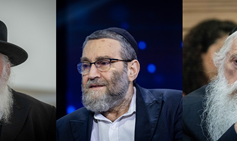
Giving up on the Core Curriculum? Just Wait for the Big Bang!
Written By: Eliyahu Berkovits
The demographic explosion of the ultra-Orthodox sector will no doubt lead the two partners in United Torah Judaism to divorce. When that happens, the minorities including the “New Haredim,” will wield greater power and demand that their children have a future in the working world.
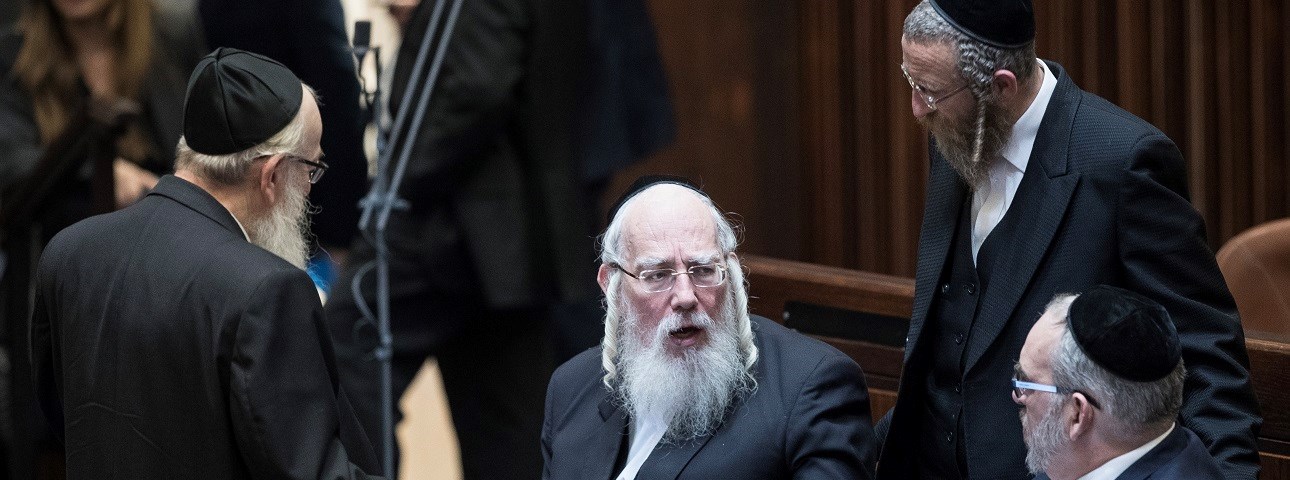
The War that Never Was
Written By: Eliyahu Berkovits
Notwithstanding the drama related to the question of whether the ultra-Orthodox Ashkenazi parties will continue to run together in the current election, there are voices within these communities that might render this arrangement unacceptable in the near future.

Where are Haredim Headed? Towards Isolation or Integration?
Written By: Dr. Gilad Malach
125 years ago, Herzl failed to convince ultra-Orthodox leadership to join the Zionist movement, and while their leadership did sign the Declaration of Independence in 1948, they Haredim remained in their “enclave” communities. Now, if modern-day Israel is to continue to thrive, integration of the ultra-Orthodox is crucial

Israel’s Lost Youth: Manifest and Latent School Dropout
Written By: Dr. Asaf Malchi
The COVID-19 pandemic has significantly increased school dropout rates due to its exacerbation of the already emotional, social, and academic crises affecting multiple age and population groups.
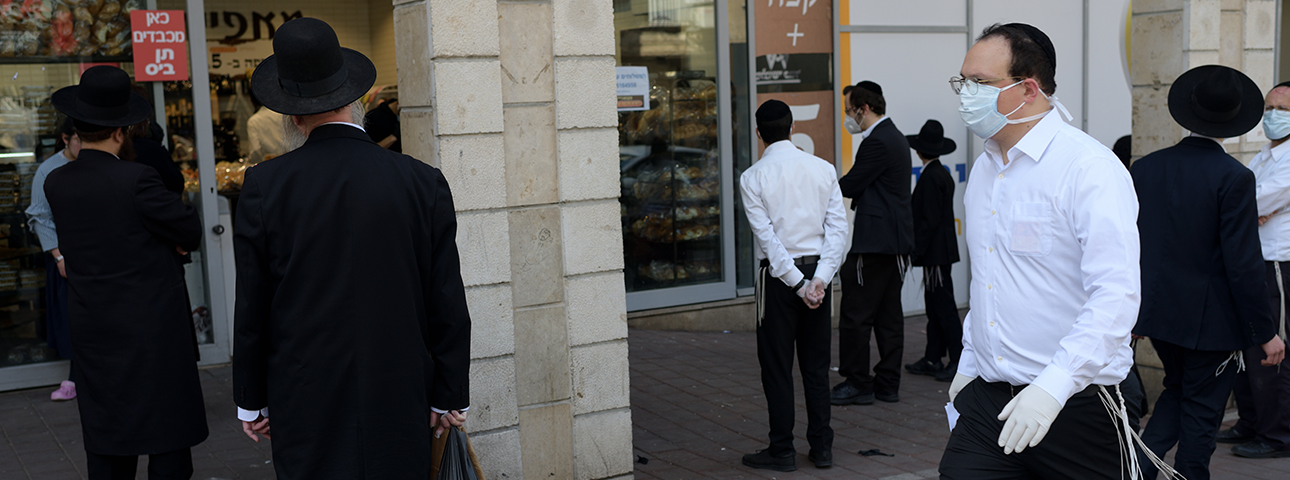
The Financial Situation of Ultra-Orthodox Households Before and After the COVID-19 Crisis
Written By: Amit Leventhal, Gabriel Gordon, Dr. Gilad Malach
What are the ramifications of recent developments, and especially of the COVID-19 pandemic, for the economic resilience of ultra-Orthodox households in Israel?
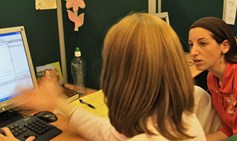
Employment of Ultra-Orthodox Women—the Next Revolution?
Written By: Dr. Gilad Malach
An increasing number of young Ultra-Orthodox women are choosing not to go down the traditional path of studies preparing them for a teaching career. Instead, they are enrolling in academic institutions to study subjects that will help them embark on a professional career and hopefully be reflected in their income.

Little Support for Equal Division of Domestic Tasks Among Ultra-Orthodox Men
2020 report finds that Ultra-Orthodox men do not support an egalitarian division of domestic tasks. Only one-third of ultra-Orthodox Israelis believe that paid employment is the best way for women to achieve independence.
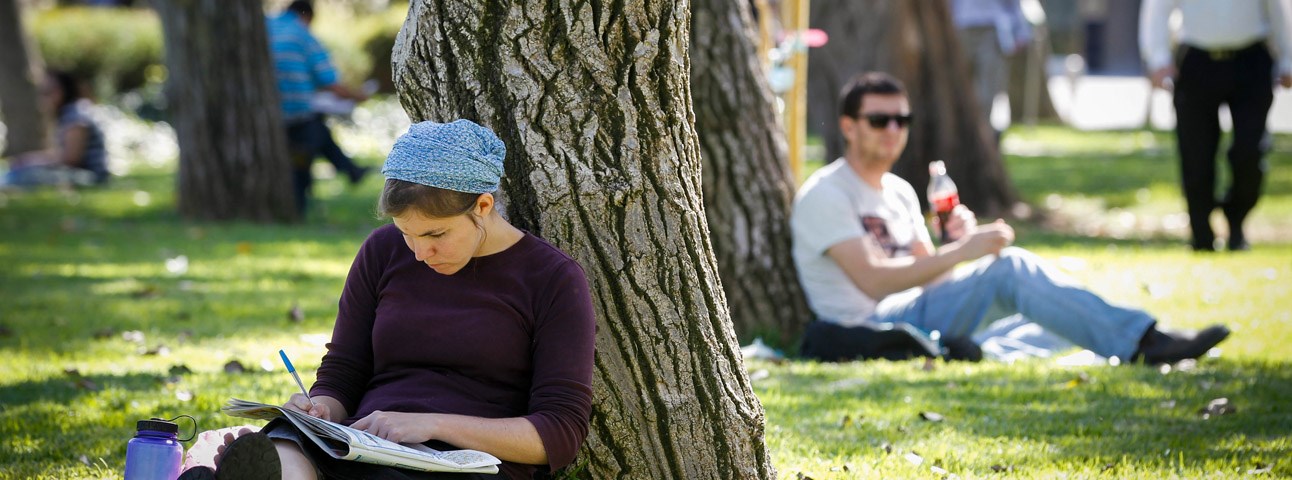
38% Increase in the Number of Ultra-Orthodox Students in Technological Training Tracks
The 2020 Statistical Report on Ultra-Orthodox Society in Israel found that over the last five years there has been a 38% increase in the number of ultra-Orthodox students in technological training tracks. The most in-demand subjects in academia are education and teaching, social sciences, and computer science.
.
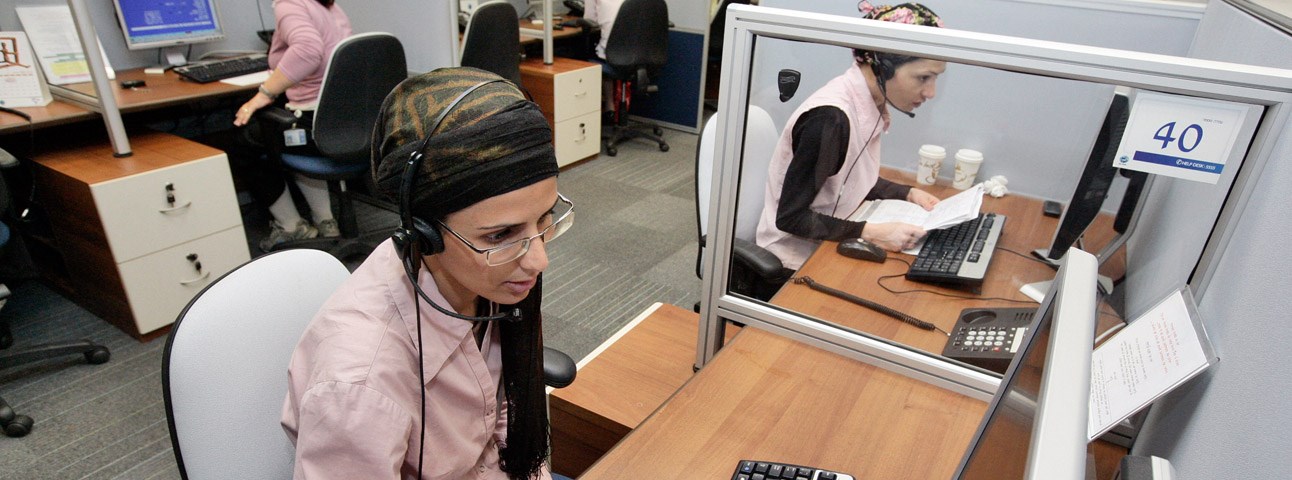
Employment Rates for Ultra-Orthodox Women Continue to Rise
The new report finds that employment rates for ultra-Orthodox women continue to rise, while those for ultra-Orthodox men remain stagnant; household income for ultra-Orthodox families is 58% lower than other Jewish Israeli households; and over the last five years - a 33% increase in the number of yeshiva and kollel students in Israel

In God They Trust
Written By: Dr. Gilad Malach
Dr. Gilad Malach, Director of the Ultra-Orthodox in Israel Program at the Israel Democracy Institute, discusses how the COVID pandemic has affected the internal dynamics of Israel's Haredi communities, their relationship with their political leadership and with government as a whole.
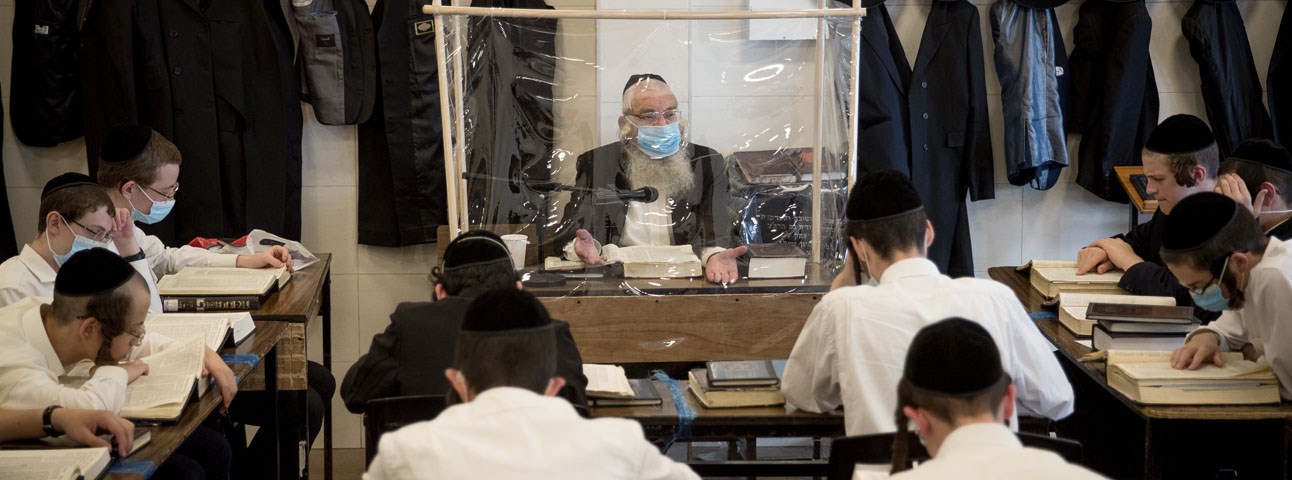
The Haredi Fears Behind the Opening of Yeshviot Amid COVID-19
Written By: Dr. Asaf Malchi
For many, the spiritual and educational dangers inherent in leaving large numbers of young people with no binding religious framework outweigh the health risks in keeping these institutions open
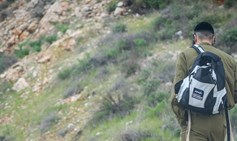
The “People’s Army”?
Written By: Dr. Asaf Malchi
This article presents the main milestones in the recurring attempts to put a satisfactory arrangement for the deferment of military service for yeshiva students in place. In doing so, it surfaces the changes that have occurred over time in the constitutional, legal, and public responses and attitudes on this issue.

Way of Life & Voting Patterns
Written By: Dr. Lee Cahaner, Dr. Gilad Malach, Dr. Maya Choshen
The fifth out of five chapters of the Statistical Report on Ultra-Orthodox Society in Israel

Two Jewish Nations and the Abyss Between Them
Written By: Dr. Shuki Friedman
For many American Jews, identification with the State of Israel is a significant component of their Jewish identity.
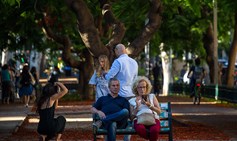
Peace Index: 40% of Israelis Believe that Rifts Between Groups Will Widen
Monthly survey also finds that 84.5% of Israeli public defines mood as good or very good while 43% expresses trust in Prime Minister Netanyahu.
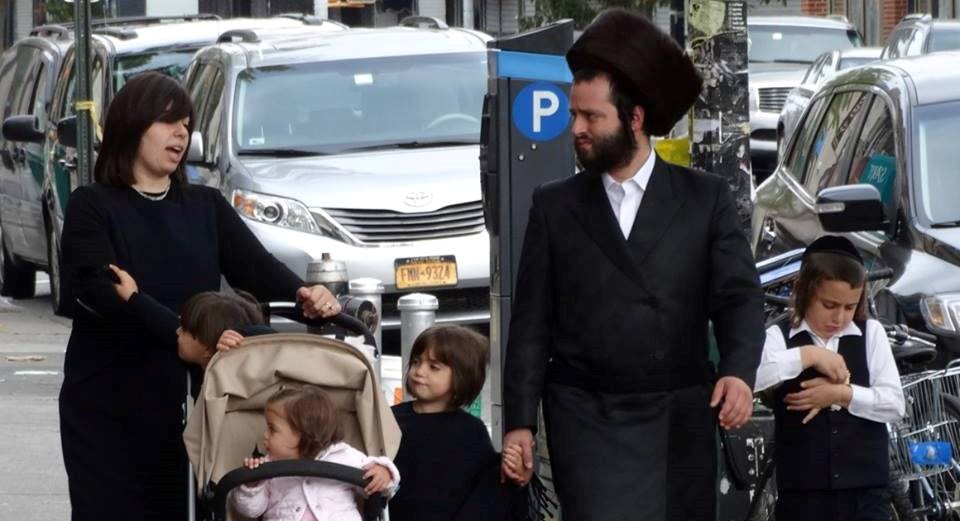
The Employment Revolution and the Haredim Who Are Being Left Behind
Written By: Dr. Asaf Malchi
With 50% of young Haredi men expected to enter the labor market actually those with poorer skills and abilities, there is an urgent need for an in-depth rethinking about Haredi education.
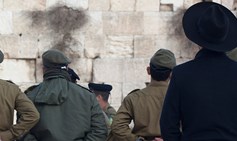
Ultra-Orthodox in the IDF: A Ticking Time Bomb
Written By: Prof. Yedidia Z. Stern
To encourage enlistment, Israel should adopt a conscription model that is cognizant of the ultra-Orthodox fear of erosion of their identity and employs both positive and negative economic incentives.

Is the Chief Rabbinate's Monopoly on Kashrut Over?
Written By: Dr. Shuki Friedman
The implications of the Supreme Court's ruling go far beyond the Kashrut market.
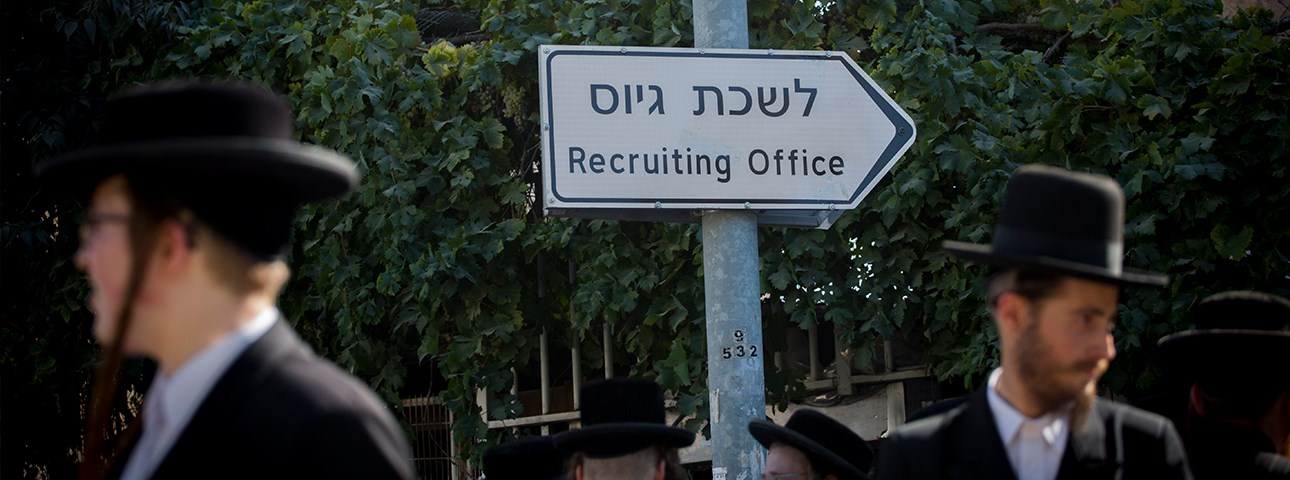
Supreme Court Strikes Down ultra-Orthodox Exemption From Military
Written By: Yohanan Plesner , Dr. Gilad Malach
IDI responds to high court ruling: “The time has come for our politicians to demonstrate leadership and work to enact a more equitable and effective arrangement.”

Springboard to Employment: How Ultra-Orthodox Men Benefit from IDF Service
Written By: Dr. Asaf Malchi
Army service is an extremely powerful “employment engine” for most ultra-Orthodox men whose religious education does not provide them with the general background or professional training necessary for joining the work force outside the ultra-Orthodox sector.
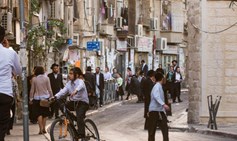
Where Will the Ultra-Orthodox Community Live in 2040?
Written By: Dr. Lee Cahaner
The State of Israel needs to come up with appropriate living solutions for the ultra-Orthodox, whose numbers are expected to increase significantly.
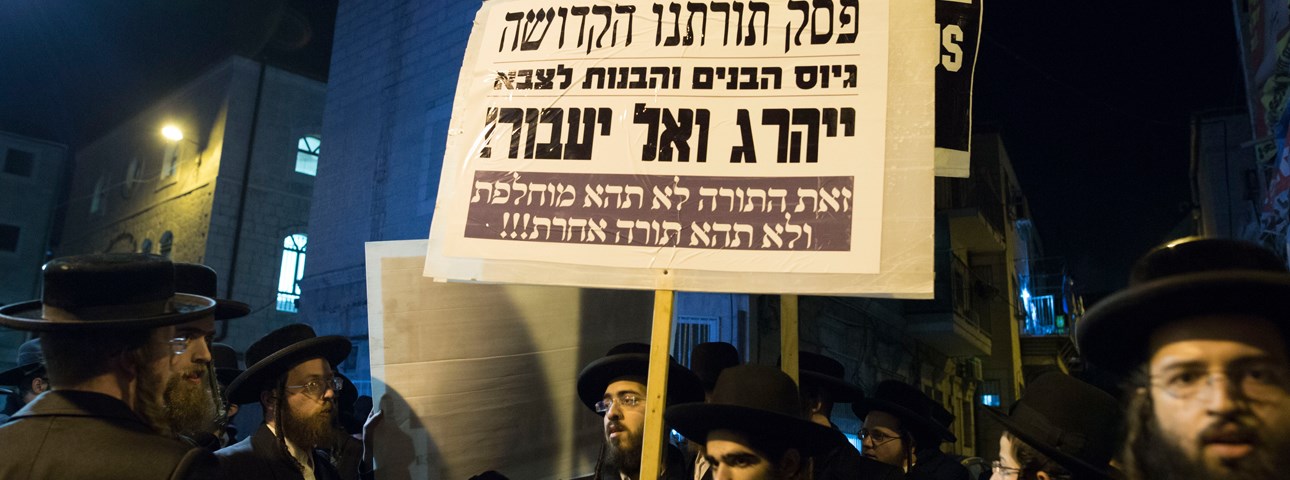
What remains of the religious status quo?
Written By: Dr. Shuki Friedman
Instead of Judaism being what unites Jews in Israel with Jews around the world, our religion has become the main source of conflict.
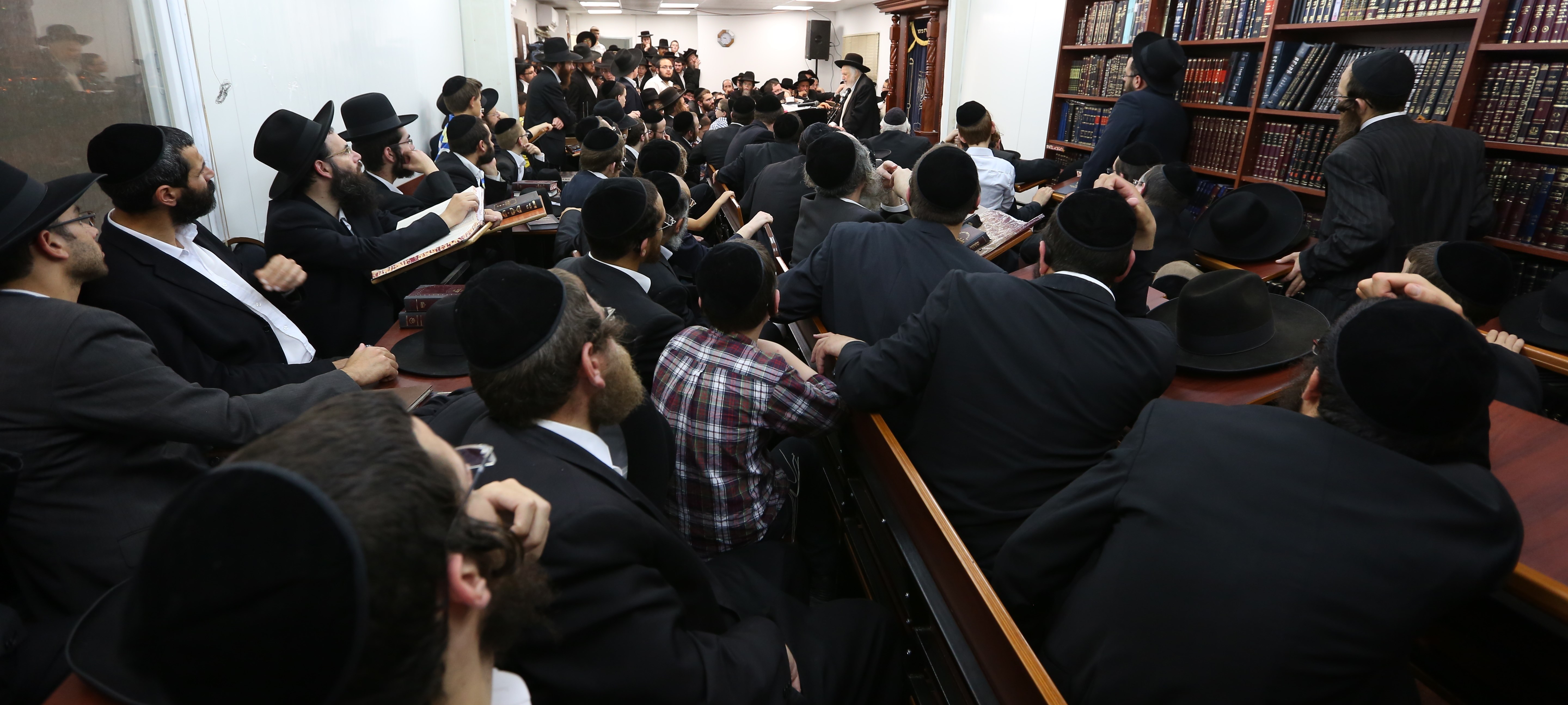
Ultra-Orthodox Employment Levels Stop Increasing
The percentage of ultra-Orthodox men who work stagnated in 2016 for the first time after a consistent upturn over the past several years, according to a new report by the Central Bureau of Statistics.
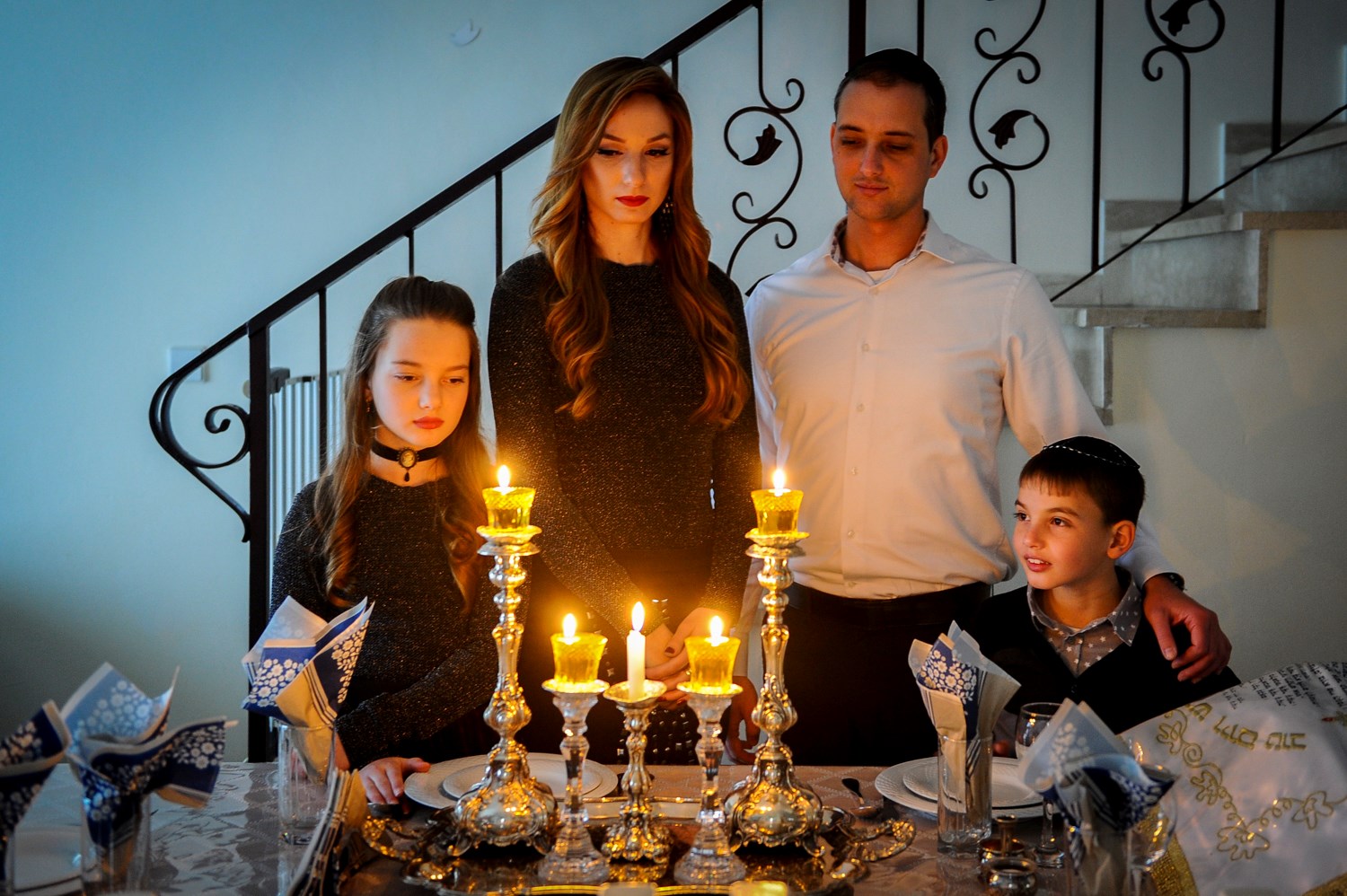
The Shabbat Wars: A Guide for the Perplexed on the 'Status Quo' … and a Possible Solution
Written By: Dr. Shuki Friedman
A summary of the legal situation in Israel regarding Shabbat observance.

Dr. Shuki Friedman: 'New Kashrut Model Must Put an End to Chief Rabbinate's Monopoly'
Dr. Shuki Friedman responds to the Supreme Court discussion Tuesday on the Chief Rabbinate’s monopoly on kosher certification.

Dr. Shuki Friedman: Religious Status Quo is Dead
“The time has come to re-raise the issue of the status quo and write new legislation that will be accepted by the majority of Israelis," said Friedman.






